

18 Super Important Must Knows Before You Travel to Morocco
Last Updated: February 16, 2022
*FYI - this post may contain affiliate links, which means we earn a commission at no extra cost to you if you purchase from them. Also, as an Amazon Associate I earn from qualifying purchases. Check out our Privacy Policy and Disclosure. for more info.
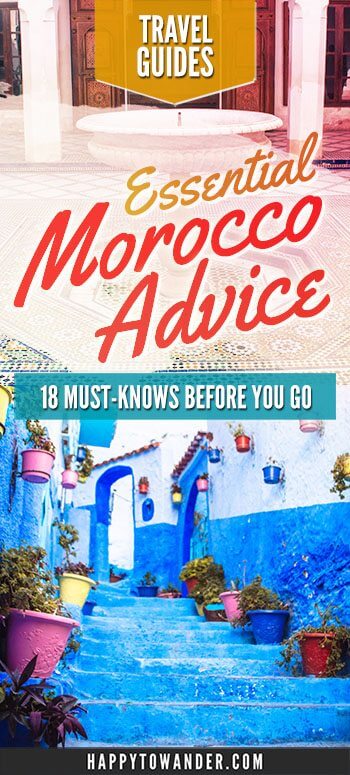
Okay folks, it’s PSA time.
If you’re planning on visiting Morocco any time soon, I need to let you in on a not-so-sexy secret…
This crazy country is much more than a romantic Instagram playground of patterned plates, blue walls and glam camel selfies.
In fact, coming here can be just as challenging as it is magical, all the more so if you don’t do proper research.
See, in recent years, I’ve heard many travellers say that they disliked their travels in Morocco because it didn’t “live up to their expectations”.
But as a die hard fan of the country, I need to say this: yes, Morocco is gorgeous, and packed with stupidly photogenic sights, but it can also a really challenging place to visit, especially when you flail in blindly without getting your research on.
Luckily, that’s what I’m here for!
After two trips to Morocco – once to visit Marrakech and Essaouira, the second to gallivant around Fez and Chefchaouen, I’ve foolishly made buckets of mistakes and assumptions for you, all so you don’t fall into the same traps 😉
Yay me. *throws confetti*
In this post, my goal is to give you some practical info and takeaways so that you have some more realistic expectations for your trip to Morocco – think of it as tips from one silly tourist to another 😉
So, without further ado – don’t travel to Morocco without knowing the following handy tips!
PS: As I mentioned, these tips are definitely valid for big touristy cities like Marrakech, Essaouira, Fez and Chefchaouen. I have no doubt though that other places around the country (especially smaller towns) will be different! Hopefully you’ll still find these tips helpful though 🙂
Travelling to Morocco soon? You might also find these posts helpful…
- My 14 Best Tips for Safety in Morocco + Common Scams
- A Guide on What to Wear in Morocco + a Free Packing List
- What to Wear in Marrakesh
- 1 Week in Morocco (Travel Diary)
- Fes to Chefchaouen Day Trip Guide
- Game of Thrones in Morocco Guide
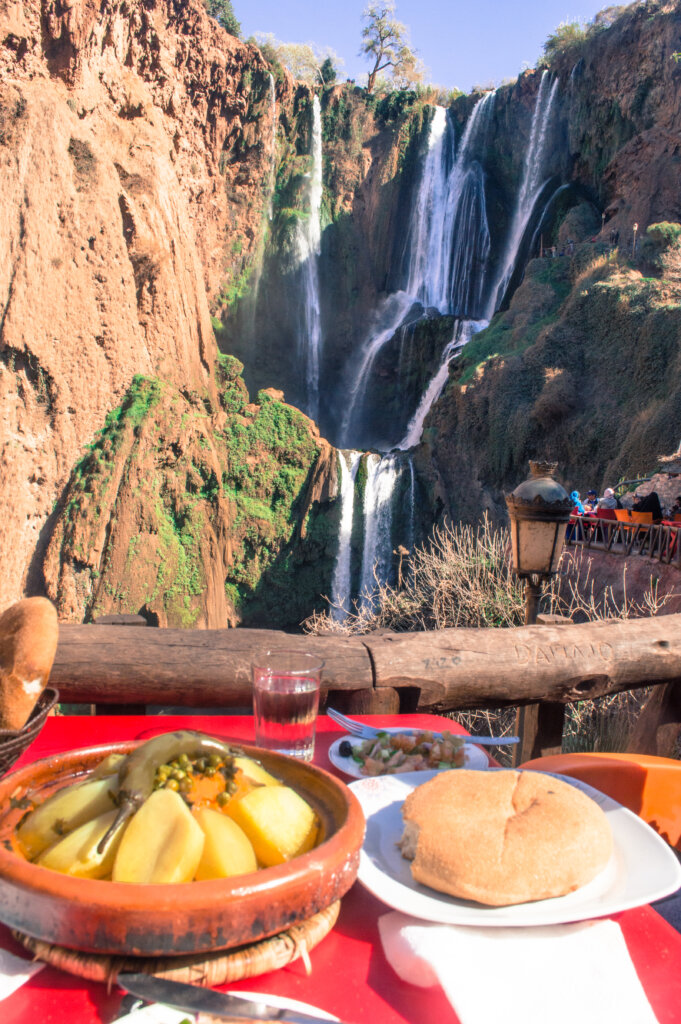
Looking for the Cheapest Hotel Deals in Morocco?
One of the first questions I usually get about Morocco is where to stay, so let’s get that first point out of the way first.
Morocco is filled with amazing accommodation options, from hotels and hostels to gorgeous riads (which I highly recommend).
To find the best fit for you, I recommend using HotelsCombined , a great free site to use that lets you search prices from multiple sites like Expedia, Booking, etc. at once, securing you the best possible deal.
Click here to compare the best deals on accommodation in Morocco
Alright, now onto the good stuff…
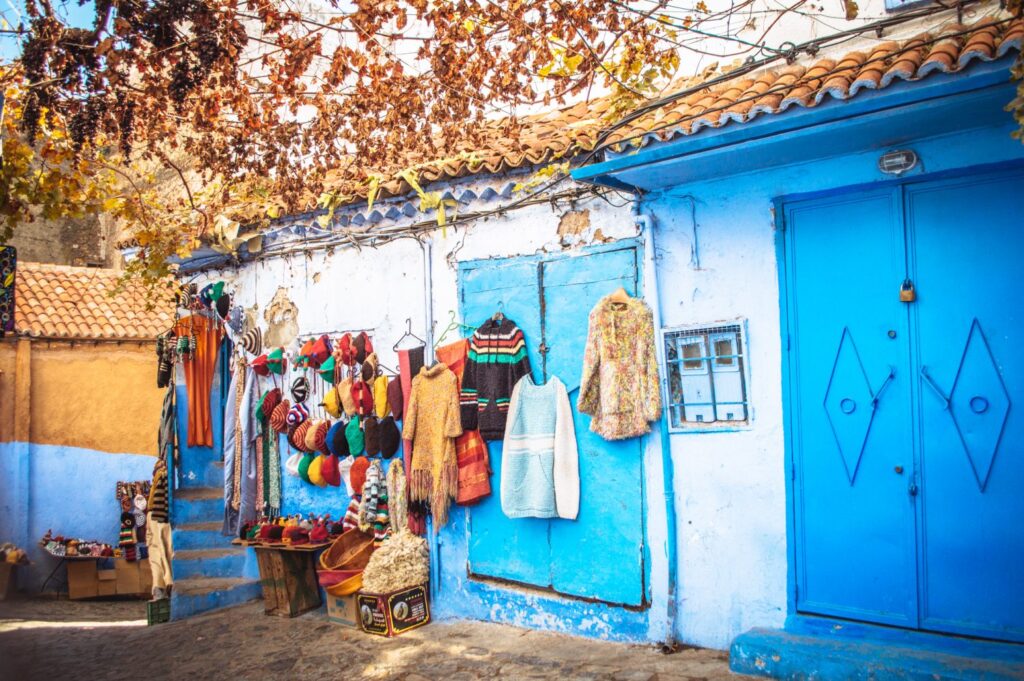
My Travel Advice for Morocco: 18 Must-Knows
1. morocco is yuuuuuge (seriously though, it’s a big country).
Geography is not my thing, especially for places I’ve never been to.
Here’s the #1 mistake I see people making: a lot of folks (past me included) wrongfully assume that Morocco is small and that all the most insta-famous spots are closely clustered together.
I mean, if I had a nickel for each time someone asked “how can I do a day trip from Marrakech to Chefchaouen?” Ohh yenno, just a casual night train and bus combo….
But yes, know this: if you want to travel Morocco, understand that it’s a pretty freaking massive country.
At first, it might be tempting to think that you can cover the entire country in a single trip, but unless you have a lot of time at your disposal, I wouldn’t recommend it.
Try to focus instead on one part of the country rather than waste time commuting from place to place.
I’m very glad I did separate trips for Marrakech/Essaouira and Fez/Chefchaouen, rather than brave night trains and long commutes just to “see it all”.
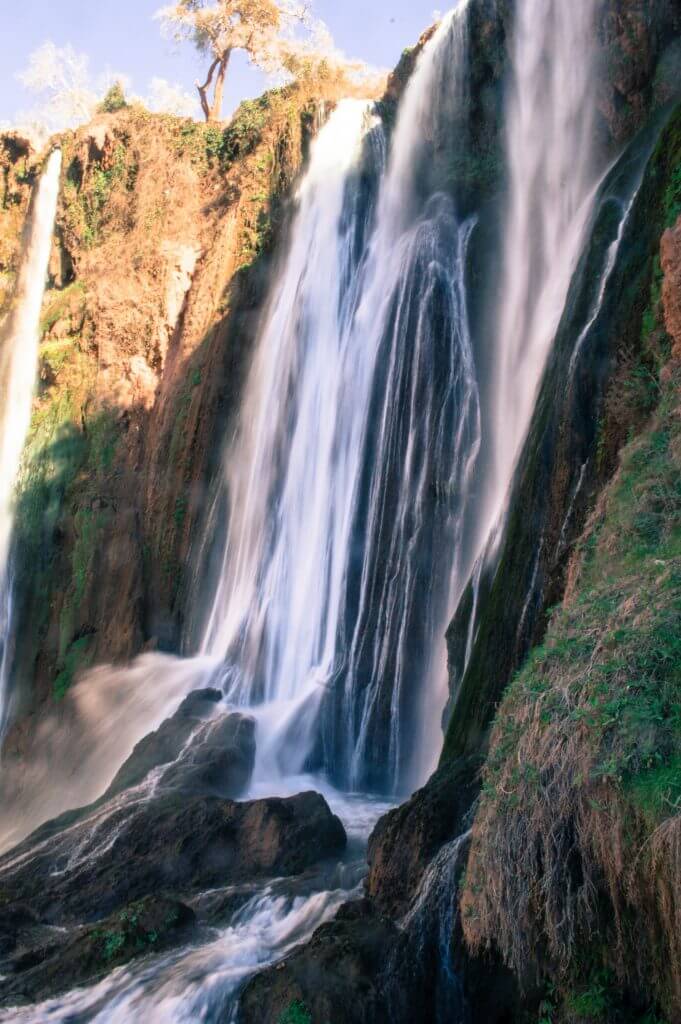
2. Brush up on your French (beyond oh la la and croissants)
As you travel in Morocco, you’ll quickly notice just how common French is.
While in big cities, you’ll encounter plenty of English speakers as well, most are much more comfortable in French, and nicer to you if you can speak it.
I can’t tell you the number of times a shopkeeper or taxi driver immediately cranked up the nice meter as soon as I busted out my rusty français.
Definitely get some basic travel terms under your belt like, “how much will this cost” or “how do I get to ____” – it’ll help you a ton.
For those extra prepared folks, consider buying a phrasebook in advance (they’re cheap – like less than $10!). Here’s one for Moroccan Arabic, or one for French .
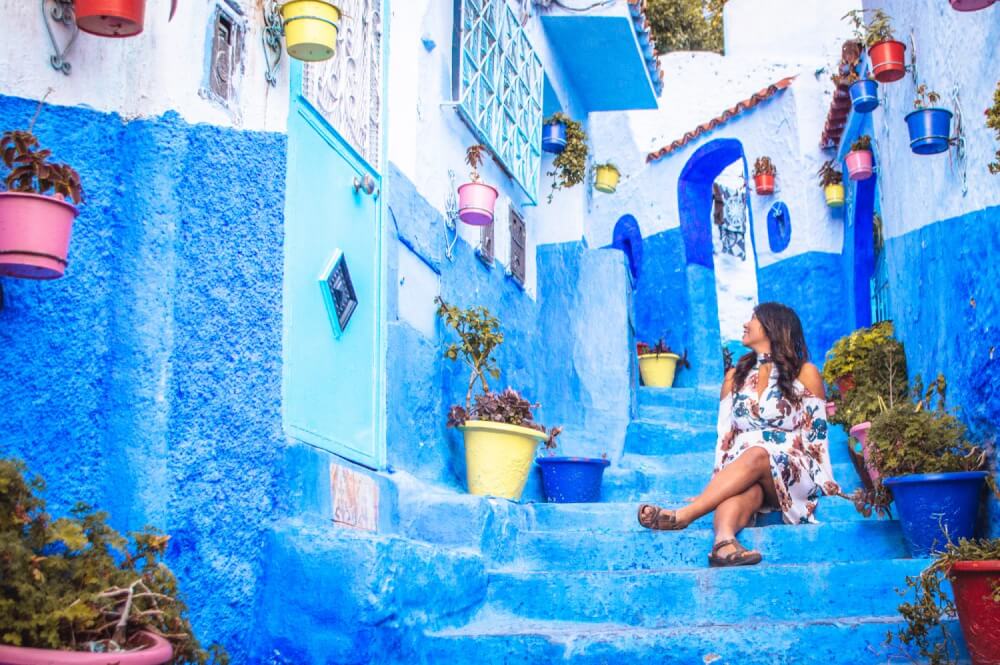
3. Morocco IS safe… just be wary of scams
Often travellers (especially those going solo) wonder whether or not Morocco is safe.
After having been there twice (once with a group of girlfriends and the second time with my boyfriend), I will say that it’s definitely safe.
Will you feel very uncomfortable at times? Probably.
Will people will stare at you, persistently follow you and randomly shout Asian ethnicities at you until they guess the right one? That last one was niche, but the answer is still YES!
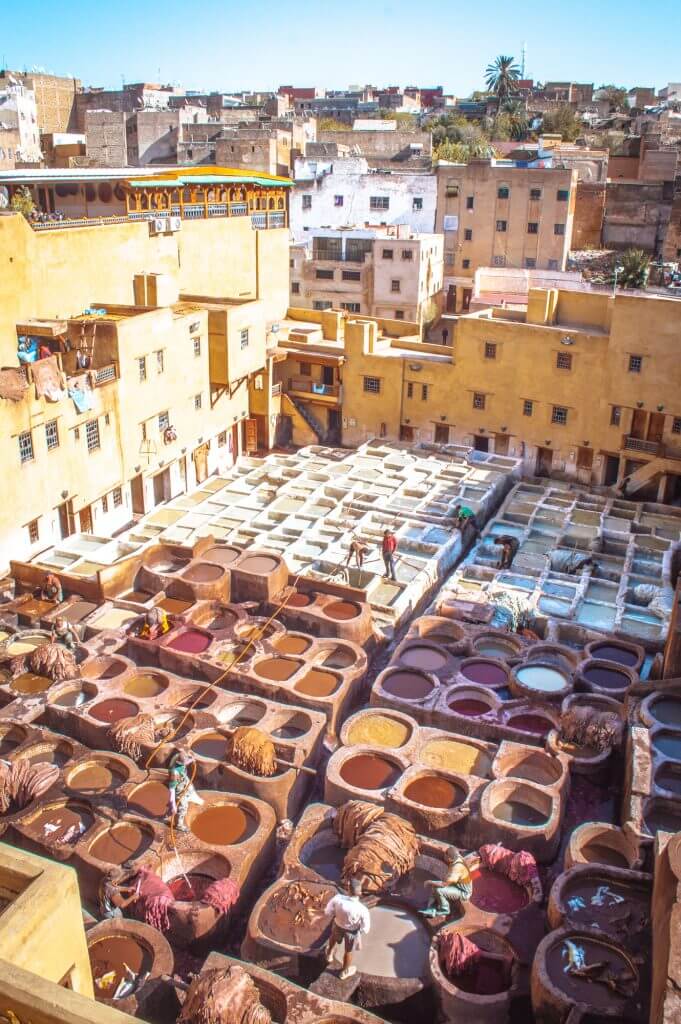
All that said, at the end of the day, I wouldn’t be too concerned about your physical safety.
I have a full guide all about safety tips in Morocco that you can read here, but I’ll summarize some of the main points below.
(I’d recommend getting a nice, subtle brass whistle though just in case. They’re good for ease of mind and you can get them for under $10! This set comes with a leather necklace so you can wear it at all times.)
Anyways, there are naturally a few common sensical things that you should be mindful of – don’t walk around at night by yourself (especially as a solo female traveler).
The streets get very eerie after all the shops close, and you’ll likely encounter lots of “friendly” guys trying to help you find your accommodations. It’s super unsettling, so I wouldn’t recommend being alone in quiet areas like the souks after dark.
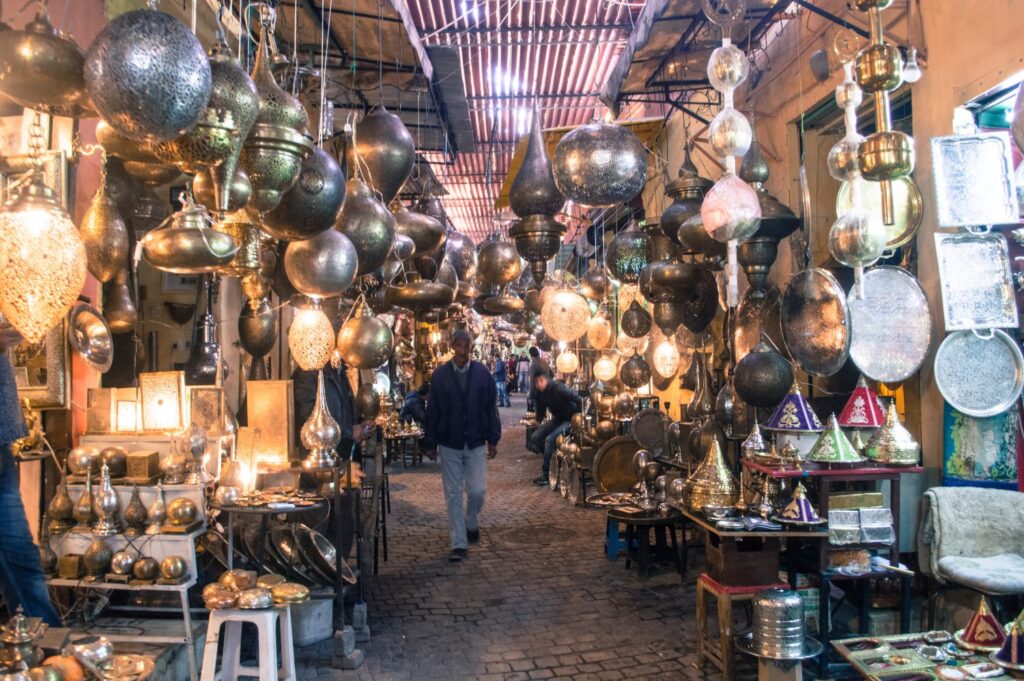
Besides that, I think you will be fine in terms of physical safety.
The #1 thing to be mindful of though is ALL the scams. Tourism drives a lot of business here, so many have become experts at taking advantage of naive tourists. Don’t be disheartened by it – just view it as a way of doing business 😉
A few tips for avoiding scams:
Be wary of anyone that’s overly friendly. Someone offering to help you find where you need to go will want money for it after. Someone offering you a cool photo opp like a snake to hold will want money for it after. Nice women beckoning you to get henna will literally grab your hand and just start doing it…. and will demand money after. Unfortunately, these things are common.
Know that every price they give you is meant to be bartered down. I’ll discuss haggling more in a second, but shopkeepers often give sky high prices to start with because they assume you don’t know better.
If you plan to buy something (e.g. a tour, a certain good, etc.), ask for standard prices from your riad or hostel owner so you have a rough idea of how much it will cost. It’s better this way to have a rough gauge.
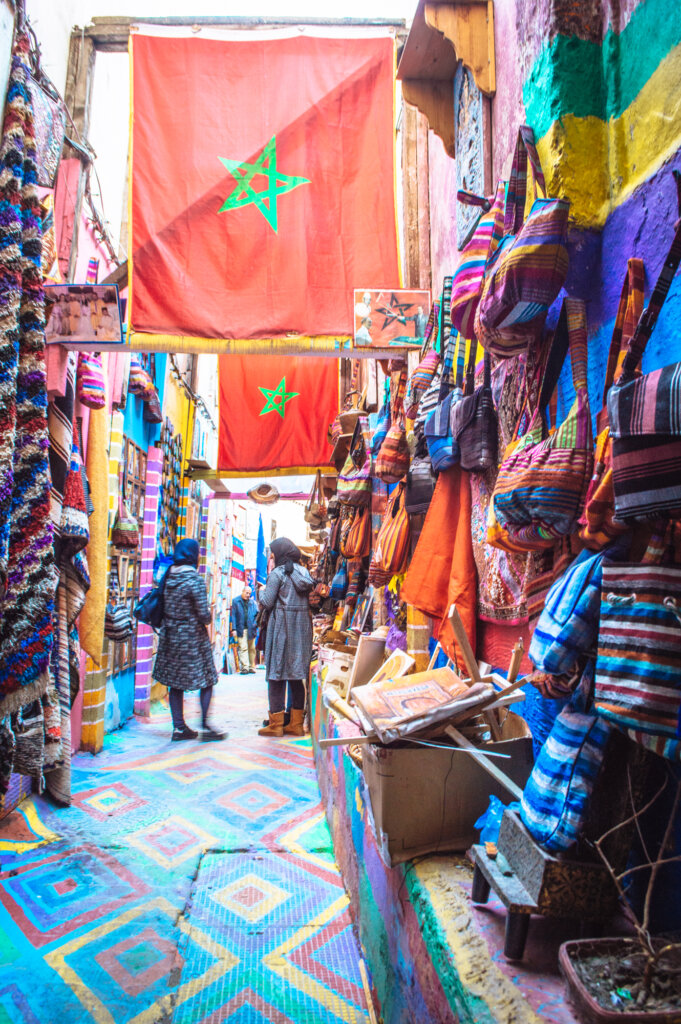
4. Get your haggle pants on
Alright, we all have that embarrassing aunty who haggles everything down and has a consistent surplus of useless crap for her exploits.
When shopping in Morocco , it is time for you to become that aunty.
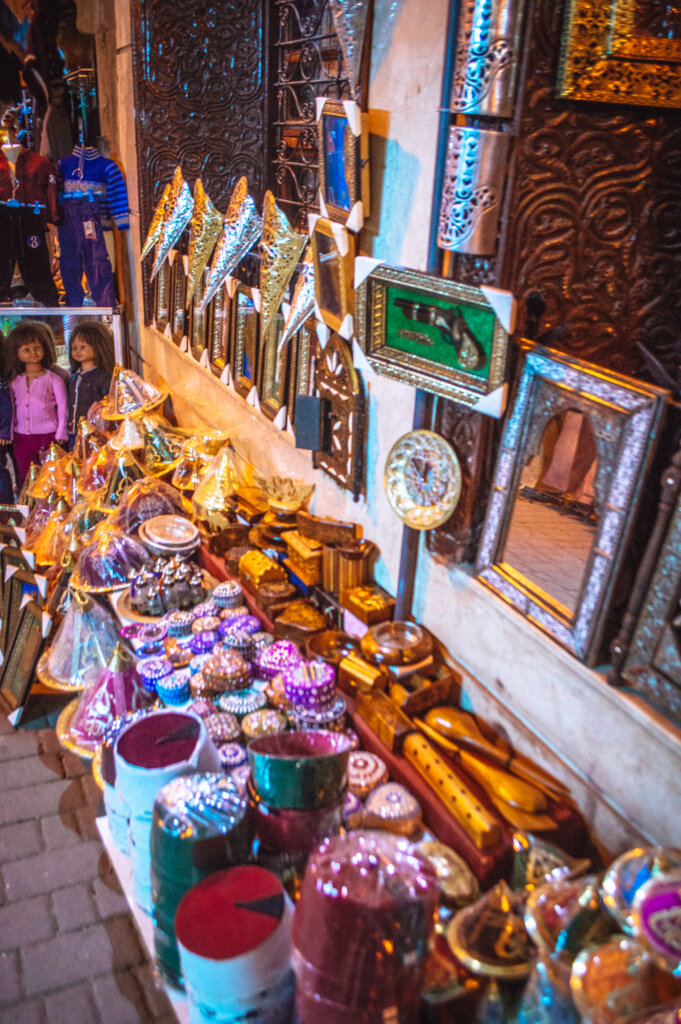
Seriously though, don’t be afraid to haggle! I’ve been told it’s a part of the culture by a lot of shopkeepers, who will laugh off my stubborn hard assness.
One of my proudest moments was being told I was “haggling like a real Berber woman”. Why thanks. *flips hair* Someone just get me a Haggle Queen t-shirt already. (FYI, they exist. No joke. Here’s proof ).
If you feel weird about haggling, do note that prices they give you at first can literally be 7x what they actually want to sell it for, so it’s probably in your best interest to barter a little… it’s even quite fun.
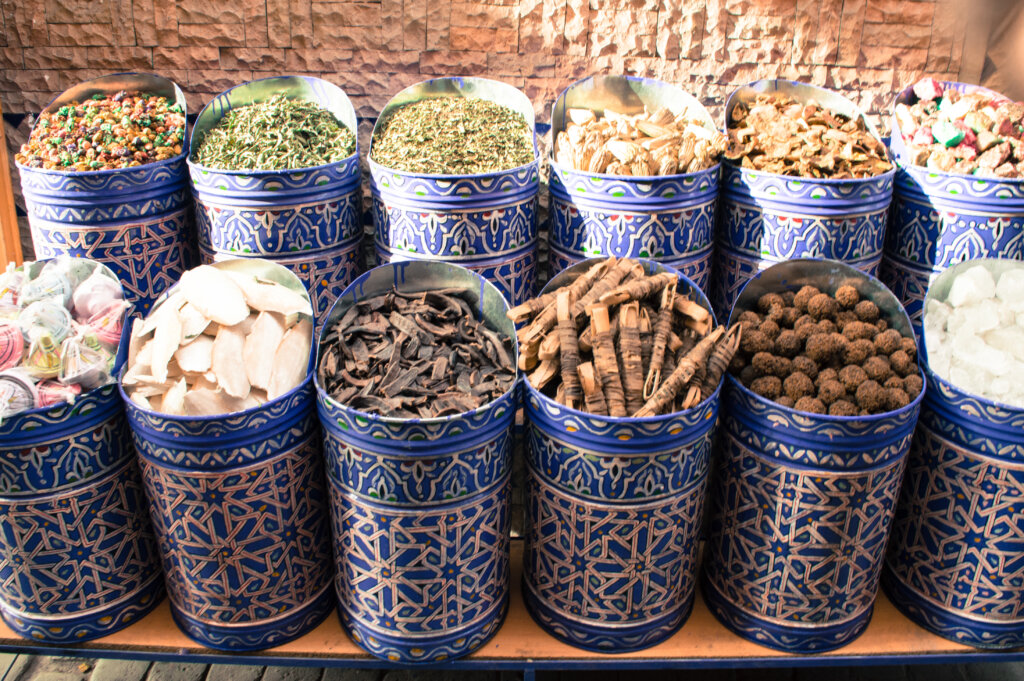
FYI, shop owners can be SUPER pushy.
If you step inside their little stall, they will often stand by the entrance and low-key trap you in their store. I’m not saying this to scare you, it’s just something to be aware of. You’re not in actual physical danger, but it’s pretty uncomfortable to say the least.
At the end of the day, you’ll quickly notice that most stores will sell the same goods so feel free to shop around too! Nothing is more effective for haggling than “the walk away”. 😉
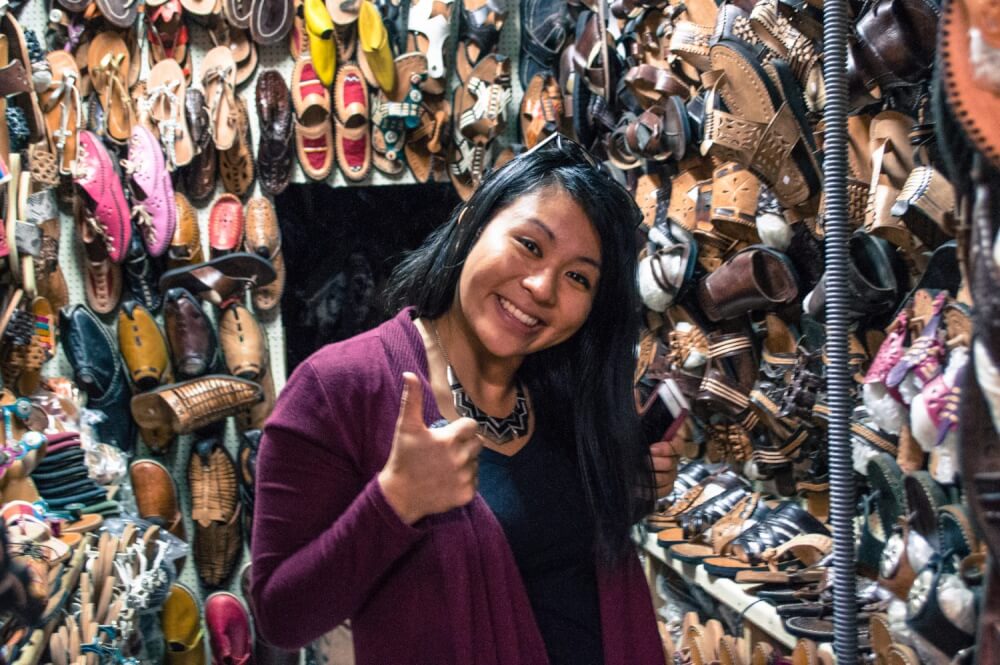
5. Mosques are a no-go unless you’re Muslim
Unlike some other Muslim-dominant countries like Turkey where you’re invited to visit the inside of moques, mosques in Morocco usually have closed door policy unless you’re Muslim yourself.
So, take all those ridiculous “top things to do in Morocco” lists with a grain of salt (PSA to my fellow bloggers, stop recommending these mosques when all you can do is peek at the courtyard from afar!)
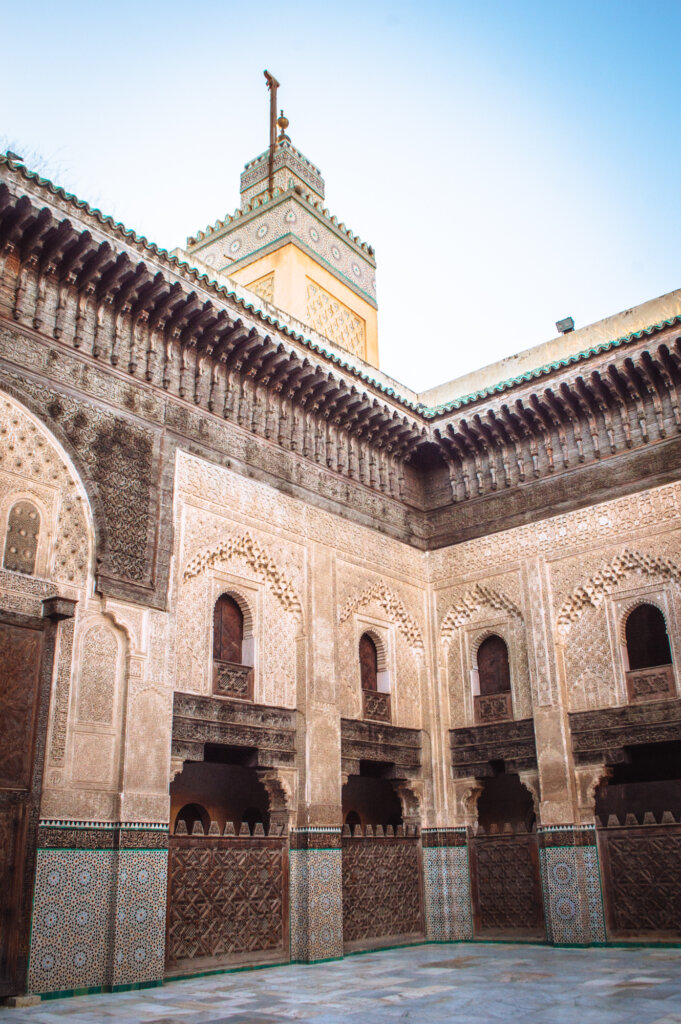
I mean, are there loads of gorgeous mosques to see in Morocco? Totally, but you won’t really get to see any of them unless you’re Muslim. Just an FYI so you’re not too disappointed.
PS: If you’re staying longer in the country, consider getting a guidebook about customs/traditions. It might come in handy. I’ve heard great things about this one.
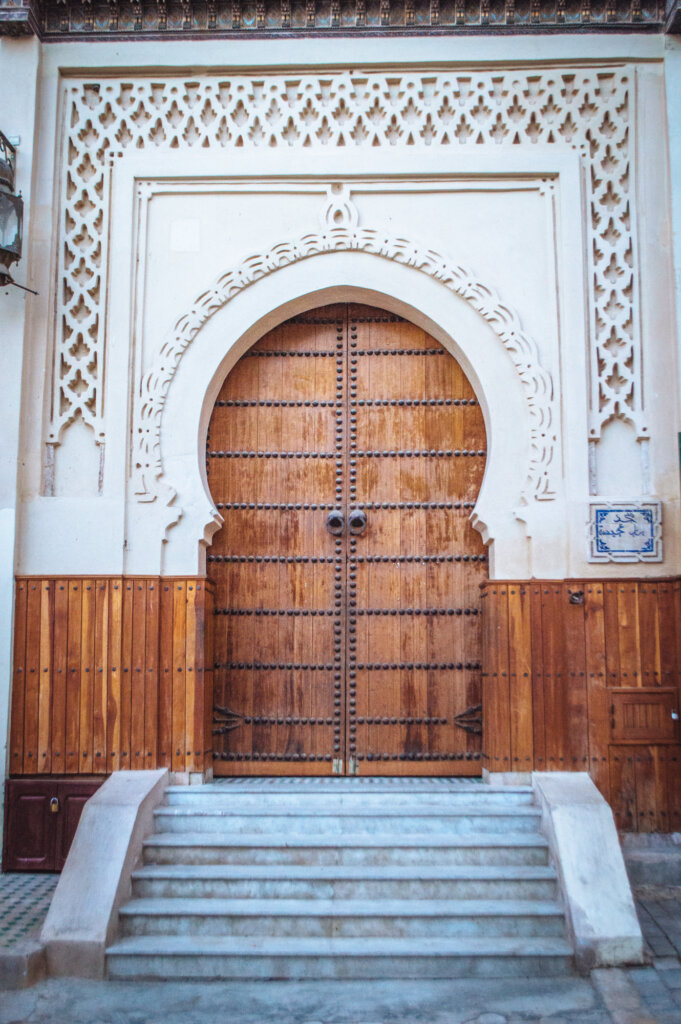
6. Bring stretchy pants (cuz you gon’ eat)
Nnngh, give me a second to wipe all the drool off my screen. I have to tell you – food in Morocco is THE best.
One of my Christmas gifts this year was literally a tagine cookbook and I’ve never felt more #blessed. Truly, when you travel to Morocco, one guarantee is that you’ll be well fed. Like royalty even, for highly affordable rates.
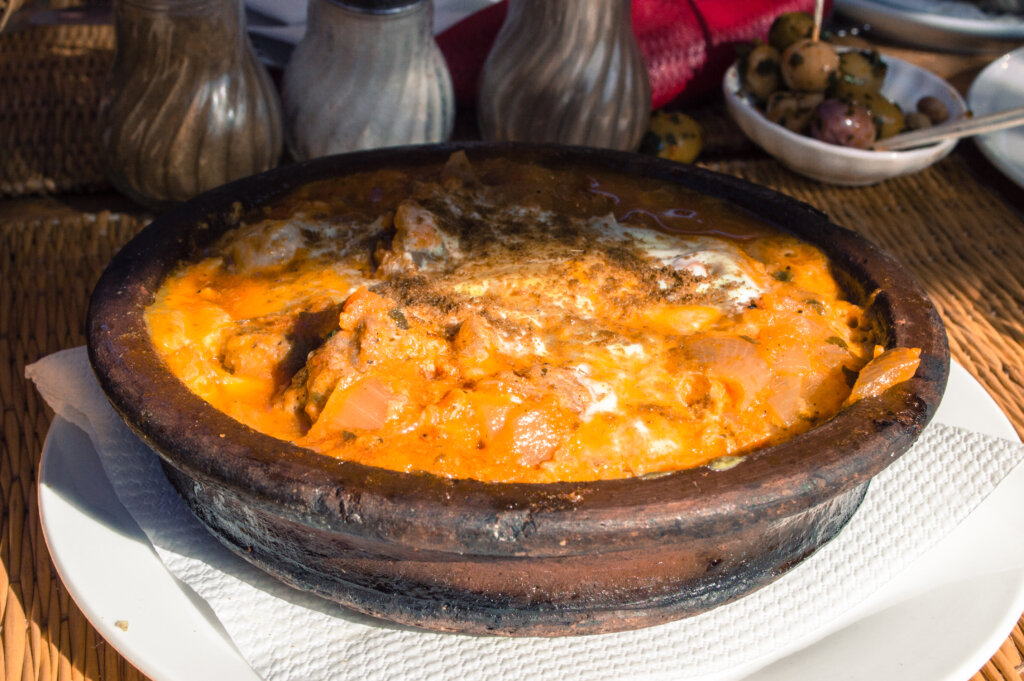
These are ubiquitous foods you’ll find at every single restaurant (yes, they are cliched, and touristy, but for a reason).
PS: Any Moroccan folks reading this, please holla in the comments with your favourite traditional foods… I need some more inspo!
BUT for now, you will 100% need to get…
Fresh fruit juice: MMMMMF. Available almost everywhere and so ridiculously good. NOTE: It’s always cheaper to drink it there from a glass rather than get it to take away. The stalls will often have a very cheap price (e.g. 4DH) listed in big letters, and that is usually the price for if you stand there and drink it on the spot. Don’t be surprised if you need to pay a bit extra to take it with you.
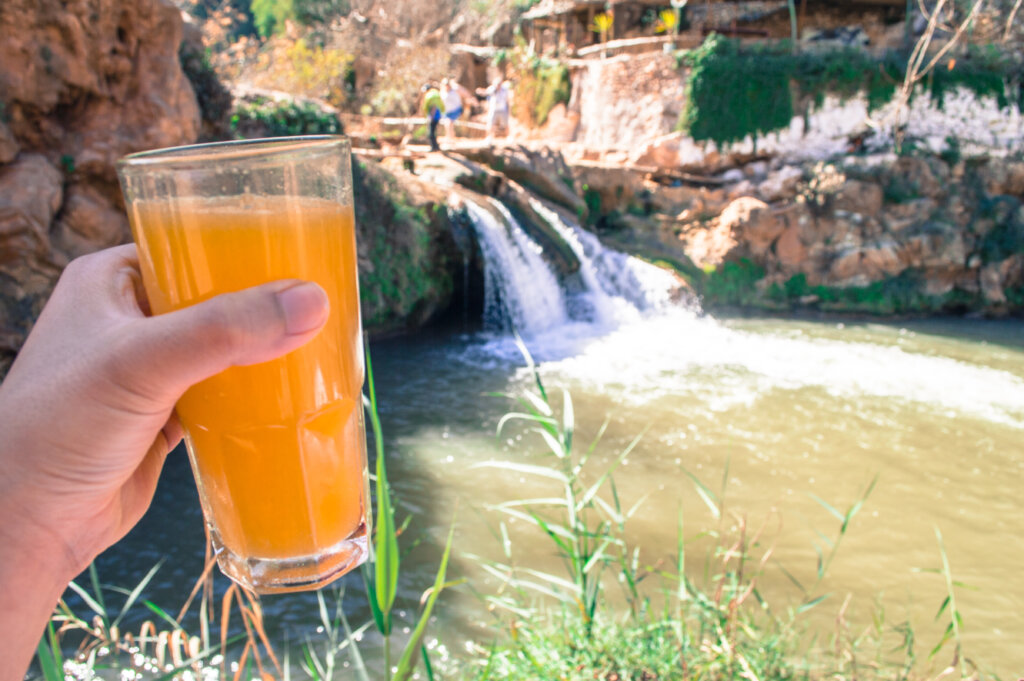
Mint tea: You can get it anywhere and they love to serve it up with sugar. Their default sweetness is ridiculously sweet, so unless you love cavities, you should probably ask for sugar on the side.
Tagine: Slow cooked stew cooked in an awesome clay or ceramic pot (also called a tagine). There’s lots of different kinds, usually with meat. My personal favourite is the kefta tagine, which is meatballs in a tomato/onion sauce with eggs cracked on top. It will change your life, it is my favourite ever!
Couscous: Fluffy and plentiful. I’m not a big fan of it myself (I’m a die-hard rice girl) but you’ll find it everywhere with all kinds of pairings.
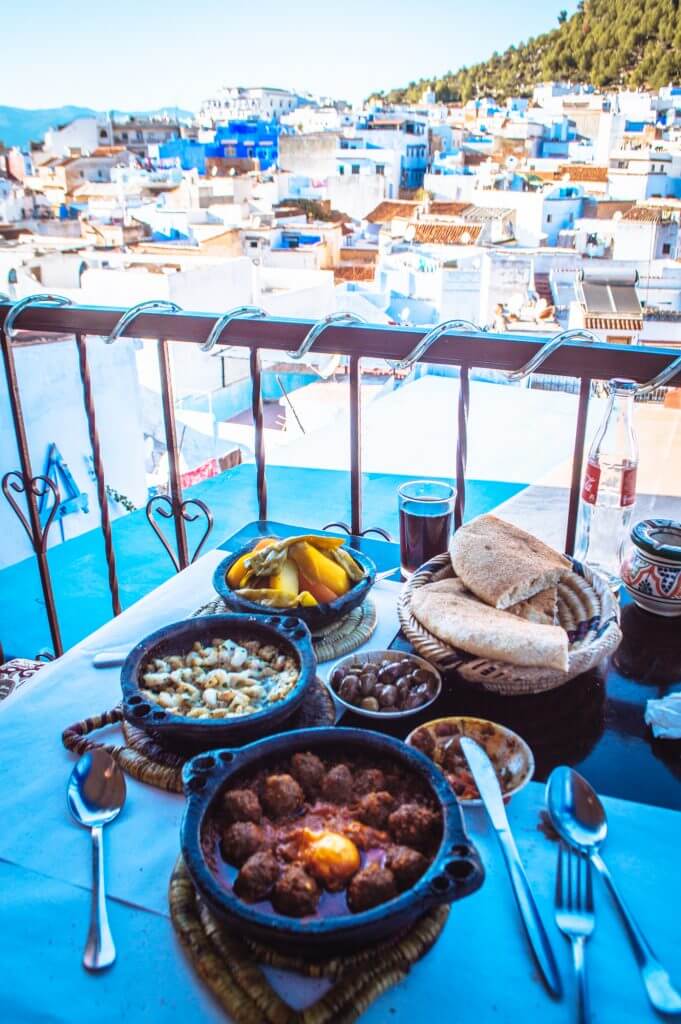
7. Don’t expect a booze & drugs kind of vacay
A LOT of people forget that Morocco is a predominantly Muslim country.
… and then they turn up ready to raaage.
That might be a problematic mindset.
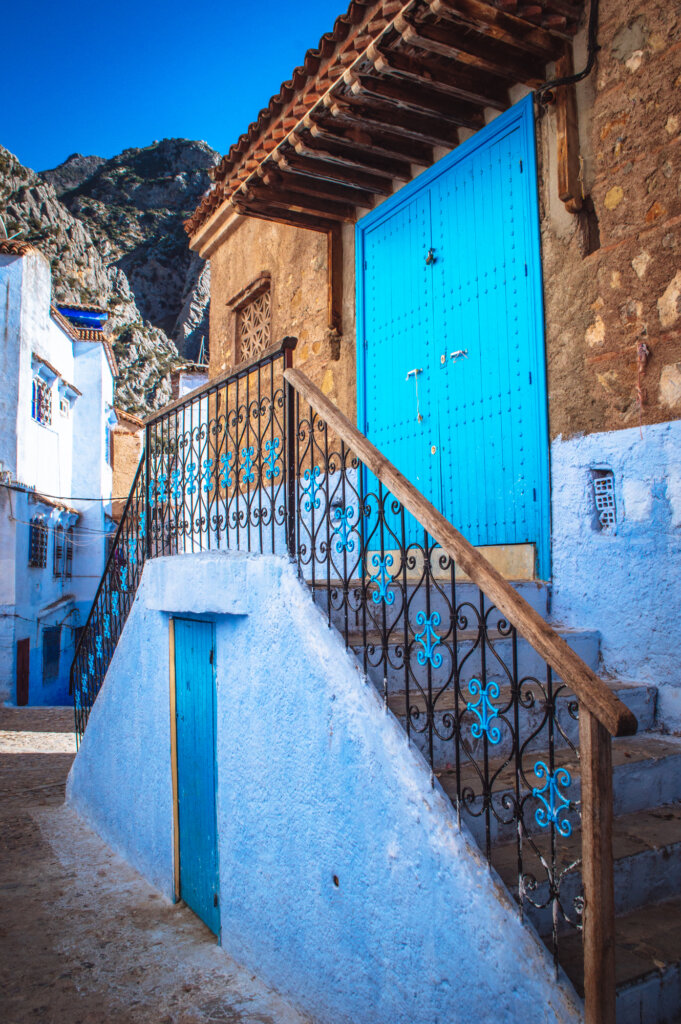
You won’t find a ton of shops readily stocked with sweet alcoholz for your bender. That said, despite having such a large Muslim population, alcohol and drugs (hash is especially popular) aren’t tough to come by in Morocco.
In major cities, you’ll find plenty of bars and of course, depending on where you’re staying (if it’s a big resort-y type hotel), you’ll have no trouble finding booze. So, if you need your fix, you’ll be fine.
In my opinion though, I wouldn’t prioritize scouring the streets for alcohol in Morocco.
There’s so many better things to do here than get drunk, and it’s much pricier than drinking your weight in fresh fruit juice and mint tea, which is infinitely better (in my humble food-obsessed opinion).
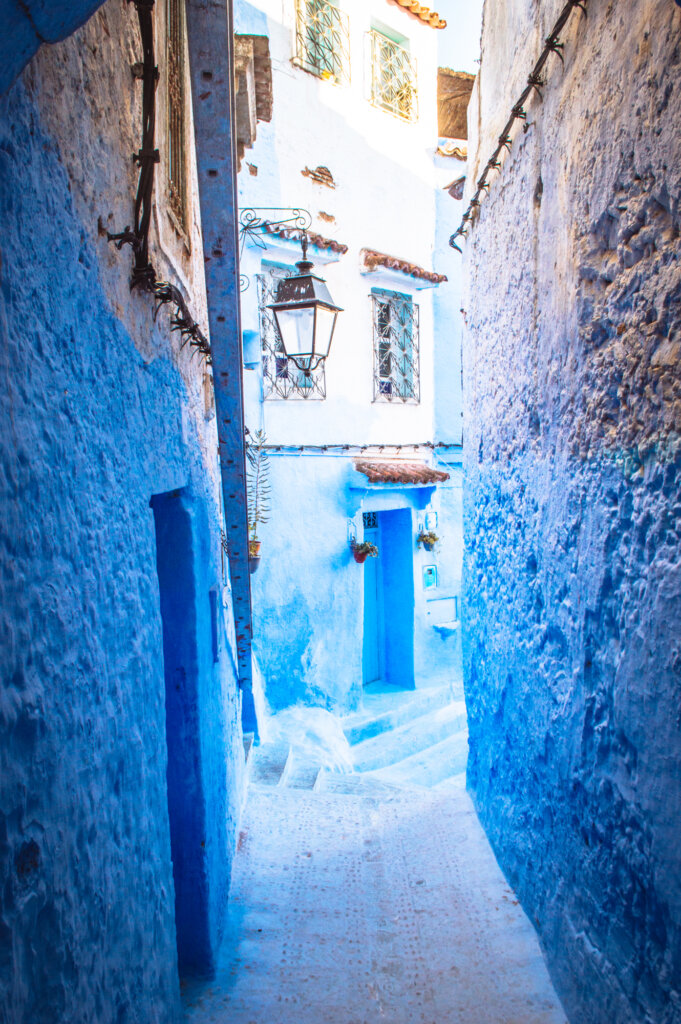
8. Don’t get run over by a donkey
I literally was having one of those “wow travel is so amazing and lifechanging” moments when I promptly was knocked off my pedestal by a donkey.
Like, an actual donkey.
This was in Fez, where there’s a lot of donkeys trotting around with stuff on their backs. So um, just a general PSA to keep an eye out for asses. 🙂
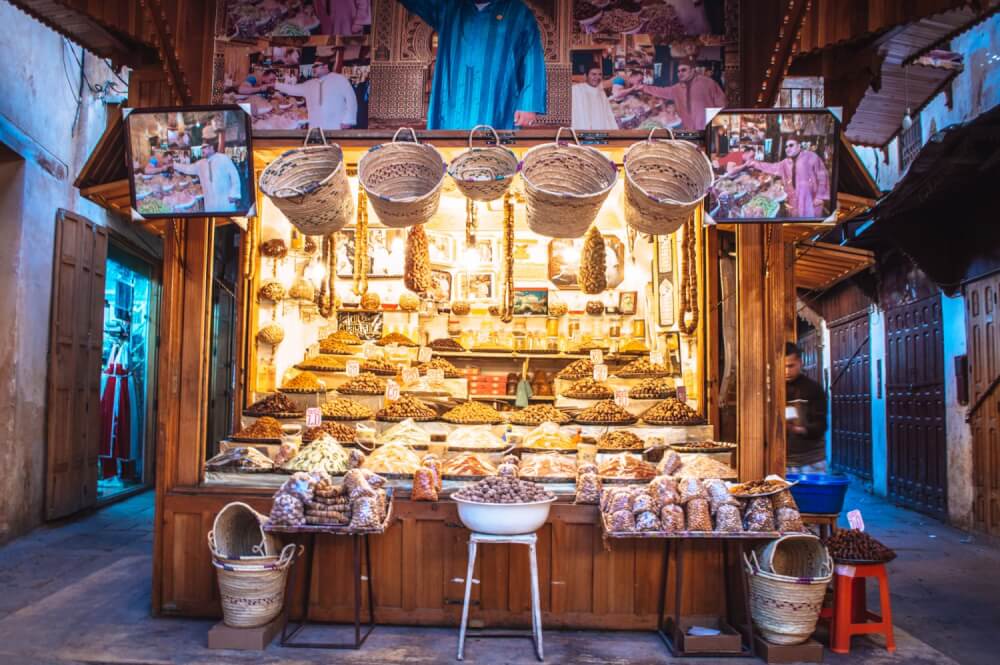
9. Despite what they say, not everyone is “your friend”
I alluded to this before, but you need to be wary of those who are overly friendly.
Of course, there are tons of genuinely hospitable Moroccans out there, but in major cities, especially when you’re out and about in touristy areas, those hollering at you “come with me, my friend!”, “I will show you, my friend!” etc. etc. are probably interested more in your money than your friendship.
This isn’t to say that they won’t actually help you – they probably will, but just know that it’s because they expect some money for it, not out of the genuine goodness of their hearts.
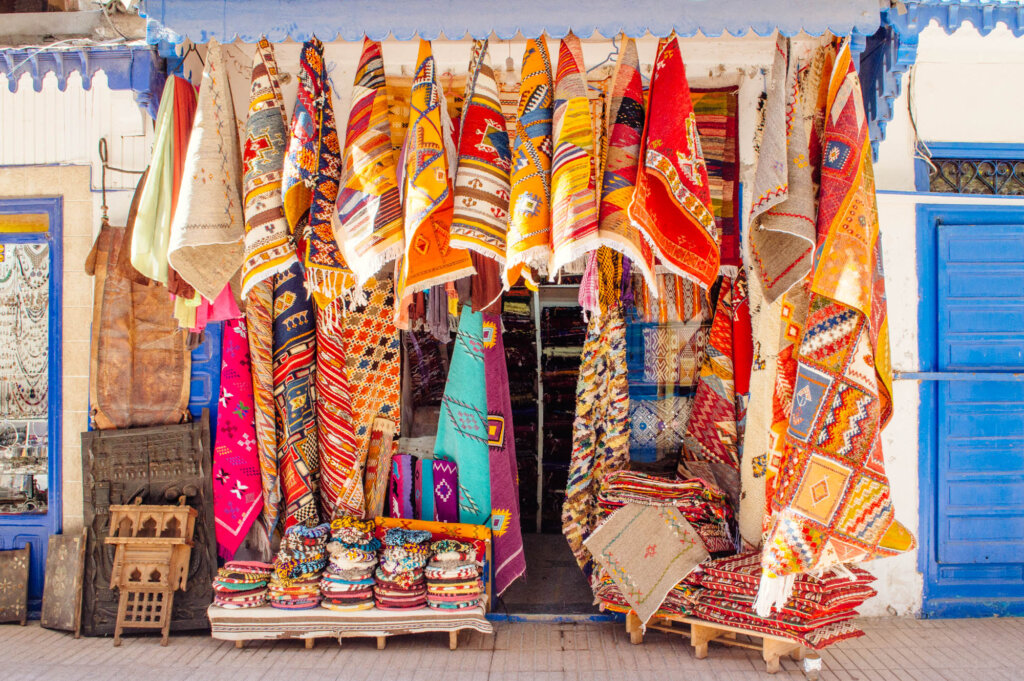
10. Morocco has a closed currency
I know this sounds scary but it basically just means that Morocco’s currency (the dirham, or DH) isn’t readily available outside of Morocco, so you will most likely need to just wait until you’re there to get any.
There will definitely a currency exchange at the airport, and there are loads of banks to visit in major cities too, so don’t worry!
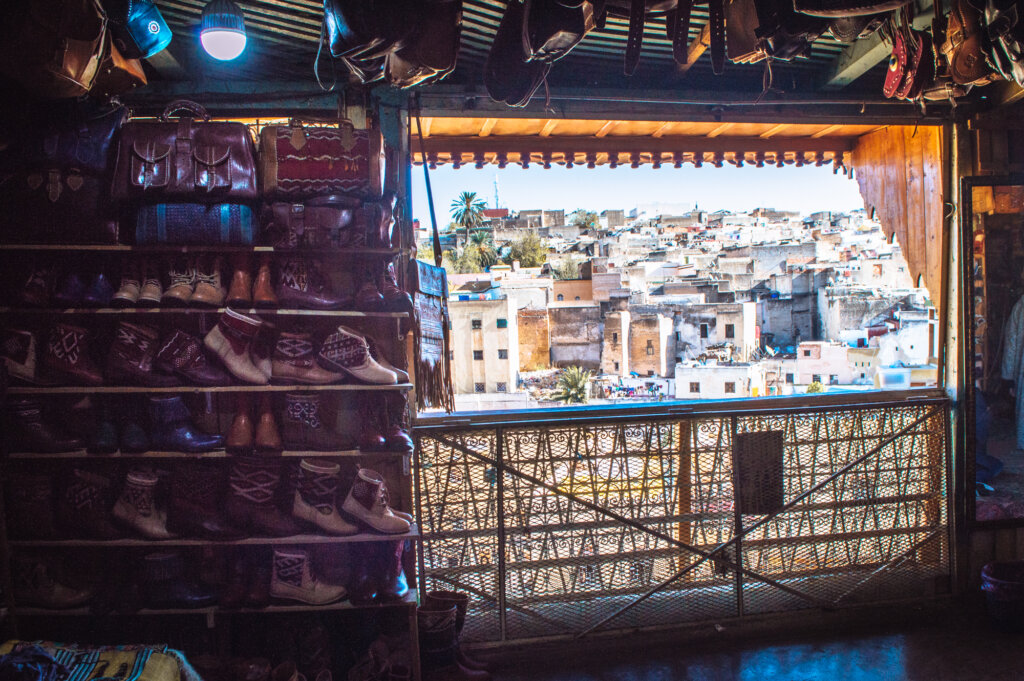
11. Ladies, get ready for attention like you’ve never received
Often people ask whether or not it is safe to travel to Morocco, especially for female travelers.
So again, is it safe to travel to Morocco?
Yes, but there are certain things you need to be wary of (as a female).
Especially as a female that is noticeably foreign (my blonde friends, I’m lookin’ at you).
Morocco is such a wonderful country with so much to offer and I would hate for your impressions of it to be spoiled because you didn’t go in with the right expectations, so let me clear this up for you: LADIES, you will inevitably get catcalled.
It’s gonna happen.
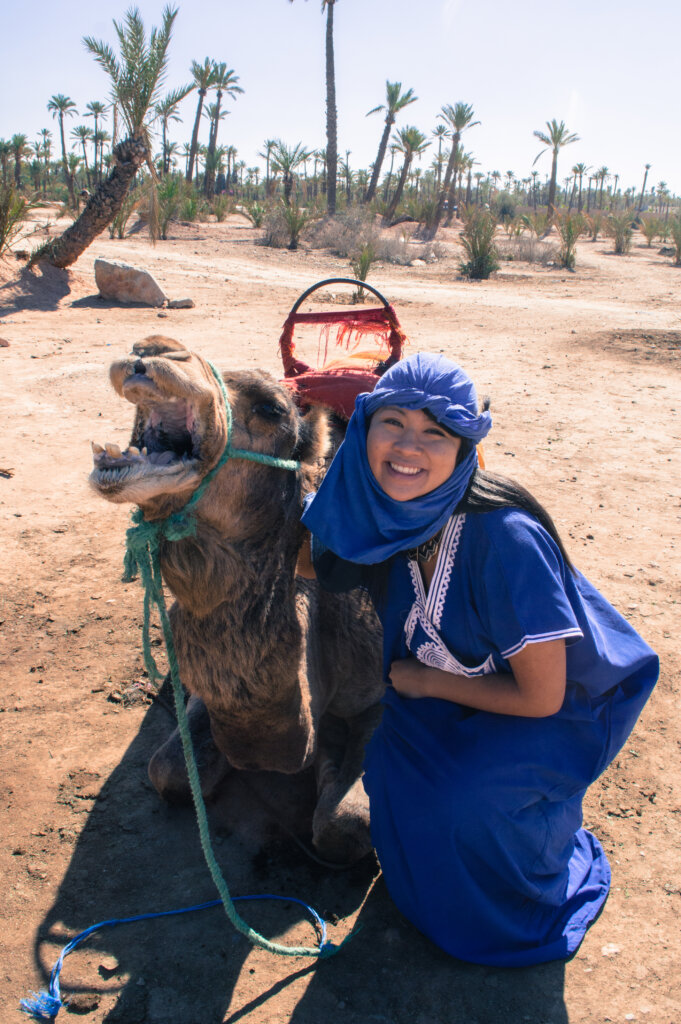
It doesn’t matter what you’re wearing or who you’re with. If I could still get cat called while wearing a big doofus jacket while holding hands with my boyfriend, then you will also get some unwanted advances.
If you tend to sensitive about these things, remember just how common it is, and I beg you: don’t let it ruin your trip!
My approach is to just move on and ignore. Don’t make eye contact, don’t smile. If you smile, you’re essentially inviting them to talk to you… so don’t do it. Just keeping walkin’, cool as a cucumber.
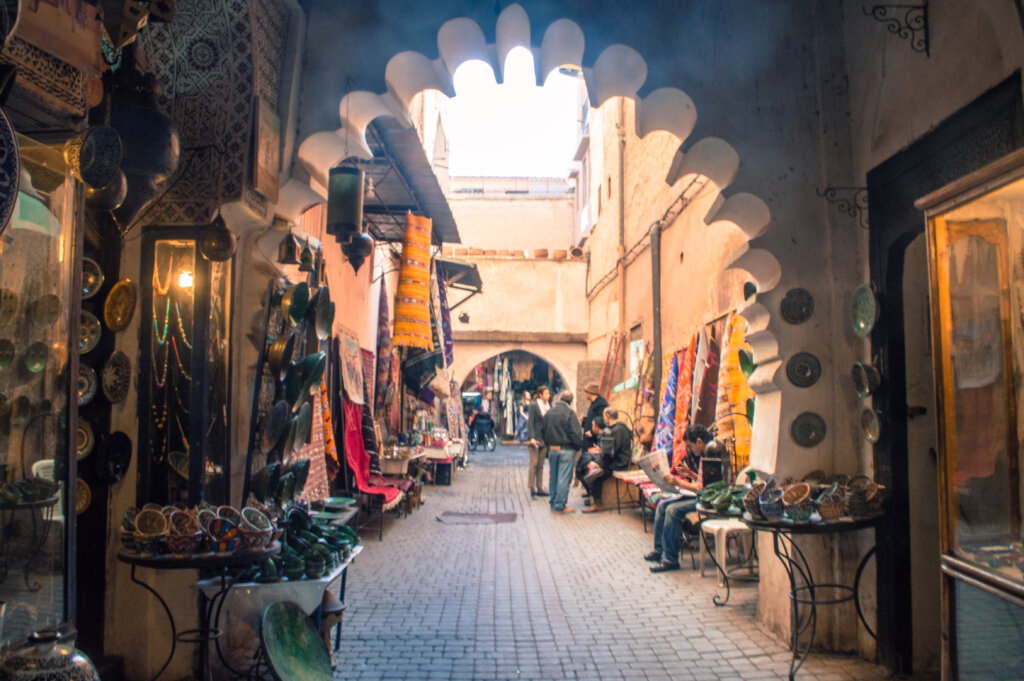
12. Dress appropriately
So, a lot of girls wonder what is considered “appropriate” dress in Morocco… and luckily, I have a full guide on what to wear in Morocco , so check that out for more details.
But here’s a quick digest. The truth is it’s not really about what you can and can’t wear.
You CAN wear a spaghetti strap tank top and Daisy Dukes, I mean… nobody is going to arrest you, but you WILL feel terribly uncomfortable.
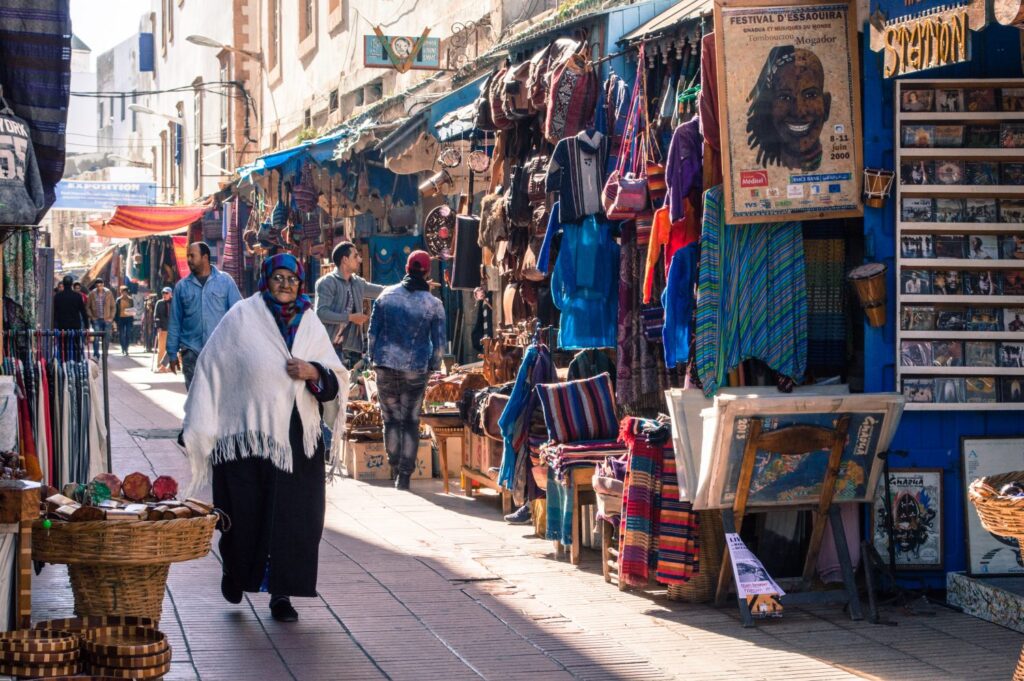
It’s true, many Moroccan women will wear what they want, but remember that you (as a foreigner) are already going to stick out like a sore thumb so it’s really a matter of dressing in a way that a) you’e comfortable and b) minimizes unwanted attention.
As a good rule of thumb, I would say to cover your legs and cover your shoulders.
In Marrakech, there was a MASSIVE difference for me when I wore a dress one day vs. pants on another. Even though it was a long-enough dress (around knee-length), the amount of eyes that began to slide down and focus on my calves was too damn high.
So, I would encourage dressing modestly, with an emphasis on covering shoulders, legs and cleavage.
You can read my full packing guide (and free packing list) for Marrakech here.
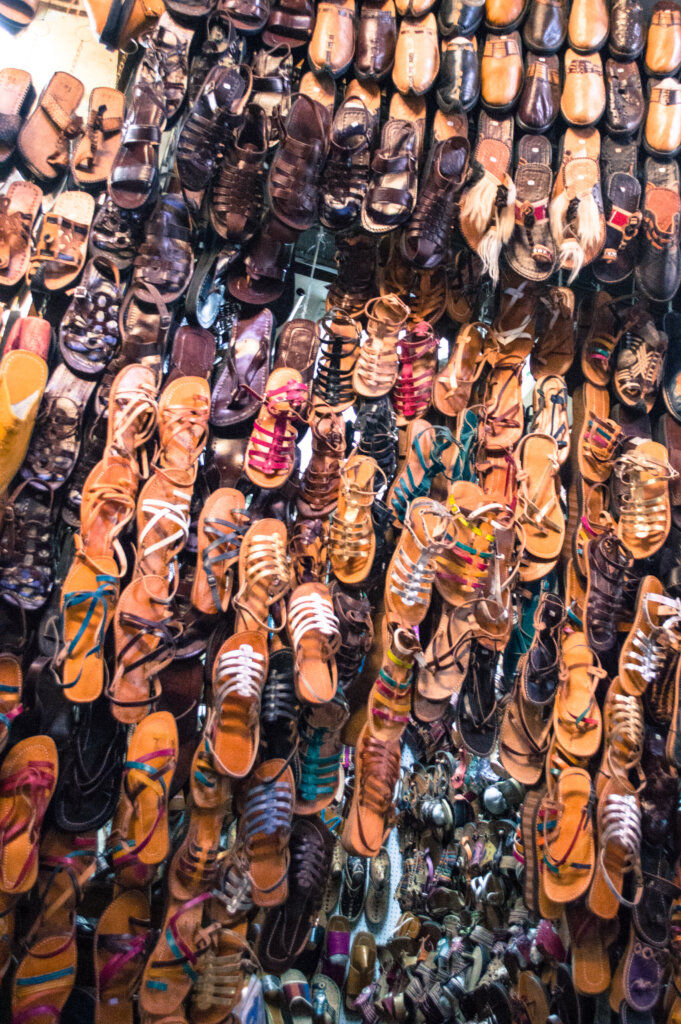
13. BYOT – Bring your own toilet paper
Seriously guys, bring your own toilet paper when you travel around Morocco.
Sometimes you’ll be lucky and there will be a cute lil woman at the front selling tissue for a small price (usually this is the case with rest stops) otherwise you’re on your own. #ShakeShakeBaby 😉
PRO TIP: I highly recommend just buying tissue packs in bulk. You can literally buy an entire case for less than $30 here . It’s always good to have them on hand, and buying in bulk is cheaper.
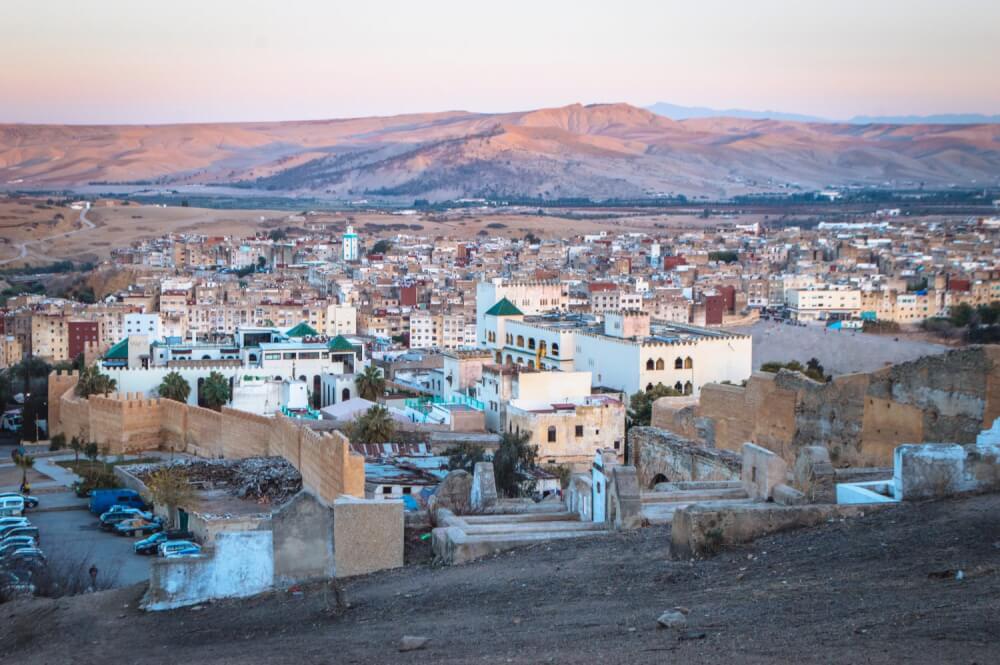
14. Cash is king
Trust me, you need to have cash on you when you travel around Morocco, in small bills if possible.
We encountered a few taxi drivers who told us he didn’t have any change for big bills (whether or not that’s truthful or just fishing for a larger tip, I’m not sure!)
BUT remember: you should always carry some change with you as well, whether for tipping or having exact change for cabs/services.
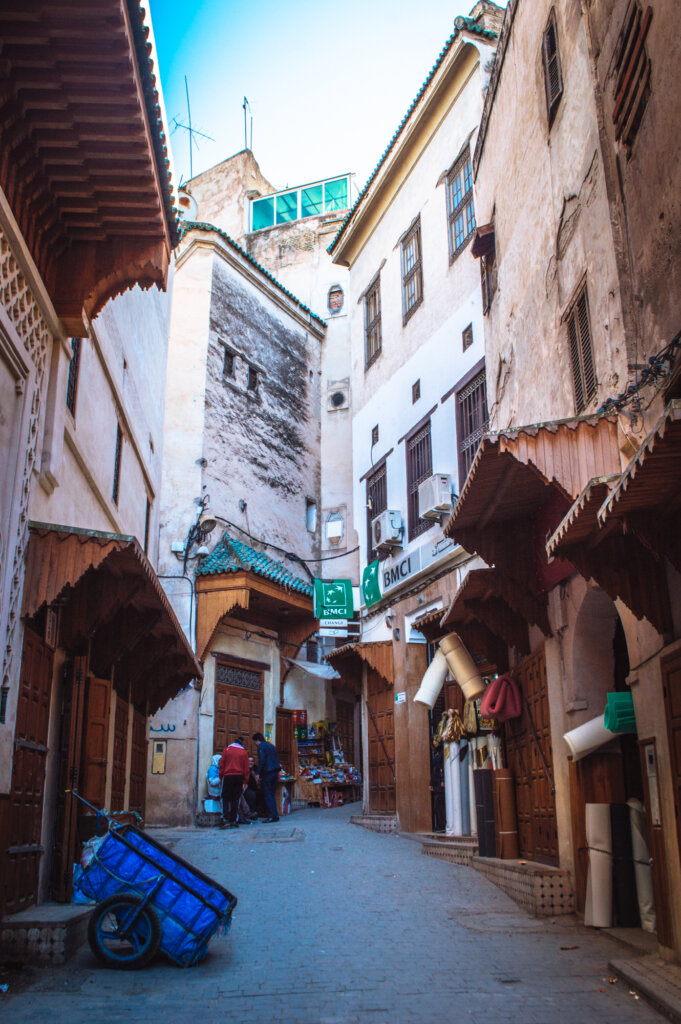
15. Fridays are holy days
Fridays are considered a holy day for Muslims, and so on Friday, you’ll find that the souks might be a little quieter and that the operating hours of certain shops might vary.
A lot of visitors get scared that everything will be closed on Fridays, but for us this wasn’t the case.
The major tourist attractions and main “tourist heavy” spots will remain open, but there were definitely a lot of noticeable shop closures as well. Just plan accordingly and don’t leave all your big shopping days to Friday and you’ll be fine.
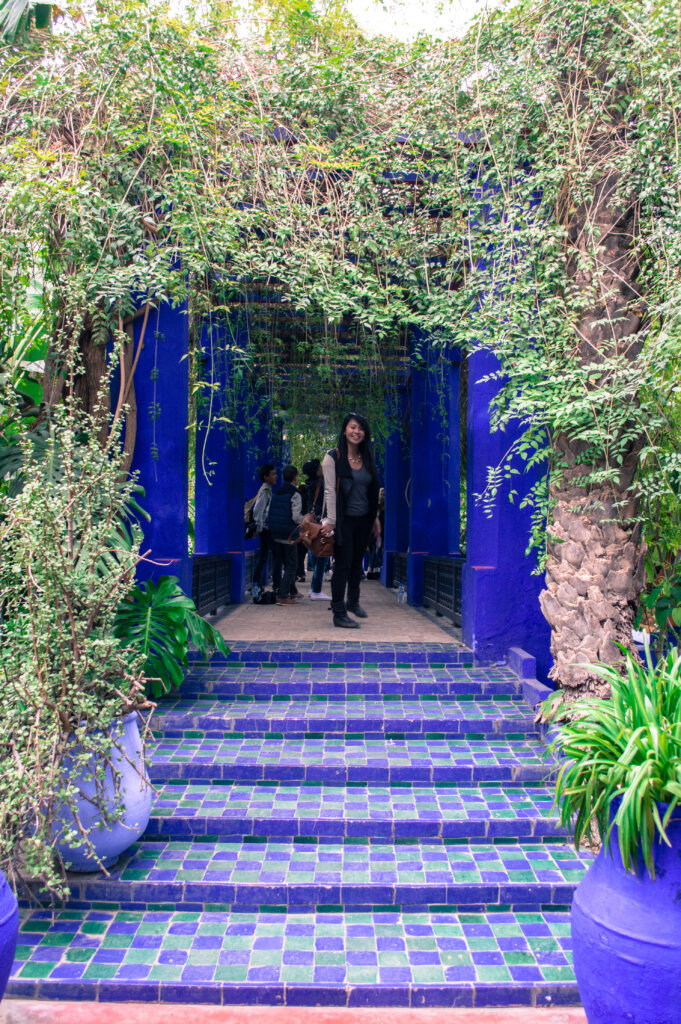
16. No need to really book tours in advance, there are loads of tour operators and options once you arrive
A lot of people stress out about getting a tour booked for activities in advance.
I really don’t think this is necessary.
There are so many tour operators going to the same places every single day that you could easily (if you’re feeling spontaneous) just wait until you’re there to make any further plans.
If you are a very Type A planny type person though, you can also book online. I like using GetYourGuide for things like this because they have a low-price guarantee 🙂
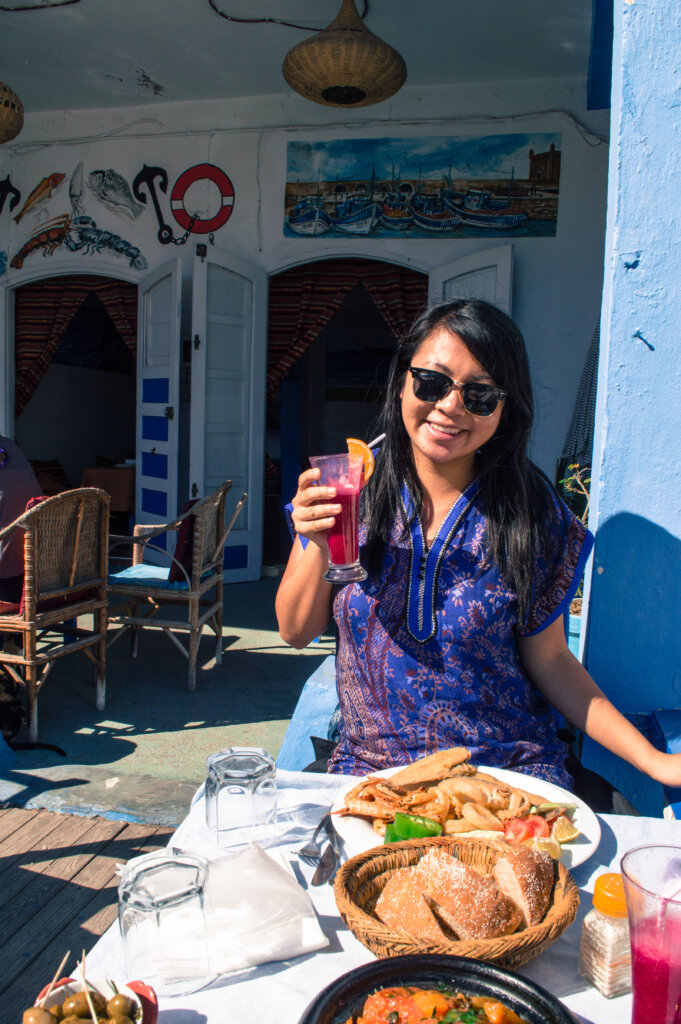
17. It gets surprisingly cold
I know – usually when travellers think about Morocco, their minds go to this warm sepia-toned image of a sun-drenched country, of deserts, palm trees and warm balmy temperatures.
This can be the case yes, but temperatures really do drop at night, and it can get very windy by the coast.
Be prepared for the weather and do your research beforehand. Always pack a jacket!
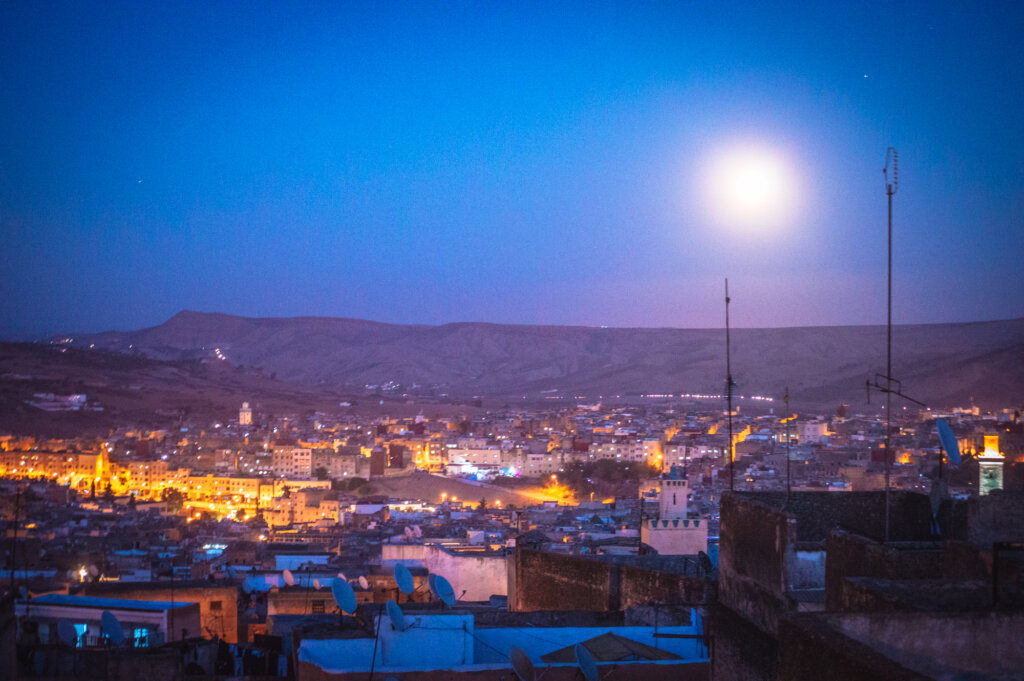
18. You will inevitably get lost
See it as part of the fun!
Undoubtedly you’ll have already heard of how romantic and wonderful it is to “get lost in the dizzying labyrinth of Moroccan souks” – what most blog posts seem to glaze over is that it’s ALSO kind of scary. Maybe really scary – especially at night.
Know this: if you don’t get lost at some point, you haven’t had the real Morocco experience… just be careful, (again, especially at night).
And remember: worst comes to worst, if you’re really super lost, there will most likely be someone around willing to guide you back home…. for a small fee of course 😉
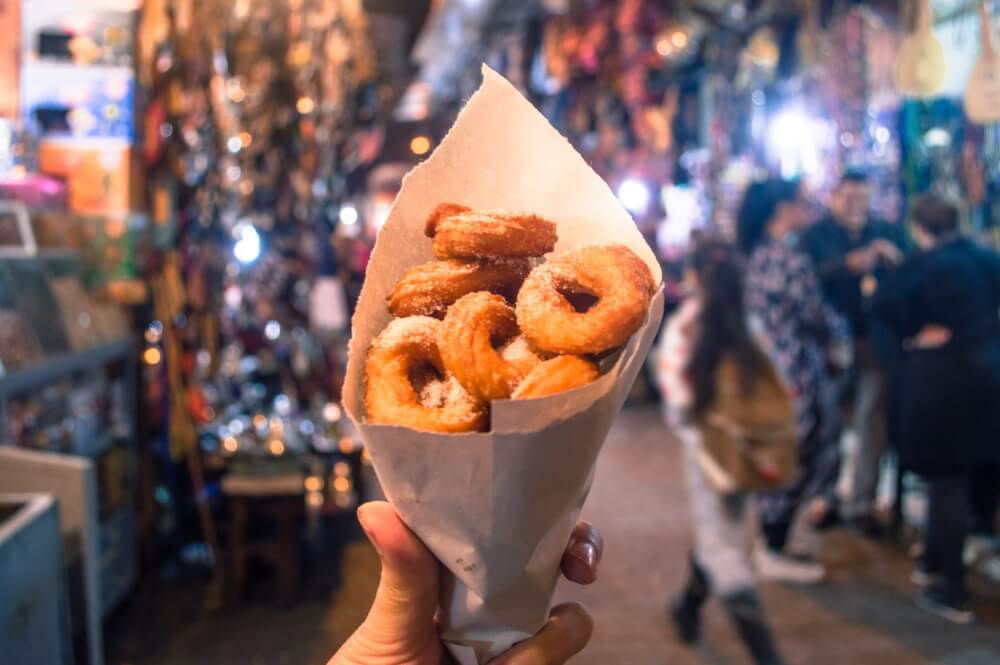
I hope you enjoyed these Morocco tips!
Alright, I hope you enjoyed this roundup of must-knows before you travel to Morocco, packed with travel tips and advice! If you have still have any Morocco-related questions, feel free to ask away in the comments.
My Go-To Travel Favourites:
🧳 Eagle Creek: My favourite packing cubes
💳 Wise: For FREE travel friendly credit cards
🍯 Airalo: My go-to eSIM
🏨 Booking.com: For searching hotels
📷 Sony A7IV: My (amazing) camera
✈️ Google Flights : For finding flight deals
🌎 WorldNomads: For travel insurance
🎉 GetYourGuide: For booking activities
56 thoughts on “18 Super Important Must Knows Before You Travel to Morocco”
“Your Gram will be lit” had me laughing! I love the way you write. 🙂 I actually really like that cash is king in Morocco. I always pay by cash anyway when I go to foreign countries, just easier to stick to my budget that way! 🙂 – Charmaine Ng | Architecture & Lifestyle Blog https://charmainenyw.com
hehe glad you enjoyed the post! <3
I have been wanting to visit Morocco for a while now and really want to share the experience with my boyfriend, but he’s not sold on the idea. Will definitely show him this post, so much great advice! I’m especially excited by the food 😀
It’s a very fun place if you go prepared 😉 Hope you get to see for yourself sometime soon!
Wow! Wow! I loved your post! Extremely informative as always. What I loved the most was that you encouraged people to accept Morocco for what it is rather than labelling it ‘unsafe’ etc. So many times, I tend to write off a place because people write such strongly worded articles! Kudos to you girl! 🙂
Great list for big cities 🙂 ! I’d add that tap water is not really safe to consume (or even brush your teeth with) and – fun fact – you won’t see any gyms 😉 :p
What a fantastic and descriptive cultural guide! I am going to Morocco soon (I hope, once I get my visa) and besides tips where to snap Instagram shots, there are hardly any advice on, you know, how to behave in Morocco and what to expect. Read it from core to core and pinned for my upcoming trip. Well done!
I really want to visit Morocco and been readin up a lot of posts on it recently. Wow these are great tips. I didn’t realize Chefcheoun and Marrakech are so far! And oh my better brush up on my Francais!
I love this! Chefchaouen is on my hit list. I love that you are straight up about the practical things, you’re writing style is great – I feel like in my head we would be friends 🙂 Thanks for a great read!
Awesome post! So much useful info wrapped in a funny way, hehe.
Very handy post! <3
https://carmelatte.co/dubai-tour-guide-firsttimers/
Such a great list, thanks for sharing! It’s a bit disappointing that non-Muslims can’t visit mosques, but that’s still something I’d prefer to know ahead of time. Great tips so I can set realistic expectations when I go =)
This is such a helpful post-Christina! Thanks for sharing such valuable advice 🙂 We were considering going to Morocco this year and will keep your advice about not being an overachiever in seeing everything lol Also I had no idea they spoke French there!
Love this post super helpful tips! I have been considering travelling to Morroco but like you mentioned have heard so many people say they hated it – I feel so much more confident that’ll I’ll love it after reading 🙂
Wow! Very well said! I wish I knew about the toilet paper before going to Morocco, it’s a serious problem! And it’s important to dress appropriately. They might be considered more open minded since they have plenty tourists but it’s still required to cover yourself to avoid creepy stares!
I LOVED Morocco. In addition to French, knowing a few basic words in Arabic, like hello and thank you will definitely win you some friendly smiles!
You should try Bastilla. It’s a perfectly amazingly delicious blend of savory and a little sweet (but not too much). So good!
Wonderful tips, and I love your sense of humour.
‘Nice one!
Thanks for reading, Victoria! <3
I was laughing throughout the whole post! Great tips for someone who is getting ready to go to Morocco in just a few days herself. The country looks amazing and I’ll have to learn some French and bust out the haggling skills for sure!
Haha glad you liked it! Hope your trip is amazing 🙂
This was an extremely helpful post. Thank you for sharing your advice. I can’t wait for my trip now 🙂
Yay! Have a great trip, Natalija! <3
SO well written and helpful. THANK YOU!
you’re welcome, Kimberly. Thanks for reading!
So beautiful post. This country is my favorite since i have been there in 2014.
So happy you enjoyed it!
Wonderful Article!! … Completely spectacular photos, thank you for involvement
Wow!! I love the way you write! You also put my mind at ease about quite a few things. I met an amazing Moroccan guy online and we have been talking for a little while now. Finally planning a trip to go and meet in person and cannot explain the anxiety I’ve had trying to research so much about this awesome country so as not to do anything to look foolish or heaven-forbid insult anyone while I am there. (I mean he wants me to meet his family and even stay there with them!! Yikes haha no pressure there!!) For the most part I am quite comfortable talking with him but there is just enough of a language barrier that finding answers to some of these basic questions is just much easier researching them on my own. Finding your blog helped SO much. I only have found 2 Moroccan restaurants in my city and as big of a nerd as I might seem, I am seriously planning to go and befriend anyone there who can help put my mind at ease further! I have so many questions!! Anyway, again, THANK YOU! Jess
Glad to hear that you had such great stay in Morocco, you are always welcome back 🙂
Hi, I loved your post ! Have been to Istanbul, I retained mostly : 1. Bringing a whistle 2. Toilette paper or kleenex 3. Small cash Thanks, great help Linda
super fun to read – thanks christina!!
Thank you for the information. Well written. I’m considering a trip there.
So helpful! And my fav tip, “You gon eat!”
Planning a girls trip and trying to convince everyone that this can be as fabulous a trip as other places we’ve gone! If not even moreso!
Will be sharng your post!
I have wanted to visit Morocco for a while now and really want to share the experience with my friends.
Thanks for this helpful article. It’s good to have these information.
Thanks for this advises but I guess your advise that say we need to fresh up our french language is a little bit hard but every problem has a solution when you have google on your smartphone.
Funny how many memories this post brought back. I went to Morocco 2 summers ago and was put off by the cat-calling, “konichiwa”s and “ni hao”s, and pushiness of people on the streets who were preying on tourists (“tour guides” following us to try and get us to go on a tour with them, street performers practically forcing themselves on you for money, etc). We knew it would happen but just weren’t expecting so much of it. It probably didn’t help that my whole family got food poisoning too but I think you really just need to be prepared for a different culture and attitude toward tourists and look beyond it to enjoy a trip in Morocco.
I am actually from Morocco, and reading your post is definitely educational, Thank you for sharing such valuable tips with us.
This is excellent! I’m going to travel to Morocco in September for about 12 days and your article is very useful! I cannot wait to be there and yes very much looking forward to try their delicious cuisine!
Thank you for the tips, a lot of the tips can be applied on other places.
Hi, Needless to say, Marrakech is outstanding amongst other travel puts in the entire of Africa. I have been to Marrakech several time. Everything looks so regular stuffed with culture, history and convention related with it. And in the Sahara desert, fascinating Mosque engineering, riads, Medinas, mint tea and some more, Marrakech is a very good place to visit.
was our first time visiting Morocco and we definitely made the right choice by choosing this tour. I picked this one specifically because I didn’t want a tour company that had seen so many tourists that they start to not care about taking people around their country. Where it’s more a money-making business, where you are part of a big group and you will not receive any sort of bespoke individual experience. We were so lucky to have ismail as our tour guide as he was a genuine and nice person, who loves his country.
From the very first email ismail was extremely polite and helpful, more than any other tour company I’d spoken to. We ended up travelling with just him, my husband and me. We went from Marrakech to Ait Ben Haddou, to the Todras, Atlas Mountains, several Oasis and obviously to the Sahara desert. It was still a whistle stop tour as we only had 3 days but it was definitely the way to go. Having stayed in Marrakech for 2 days I was very much ready to leave the hustle and bustle (and generally being harassed at the souks) to explore what Morocco was really about.
Todras gorge was really lovely. There had been some rainfall so you could walk into some of the water. Really nice. It was quite busy though, but no more than the other big landmarks like Ait Ben Haddou.
My favourite place was actually Skoura, one of the little Oasis on the first night. The place we stayed was run by a family business and you can really tell. It was remote, but stunning. Not at all touristy, and very authentic. The food was the best I’d had in Morocco, just divine! Just as an aside, although I love tagines, you do want some change, so this was the one that stood out as it felt a little more authentic. Most of the food you’ll get in Morocco (not just in the tour) is very similar — varying types of tagines, wraps or kebabs, with rice or salad. Not a huge amount of variety unless you really look for it. We loved Nomad in Marrakech, this restaurant has amazing food!
The trip to the Sahara was amazing, albeit short. We set off on camel when the sun was quite low, maybe 6–7pm and then arrived at the camp by nightfall. We had dinner with a few other people on the tour, and the locals did a song and dance for half an hour or so. We then ventured out to the desert to see the stars, and although we went back to the camp around 1am, the moon was so bright you could have slept under it for sure. The temperature was perfect. However we had to leave at about 5am to catch the sunset, so thought we’d better sleep in the bed. The camp was extremely clean and nice given it’s in the middle of nowhere, so if you’re a clean freak like me, you’ll have no problems! There’s good toilets and running water. You sleep in a type of metal room, which is probably ventilated but still quite warm. The beds aren’t exactly comfy, quite hard really, but there’s electricity and sheets, what else do you need!
You can see more of my adventures and what I experienced from my pictures. All in all, what you see is what you get. The tour speaks for itself. You visit all the places on the itinerary and you’re greeted with nice people and go to places that are really quite unique. On top of that, you’ll be with a guide who knows a good deal about Morocco and will work hard to make sure you have a good time. We were even privileged enough to see ismail home, meet his family (they were very shy!) But an insight into how Moroccan people actually live? That is something you can’t buy.
Really enjoyed my time in Morocco, so thanks to ismail and the team at Moroccodeserttour4x4.com recommend this tour company.
Hey Christina, I am Youssef from Morocco. Thank you si much for sharing such very useful info about Chefchaouen and travelling to Morocco in general. This is really amazing post with incredible pictures. Thanks a lot
good one thank you for sharing
First of all Thank you very much for awesome articles about Morocco, interesting with its great informations, we really appreciate your heart work to seat and to write this post about Morocco during your period touring around the country, it is not easy to travel from city to another for to share this important informations with other travellers. Thank you much very again.
Hi! Christina thanks you so for visiting Morocco. We are so happy to meet people like you….
That’s all amazing! waiting for another wonderful article!
Just amazing article about this wonderful city. I really enjoyed reading this blog and I appreciate your sharing. A huge wave to you!
Hello Christina, we are happy you had a great stay in our country, and you visited some of the most visited places… We appreciate you sharing this amazing article!
Hey Christina, your article made me speechless. Morocco is an outstanding and breathtaking country to visit… Your blog is very informative and helpful to everyone willing to visit this amazing country, and I appreciate your sharing with us!
Very informative blog… Lovely act of you to share this beautiful city!
Thank you for the input You got a fabulous blog!
Das ist verklich super danke
Incredible post, full of many info that will be helpful to any newcomers, thank you again for sharing with us.
Best article thank you for sharing it really amazing
Leave a Comment Cancel reply
By using this form you agree with the storage and handling of your data by this website. *
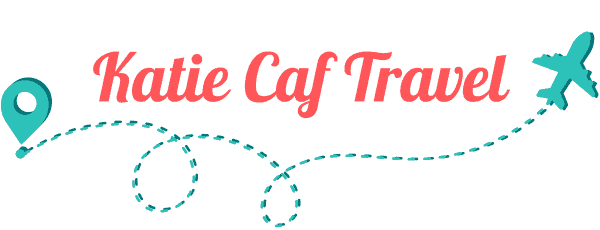
25 Essential Morocco Travel Tips for Your First Time Visiting!
Morocco is a tricky destination for travelers, it’s full of harassment, touts, and scammers, but also gorgeous architecture, great food, and kind people. I’ve been traveling to Morocco frequently over the past three years and here are 25 essential Morocco travel tips I wish I had known before my first trip!
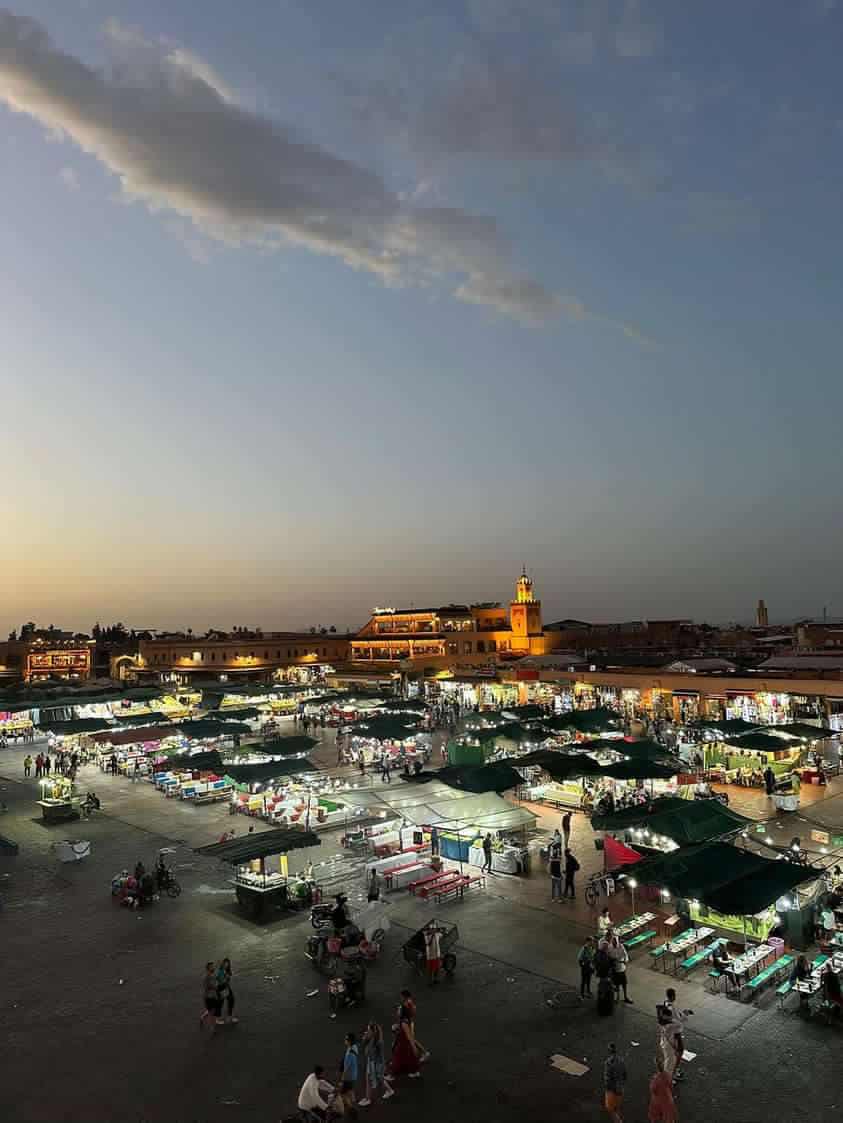
25 Essential Morocco Travel Tips
1. don’t listen to anyone who comes up to you on the street .
There are a lot of Morocco travel scams ! This is sad but really no one approaching you on the street in the bigger cities like Marrakech or Fez is doing so to be nice. Or at least, that’s the mentality you should keep. As a rule: don’t pay any attention to anyone coming up to you on the street. Just keep walking.
People will come up to you every three minutes saying “My friend”, “where are you from?”, “What is your name?”, “Where are you going?”, “you’re going the wrong way”, etc. You can’t interact with them all. If you need to ask for help, Moroccan people are really friendly, but anyone coming up to you on the street for any reason is likely a Tout and they’re just going to bother you and ask you for money at the end.
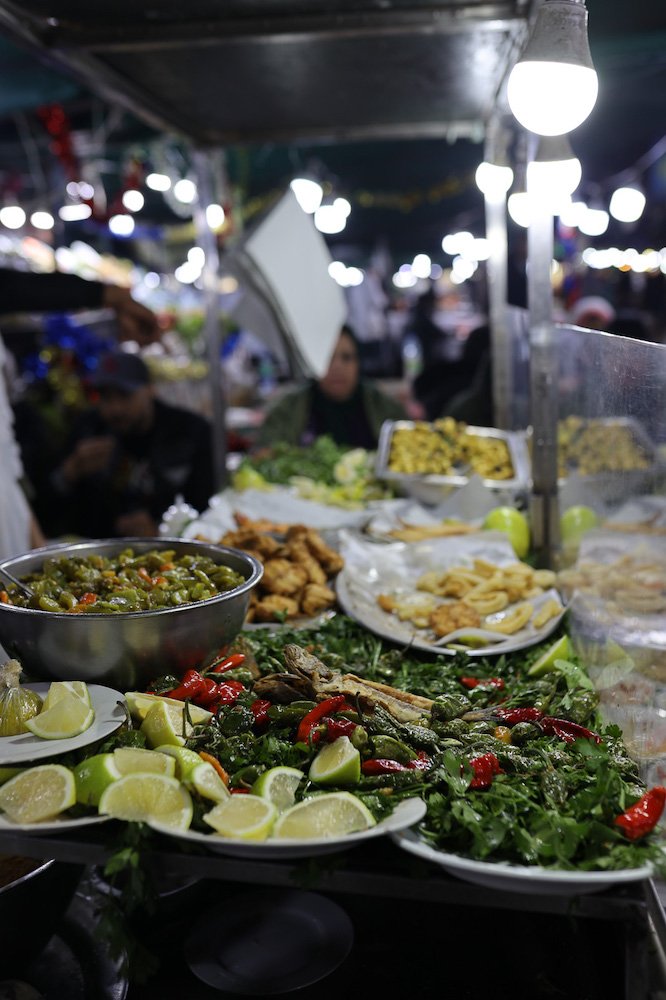
2. Try the Amazing Street Food! I Recommend a Street Food Tour in Marrakech
Moroccan street food is AMAZING and you can find a great variety of street food and fine dining in Marrakech. I think Morocco is my favorite food location so far out of everywhere I have traveled to! Going on a street food tour is the best way to try the most while minimizing harassment from the Touts and stall vendors – If you don’t have the time/budget for a whole street food tour I recommend trying the following shortlist:
- Tajine from Cafe Des Epices
- Couscous (but only on Fridays!)
- Calamari from stall #14 in Jemaa El Fna square
- Msemmen (Moroccan crepe)
- A mixed-meat sandwich from Chez Hicham
- Moroccan Escargot from any vendor in Jemaa El Fna Nightmarket
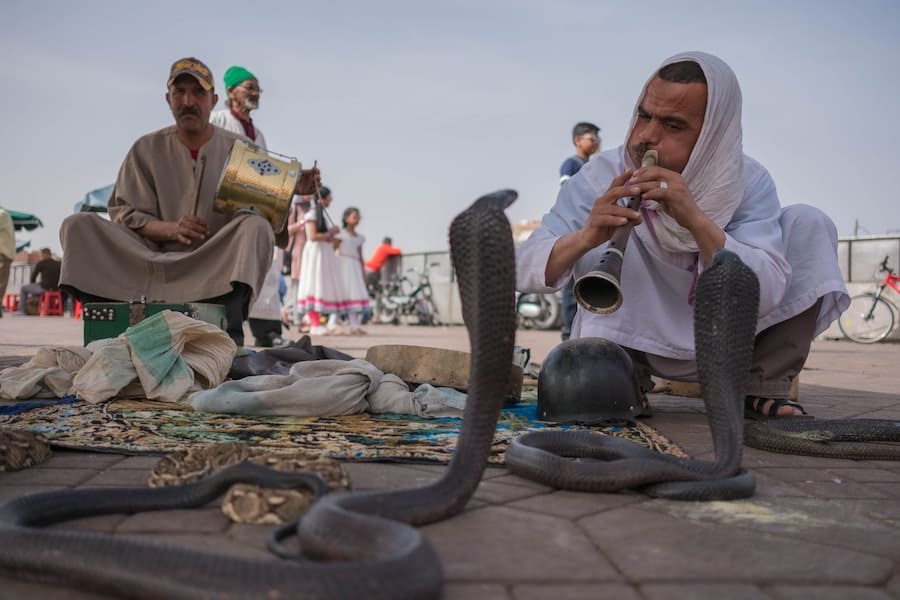
3. Ask Before You Take a Picture – It Might Be Illegal!
I was trying to record a little video of me disembarking the airplane when I landed in Casablanca and was totally shocked when one of the airplane stewards ran out and told me that it was illegal to film in public and I had to delete my footage!
I read into the laws in Morocco more after this and there are conflicting things online. Some sources state it’s only illegal to take photos and videos of police officers and other government officials, and some sources say it’s only illegal to record images of citizens if you intend to share them in a “defamatory way”.
It seems like the airline steward was incorrect and it’s not blanket illegal to take photos and videos in Morocco, but I was asking around after this incident and a lot of Moroccans think that is the law. So, if you’re running around taking photos and videos without asking, not only is it considered disrespectful but also illegal by a lot of Moroccan citizens. Make sure you ask first!
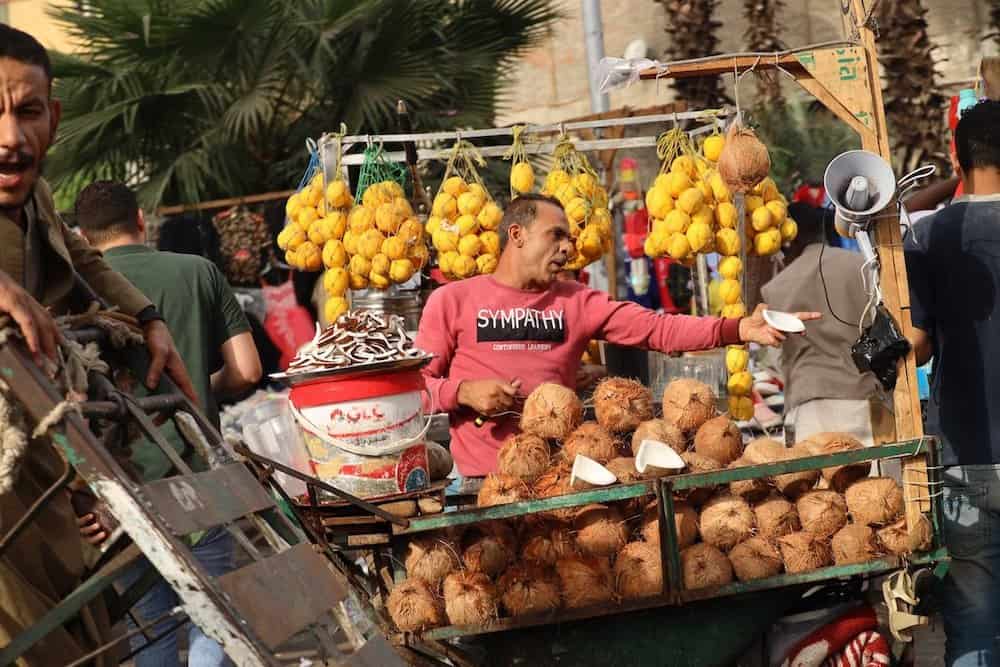
4. Be Prepared To Haggle (for Everything, Including Taxis)
I’ve been living out of a suitcase for the better part of a year now so I’ve gotten used to not being able to get souvenirs. But, if there’s one place I really felt like I was missing out on shopping, it would be Morocco. I’ve already promised myself that one day if I ever settle down I’m going to come back and buy everything for my home (yes, the shopping really is that good). It can also be a bargain IF you know how to haggle in Morocco .
I was with a friend in the souks who was about to go home and was filling up her suitcase first – she spotted some glittery kaftans and asked the shopkeeper how much, he said 500 Dirhams! ($50!). That is a LOT in Morocco but was even wilder was this place was clearly selling “Moroccan-themed items that looked like they had come straight from Shein.
After going back and forth with the shopkeeper she only got him down to 300 DH, or around $30, which was probably about 3X too much still. At the next stall, we stopped at I asked her to let me haggle for her – she was buying a little trinket and the shopkeeper wanted 150 DH, I said 50, he said he couldn’t do more than 125.
I said okay, thank you and walked away.
Then the shopkeeper came running after me saying “Okay, 50 for you my friend!”
That’s it. That’s the trick. That’s all you have to do.
I’ve seen people be ripped off in the souks paying 100x for what something is worth or wasting 45 minutes haggling away their vacation. The best way to haggle in Morocco is to just be very polite, say how much you’d like to pay for something – and if they say no, then move on.
All of the stores sell pretty much the same thing, and it’s the best way to get a rough estimate of how much things should cost. After you walk away, if they follow you and give it to you for the price you stated then you know you named a good price. If they let you go, then the price you named was too low, and you could either go back and agree to their price or just make a mental note going forward.
👉 Tip: The “correct” price in the souks is almost always at least less than half of the price originally named.
👉 Note: This is only for the markets, Restaurants usually will have prices posted/aren’t places for haggling.

5. Pack Light ! Many of the Streets in Morocco’s Old Towns Cannot Fit Cars
I’ve stayed in different cities and towns all over Morocco, and unless you’re staying at a large hotel it’s unlikely you’ll be able to drive up to the door of your lodging. A lot of streets in Morocco, especially in historical areas that get a lot of tourists, don’t have streets that were designed for cars.
For example, in Marrakech cars can only enter the windy streets of the old souks after sunset, and even then it’s unlikely you’ll be dropped off at the door of your Riad like in a modern city (these streets are older than cars, after all!). In the Old Medina of Fez, cars can’t enter at all, So be prepared to have to carry all your luggage to your destination by foot. If you’re staying in the old Medina in Marrakech (which I recommend, it’s a truly unique experience) you’ll likely be dropped off in Jemaa el Fna square and have to walk the rest of the way.
If you have more than you can personally carry you’ll be at the mercy of the Touts. The Touts are pretty much anyone off the street in the Old Medina who tries to “help” tourists and then demands a big fee at the end, and no matter what you give them they’ll make a stink that it wasn’t enough. It’s not the end of the world, but to ensure you have a good time visiting the city either pack no more than you can personally carry or arrange a pickup with your Riad/hotel.

6. Don’t Interact With Touts On The Street – AKA the People Asking “Where are You Going?”
What is a Tout? A Tout is an illegal guide common in a lot of touristy places but especially common in Morocco and Egypt. They’ll “help” you (sometimes not) and then demand a fee for their service. Often they approach tourists who don’t need help and guilt them into accepting their services.
The Touts really are the most unfortunate part of Morocco. I just put my headphones in, and sunglasses on, and walk when I’m in a city like Marrakech or Fez. Looking straight ahead. Not making eye contact with anyone.
It’s the only way to keep from getting roped in a 20-minute struggle with someone demanding money for no reason, and then chasing you down the street saying “F you woman!” (yes. that actually happened to me on my last trip). Why do I keep going back then? Because Morocco is amazing. The food is terrific, and the people are SO kind, but the Touts are a huge problem.

7. Don’t Hail A Taxi On The Street From The Airport – You’ll Most Likely Get Scammed
Unfortunately for travelers, Uber in Morocco hasn’t caught on yet – so you need to negotiate taxis off of the street. The taxis from the airport charge 10-100x as much as they should. Taxis are VERY inexpensive in Morocco ( a 10-minute ride is about $2 ) but the ones at the airport know you don’t have any other options. Either take a train (the trains in Morocco are fantastic) or bus to the city center and take a cab from there or arrange a pickup with your hotel.
If you really have to take a taxi in Morocco from a train station or airport I’ve also used a trick where I have my Riad host talk to the taxi driver over Whatsapp. They’ll do the bartering for you and you’re more likely to get the local price this way. Make sure to ask your host first if it’s okay with them, but most Moroccans I’ve met really want you to have a good time in their country so you should always be able to find someone to help.

8. Take Out Cash As Soon As You Can – Morocco is a “Cash is King” Country
Morocco is a “cash is king” country so taking out a chunk of change at the airport before you go anywhere will help you out in the long run. Just make sure to use an ATM connected with a bank, and also be sure to decline the conversion fee the ATM offers you. Usually, the ATMs in Morocco will charge 30-50 dirhams ($2-$5) per transaction and will ask you to approve this fee. After you hit “yes” a second screen will pop up asking you to accept their conversion.
If you read the fine print on this page, which not a lot of people do – a lot of people just hit “yes” instinctively, you’ll see they’re adding a 6-12% markup (!!!!). You don’t have to accept this, if you hit “no” on this page the transaction will go through, but you’ll get the better deal.

9. Stay In A Traditional Riad (It’s Cheaper Than a Hotel & a Cultural Experience)
A Riad is a traditional Moroccan bed and breakfast. It usually is a home with multiple stories centered around a courtyard, and most also have a rooftop terrace. Riads are unique to North Africa and are synonymous with a trip to Morocco. While Moroccan luxury tourism is world-renowned, Riads actually don’t have to be that expensive.
What really blew me away was that it was the same price per night to stay in a Riad as it was to stay in a hostel! For only around $30 a night I was able to stay in this gorgeous home with hand-carved doors and a courtyard garden, as well as have a huge homemade breakfast. Marrakech and Fez don’t have much of a hostel culture, so even if you’re on a budget I would recommend springing for at least one night in a Riad.

10. Help The Stray Cats & Dogs
One of the things I love about Moroccan culture is how wonderful everyone is towards animals. During my time in the Old Medina, I noticed there are a lot of cats and dogs around mosques, this is because all the locals pitch in to help care for them. I always walk around Marrakech with a few tins of cat food in my pocket just in case I see some hungry fur babies, and this is encouraged by the locals! So don’t feel like you’re feeding someone’s pet when you’re not supposed to be.
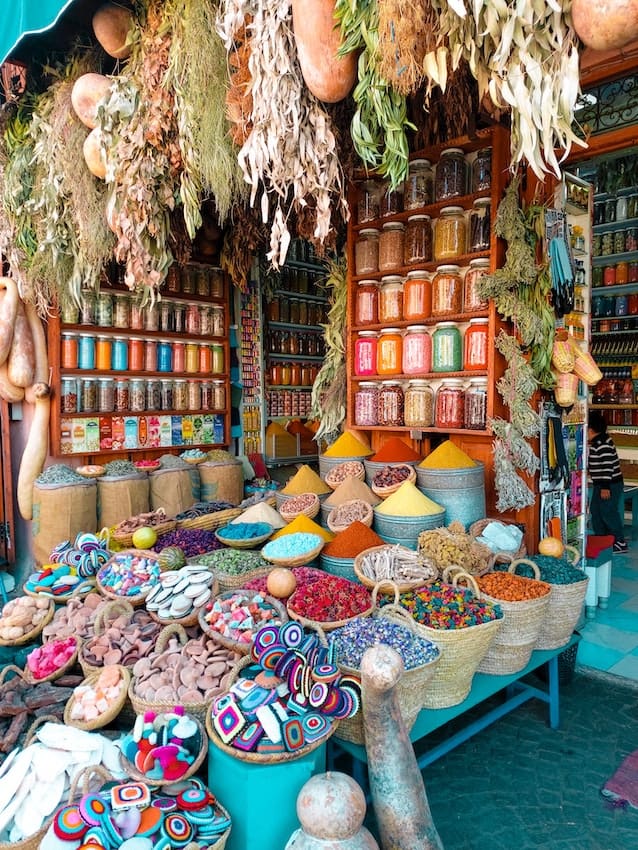
11. Don’t Shop With A Guide – You’re Not Going to Get a “Better Deal”
Sigh. Just don’t. I took a lot more organized tours in North Africa than I usually do because I was with my friends, and it always grinds my gears the wrong way when you pay for a private tour to a certain historical site (usually I only do this when something is hard to reach, or I legally have to have a guide) and they take you to various gift shops selling wayyyyy overpriced goods.
You’d think that if you’re paying a guide to help you do the haggling, you’d get a good deal but it’s almost always the opposite. Instead, your guide is taking you somewhere they’ll get a fat commission for everything you buy – all the while the guide is saying “That’s a great price!”.
If you like your guide, tip them! But don’t encourage this! Shopping alone and bartering, unless you’re going with a close friend, will almost always get you a better deal and help you get higher-quality stuff. There are a lot of tours of the Old Medina that are really just shopping trips – being with a guide will help you a lot with the harassment but if you want to purchase something I suggest coming back alone.

12. Brush Up On Your French! Morocco is a Bi-Lingual Country
Arabic, for a native English speaker (like me), is hard . I tried my hardest to learn a bit of Arabic in Egypt, and never really made it greetings. Luckily, in Morocco, they speak Arabic and French, and French is a lot easier to pick up a few phrases just to get around. In the bigger cities, where lots of tourists are, you’ll hear more French than Arabic in general, so unless you’re going to be visiting more rural parts I’d say you’re safe just brushing up on your bonjours.
Fun fact: I was talking to an anthropologist on a train in Casablanca who said there are over 100 different dialects spoken in Morocco by the indigenous Amazigh people, some of which haven’t even been written down yet!

13. Don’t Go On A “Tannery Tour” In Marrakech
In Fes, another popular city to the north of Marrakech, the tannery is a famous tourist attraction. This is not so in Marrakech. If you see someone advertising tours to the Marrakech tannery or trying to take you there unprompted, it’s a scam. What usually happens is they take you to the tannery and then demand payment for “guiding” you there, even if you didn’t ask them to.
The Tannery is in a secluded area and I’ve heard of tourists being pressured to give up more and more money once they’re there, so just don’t go! No real tour guides in Marrakech will offer to take you to the tannery.
14. Don’t Drink The Tap Water
You see more people drinking tea over water in Morocco and that’s in part due to the way boiling water cleans it for consumption. Even the locals that are used to the tap water sometimes get an upset stomach depending on the area. The first time I traveled to Morocco in 2019 I was schlepping 20-packs of water bottles through the streets, but to save my back (and the environment) now I always travel with my GRAYL bottle that cleans out any viruses or bacteria in water.
💧 Tip: Using my GRAYL bottle I was able to drink the tap water all over Morocco without any problems!

15. Do Download Google Maps Offline
The Old Medinas in Morocco are windy mazes of footpaths that it’s very easy to get lost in. Luckily, even if you don’t get a local sim card or have cellular service while you’re in Morocco, you can download the map of the souks offline on Google Maps and always know where you’re going!
I’ve used Google Maps on my past two trips to Morocco and while it misses some tinier alleys it’s been very reliable. Downloading a map of the medina offline is the best way to avoid touts trying to convince tourists they’re going the “wrong way” (and then demand money for bringing them the “right way” 🙄.

16. Don’t Believe A Street Is “Closed”
The Touts in Morocco can be Oscar-worthy actors at times. One time a tout started crying while telling us a street was closed when it was clearly a well-trafficked main road! A “wrong way/ street is closed” scam is basically when someone sees a tourist and asks them where they’re trying to go.
No matter what the tourist says, the answer is always the same: “oh no, you’re going the wrong way, here follow me”, and the scammer will proceed to lead the tourist to their shop/restaurant, or in more sinister cases somewhere secluded where other guys are hiding to rob them. In Morocco, Touts bypass the formality of asking “Where are you going” and just skip to telling every tourist they’re going the wrong way.
Walking down the lanes of the souk as an obvious tourist you’ll hear: ‘wrong way miss, wrong way please follow me” every 10 feet. It’s exhausting, especially if you’re not in on the secret and wind up being led in circles. Sometimes they’ll say “The main square is this way” to people walking in the souks. It doesn’t matter to them if you’re going to the main square or not.
Then you’ll respond “Oh, I’m not going to the main square” and then they’ll say “Oh where are you going? Where are you from?” and they’ve got you.
If you interact with any of the touts it’s super hard to get rid of them, but even knowing this it’s really hard for me to just ignore people who are trying to talk to me. It’s human instinct to respond! The biggest tip is to just ignore anyone who comes up to you on the street – but barring that, don’t believe anyone when they tell you you’re going the “wrong way”! Trust Google Maps over the touts.
17. Dress Appropriately (Both Men & Women)
While Morocco is safe for women travelers, remember it’s a conservative country where women are expected to cover up. A lot of women know that you should dress modestly in an Islamic country like Morocco, but did you know men should as well?
Nothing bad will happen to you if you show up to Marrakech with a suitcase full of mini skirts, but as a sign of respect it’s best to keep your shoulders and knees covered, this goes for women AND men. In the old Medina, you’ll notice a lot of men and women are completely covered – regardless of the temperature.
There is no legal dress code for tourists in Morocco, but to be respectful to the country you’re visiting for both genders to cover up. For women, I’ve heard shoulders and knees should at least be covered, and for men, if you’re going to wear shorts they should be longer than knee-length.
There will also be an expectation that women have their heads covered if they’re going to be entering a mosque, but not many mosques in Morocco are open for tourism. I’ve seen some tourists in the souks in skimpy clubbing outfits, and while it might increase the amount of harassment you receive, Morocco is pretty safe. Covering up is more of a sign of respect for the culture you’re visiting than anything else.

18. Visit the Crazy Jemaa el Fna In Marrakech
There’s nothing like Jemaa el Fna square in Marrakech! It’s crazy, noisy, and infinitely interesting. Jemaa el Fna is the only place I’ve seen where you could get a roasted sheep’s head, fresh juice, and a BIG bowl of Escargot for under $10 – all while watching a snake charmer! During daylight cars are allowed to transverse the square, it’s still a nice place to get some shopping done in the daytime but around 5 PM when the sun sets is when Jemaa el Fna really starts to come alive.
👉 Tip: Skip Cafe de France, which is a bit of a tourist trap, and visit its next-door neighbor Café de la Place. Not only is Café de la Place cheaper (20 DH ($2) for a tea, 80 DH ($8.50) 3-course menu du jour), Café de la Place also has a better view of the Koutoubia Mosque. Go at sunset and climb the 4 flights of stairs to the patio at Cafe de la Place for the best view of Jemaa el Fna square!

19. Get Out Of The City (At Least Once)
A lot of people come to Morocco and book a week-long stay in one of the cities like Marrakech, Fez, Casablanca, or Agadir. The cities and the historic Old Medinas are amazing – but they’re definitely not the best thing to do in Morocco. Going into the countryside in Morocco you’ll meet the indigenous Berber (also called Imazighen) people; everyone is always exceptionally kind, and the nature is gorgeous.
On my first trip to Morocco, I fled to Imlil, a village in the High Atlas Mountains, after Marrakech became overwhelming, and on my second trip, I got to visit the hippy chill beach town of Taghazout. Morocco truly is such a diverse country in terms of climate and activities, there’s something for most types of travelers. If you’re coming to Morocco for more than three days you should take at least one day trip outside of the cities into the countryside.

20. Don’t Stay In One Place The Whole Time!
It’s best to see Morocco by hopping from one place to another. If you spend a whole week in Marrakech, Fez, or Tangier, you will probably get a bit bored. I love planning my own itineraries and traveling without a tour. However, in Morocco, the public transportation system isn’t the best. Also, most of the popular tourist attractions don’t even have public transit options available!
If you’re spending 2 weeks or less in Morocco I highly recommend taking a guided multi-day tour to save on stress and get the most out of your trip. Bonus, a lot of the time multi-day guided tours in Morocco are cheaper than if you were to plan all the activities separately! This is because transportation, which is the biggest expense, is already included.

21. Learn How To Eat With Bread Instead of Forks Like The Locals
Bread is a way of life in Morocco (to this day it’s the most amazing bread I’ve ever had). Meals like Tajines are usually eaten not with utensils but with a small piece of bread in the right hand (never the left!) used as a “scooper” for all the good stuff. This takes some getting used to, but if you’re invited into someone’s home for a meal it’s the polite thing to do.
💡 Note: Meals in Morocco are usually eaten communally with everyone huddled around a big plate, using bread to dip into the main dish.

22. Know Mosques Aren’t Open for Tourism
Unlike other places I’ve visited, like Turkey and Rome, the places of worship in Morocco aren’t usually tourist attractions you can go inside of. There are some exclusions like the Hassan II Mosque in Casablanca, but by and large Mosques in Morocco are not open to non-worshippers. Tourists sometimes get confused because mosques are open to the public, so you’ll see people entering freely, but there are some horror stories of tourists wandering in and being quite embarrassed when they get escorted out: so unless otherwise specified just don’t enter a mosque in Morocco!
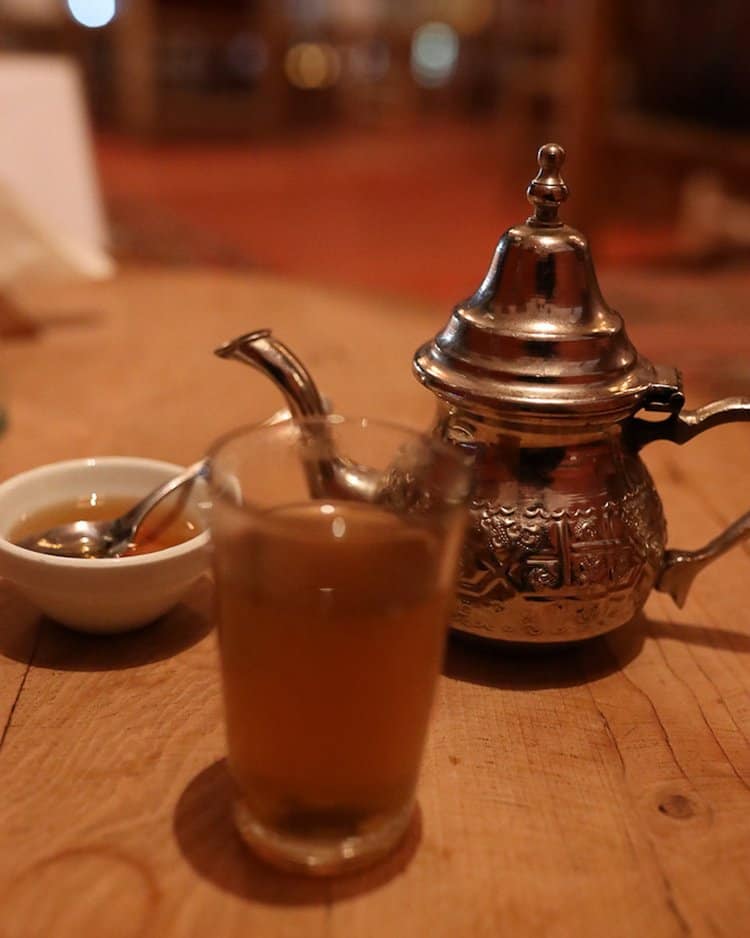
23. Get Ready for A Lot Of Mint tea! It’s Served With Every Meal
Mint tea is served with every meal in Morocco & Egypt, when I came back to the United States I felt weird without having it! There’s a special way Mint tea is served, and once you get it down you’ll impress all your Moroccan friends: First, dried mint and black tea leaves are soaked in hot water in a silver teapot. Then, a bunch of sugar is added to the pot, and the mixture is poured from up high (the rule is “4 fingers” height – I think that’s about 8 inches but the higher the more impressive it is).
And then you pour the tea from your cup back into the teapot and repeat this around 3 times. Apparently, this aerates the tea, and it makes the sugar frothy which is the desired quality (and also makes for a great show).

24. Be prepared To Wake Up Early For Prayer Call
In Islam call to prayer is done 5X a day, with the holy day being Friday. It usually only goes on for a few minutes, but on Fridays, the whole prayer service is broadcast depending on where you are. Even though I don’t know the language, I’ve always found the prayer calls to be very beautiful. Most restaurants, train stations, airports, etc will also have prayer rooms for people to meet the 5x a day quota if they so wish. There is no set time (from what I could tell) for the prayer calls – instead, they go at dawn, noon, mid-afternoon, sunset, and nightfall, and that changes throughout the year.
Tip: I never found the prayer calls to be so loud I couldn’t sleep through them, but I know some people do. If you’re a light sleeper I recommend bringing earbuds to Morocco since the earliest call is at sunrise.

25. Don’t Get Scammed!
Really! I LOVE Morocco but I hear of people getting scammed in the bigger cities like Marrakech and Fes all the time, and it just ruins their travel experience. I really only fell for a Tout once on my last trip, and I didn’t really fall I just didn’t have enough energy to tell him to leave me alone. I was trying to buy food for some cats and a tout on the street asked me what I was looking for.
I said I was going to buy food for the cats: “Mangia pour chat” (Which is half in Italian, not even French, but I was making eating hand motions to go along with it and he seemed to understand – gotta do what you gotta do!).
The guy saw where I was heading and pointed at the stall up the road I was already heading to, I said thanks and went on my way. It didn’t take long to realize he was following me there, and then once I got to the stall he spoke over me and was making a big show of ordering it for me, even though I didn’t need or ask him to.
For example, if The shopkeeper asked me how many items I wanted, I held up my fingers and said “cinq” (five in French) – and then the tout would make a big fuss of loudly asking me how many tins of cat food I wanted in English, and then translating that to French.
Again, without me asking him to.
In the end, he asked for payment. I said no. He didn’t actually help me do anything to deserve a payment.
Up until this moment, he was all nice and smiling, and then after this, he yelled “F**k you, fat woman!” In my face and then proceeded to yell it after me all the way back to my Riad!!!!
Don’t give money to these guys.
If you pay Touts you’re just supporting the practice, which hurts tourism in the area and gives foreigners a terrible idea of Morocco when really it’s a wonderful place full of amazing people.
Also, if you DO give the touts money, you’ll probably have the same result. Even if I had paid him we would have had the same argument, but this time it would have been over the amount. Just don’t pay these guys any mind.
If I were to be in that situation again I would have landed him a firm “La” (no in Arabic) and not accept any “assistance’ from him in the first place.
Katie Caf, founder of Katie Caf Travel, is a seasoned travel expert who has explored North, Central, and South America, Europe, Africa, and Asia for many years. Originally from New York, she shares travel insights from her experiences in the USA and around the world. Now residing in Bali, Katie specializes in Bali and Indonesia travel, aiming to assist her readers in traveling better and more frequently. Through her blog, she provides quality travel resources and firsthand accounts.
Leave a Reply Cancel reply
Your email address will not be published. Required fields are marked *
Save my name, email, and website in this browser for the next time I comment.
25 Essential Morocco Travel Tips, What To Know Before You Go!

25 Essential Morocco Travel Tips for Your Morocco Private Tour
Planning a Morocco Private Tour or Family Vacation? Curious to know more about Morocco? Our 25 Essential Morocco Travel Tips and Information Guide will answer all of your questions. Morocco is culturally diverse. Visiting Morocco will guarantee an encounter with ancient historic traditions, customs, architecture, monuments and sites that have permeated Moroccan society for centuries. Morocco is home to 36 million people and primarily a homogenous country. The populous shares the Islamic faith yet given the country’s rich history and Jewish past remains open and unified. You can anticipate a unique Morocco tour and up an up close Morocco travel experience engaging with a people who are devout, generous, hospitable and kind.
Your Morocco travel experience would not be complete with out a reference guide to answer some of the most important questions and provide travel tips.
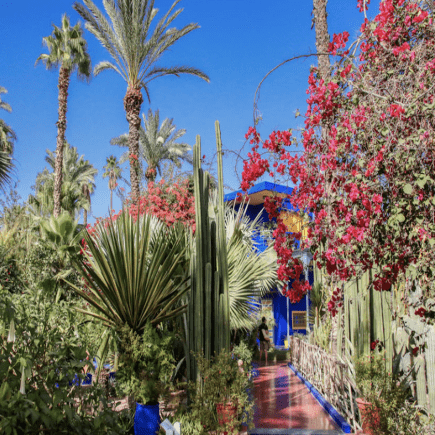
What is the Best Time to Travel to Morocco?
Morocco is situated on the far northwestern corner of Africa and has an expansive shoreline that stretches from the Atlantic Ocean to Gibraltar . The Best Time to Travel to Morocco should be ideally the considered by season. One of the best times to visit Morocco is spring or fall . Spring (April and May) and Fall (September and October) are perhaps the best overall time to take a Morocco Tour. Morocco has over 300 days of sunshine. During the peak summer months (June – Mid-September) it can get particularly hot. Temperatures in summer can reach as high as 120 degrees Fahrenheit. As a dry and temperate climate Morocco experiences very little humidity making the heat less intense. Moroccans typically take vacation time during summer months and typically head for the coast where it is cooler. Winters in Morocco (Mid-November – February) are typically mild and temperatures can reach down to 40 degrees Fahrenheit. In Morocco it often snows lighting during winter in some regions. The High Atlas region receives allot of snow therefore it is the perfect destination for skiing and enjoying other winter sports. Morocco has a summer climate in the south and in the mountains, as well as on the Mediterranean and Atlantic coasts. Winter can be perfect by day in the south, though desert nights can get very cold. If you’re planning to hike in the mountains, it’s best to keep to the months from April to October unless you have some experience in snow conditions.
What Languages are Spoken in Morocco?
Most Moroccans in the cities speak French as well as Arabic or the Moroccan dialect Darija. The French Protectorate was established in Morocco in 1912 and lasted until 1956. French remains the language of business whereas Darija is spoken in the street and at home, Darija itself is a mixture of languages including French words and Moroccans happily switch from one language to another in conversation. Spanish is spoken in the north and south, as there was also a Spanish protectorate. However there has been a marked increase in the number of young people speaking English as it is taught in schools. Those working in tourism will probably speak good English and the business centers of Casablanca and Tangiers also has more English speakers.
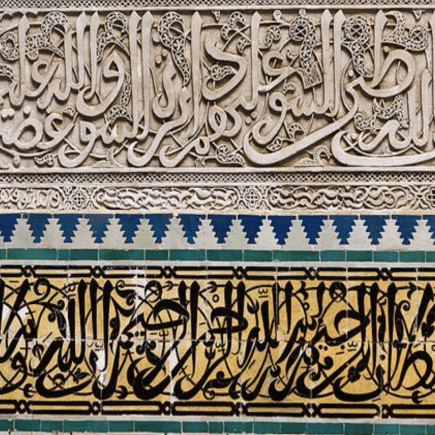
Morocco Travel Tips on Culture & Etiquette:
Moroccans in general are hospitable people. The Heritage of Moroccan people stemming from colonization and tourism has resulted in an open minded and easy going population. The country’s official religion and the majority of Moroccans are Muslims. The culture is made up of a combination of Berber and Arab, Moroccans who live peacefully together alongside a large expatriate population. The majority of Moroccan women wear a headscarf and very few wear a veil. It is recommended when traveling to Morocco to air on the conservative side and dress modestly. Wearing skimpy clothing, kissing and cuddling in public is not recommended and can be seen as a form of disrespect.
How should I Dress when traveling to Morocco:
Visitors to Morocco are often surprised about the range of ways that Moroccan women dress. Most dress modestly, in keeping with Islamic custom, many wearing the jellaba (a hooded, ankle length robe) and headscarf. In cities, many wear Western dress with or without a headscarf. You will see few burqas of the type associated with the Gulf region or Afghanistan. In order to avoid stares or unwanted attention, it is best for visitors also to dress modestly. Keep your swimwear for the beach and always cover at least your shoulders. Women will find their visit much more pleasant if they also avoid revealing necklines and cover up down to the knees. A scarf or pashmina is also handy for moments when you feel the need to conceal your head or shoulders from unwanted stares, the hot sun or over-zealous air conditioning. In the evenings in the winter months (and even more so in the mountains or the desert), sunny days become chilly nights and you will need to bring a sweater or even a jacket.
Travel Tips for Updating your Passport:
Make sure that as a traveler to Morocco you have a passport that will be valid for a further 6 months after you enter Morocco. We advise that you also carry an original or photocopy of your identification card or driver’s license. Passports can be renewed at your local consulate or passport office. For more information about travel tips on updating your passport to visit Morocco check with the Moroccan Embassy in your home city.
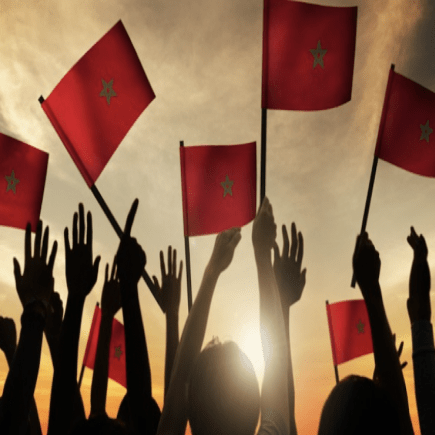
Morocco Travel Safety Tips:
Your national government will provide travel and security advice for visitors intending to visit Morocco. In general, the risk of international terrorism is no greater than in major cities of Europe or the US. Like in those cities, there is a risk of petty theft. Morocco is a developing country and the wealth gap between local people and tourists can drive a small minority to crime. Be sure to exercise the usual precautions on your visit regarding cash, jewelry and other valuables. Do not carry them around in large or visible quantities and make sure you are aware of the potential for pickpockets in crowds.
Overall, Morocco is one of the safest countries in Africa or the Middle East and North Africa region. You will be welcomed with a smile and great hospitality by virtual strangers. Enjoy your trip!
Morocco Travel Health Tips:
Morocco one of the few countries in Africa where it is not necessary to get vaccinations in order to travel. Nevertheless, if you have not received Typhoid or Hepatitis A shot in the past, it is advisable to get them. Please also inquire with your doctor to make sure you are up to date with your polio and tetanus vaccines. If you are from a country where cholera is prevalent, an anti- cholera vaccination certificate may be required. Morocco is a country where your health is not in danger when you travel. As long as you follow Morocco Travel Tips with regards to traveling safely in our About Morocco section the worst you can anticipate experiencing is an upset stomach or dryness, due to weather conditions, if you have sensitive skin.
Morocco Travel Tips on Gratuity:
Gratuity is a gift of money that is granted for service or a show of appreciate given without claim or demand. Gratuity is one of the best ways you can demonstrate appreciation for the services provided to others. Gratuity is part of Moroccan culture and appreciated by those providing a service. During a Morocco Tour what is generally recommended is to provide gratuity at restaurants, at Boutique Hotels and Riads, to drivers, licensed historical guides and also women servicing at public restrooms. It is a considerate way to thank those providing a service to you as a traveler. Our recommended gratuity is outlined below.
Restaurants : 15% of the Total Bill
Restrooms : 5 Dirham Coin (0.70 Cents)
Licensed Historical Guides : 50/ $60 Per Person/ Per Day
Drivers: $35-$40 Per Person/ Per Day
Morocco Private Tour Gratuity: The total gratuity offered to those hosting you on a private or group tour should be approximately 10% of the rate paid to your Morocco Travel Agency.
Where to I Exchange Money in Morocco?
Moroccan Dirhams are necessary to travel in Morocco. US Dollars and Euros are widely accepted in major hotels, but only very occasionally with shopkeepers. Otherwise, we recommended that you carry Moroccan Dirhams.
The Bureaux de Change can be found in most Moroccan banks, major hotels, airports, and ports. Most currencies are accepted, including US Dollars, Euros, and British Pounds, however others, including the Australian Dollar, are not accepted. Check with your consulate or local bank to see if your currency is accepted for exchange in Morocco.
ATM machines are the quickest and easiest way to obtain Moroccan Dirhams. ATM’s accept most major debit and credit cards. Depending on your bank, you may be able to withdraw up to 4,000 Dirhams (about $500 US Dollars) per day. Contact your bank for your daily withdrawal limits.
BMCE and Credit du Maroc (CDM) do offer cash advances on Visa and MasterCard, however this process may take several hours to complete and is also quite costly.
Exchange your cash when you arrive at the airport bank exchange, or use local banks and currency exchanges in the cities and medinas as you travel. The majority of cities have banks where you can obtain money 24 hours a day from your bankcard or credit card. Bank exchanges are also located near banks and most currencies are accepted with favorable exchange rates available. Use ATM machines at the airport and in metropolitan areas and medina’s, but they are rare in rural areas. When traveling outside of the cities be prepared to have enough cash, as ATM machines are not always an option.
What is the Water Situation in Morocco?
Drink only bottled water when in Morocco and avoid ice cubes made from tap water. Be sure to brush your teeth with bottled water, too.
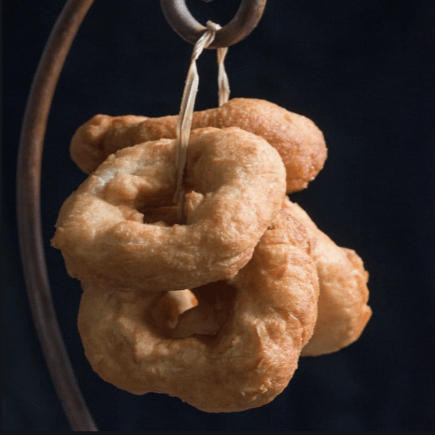
Can I Eat Street Food in Morocco?
Moroccan street food is safe to eat provided that the meat is fully cooked and vegetables and fruits are peeled. We particularly recommend discovering street food on a pre-arranged Moroccan Food Tour in Fes or Marrakech. This will enable you to enjoy local eats with little concern.
What Type of Internet Access in Morocco Should I Anticipate:
Internet access can be readily found at internet cafes and in hotel lobbies. Your riad and hotels will all have Wifi. Given you will most likely be staying in boutique properties that are restored palaces or villas during your trip you may find that Wifi is stronger in public areas. Occasionally, you can find free wi-fi in public places. While it is not easy to find internet access in rural areas, a smartphone with the proper plan will access the internet almost everywhere.
Morocco Travel Tips on Coverage of Mobile and Cell Phones:
Cell phone coverage is excellent in Moroccan metropolitan areas, with coverage in rural areas being more erratic. Check with your cell phone plan before you leave to make sure you have global coverage.
If you would like to enjoy using a Moroccan Mobile phone during your trip, then we recommend you purchase a cell phone SIM chip at the airport or request your driver take you to the local provider, Maroc Telecome. You will then be able to obtain a SIM chip for approximately $60 USA dollars and cards ranging from 100 MAD – 200 MAD ($12 – $25 of which will each provide you with approximately 10 + minutes of speaking time to the USA or other foreign countries.
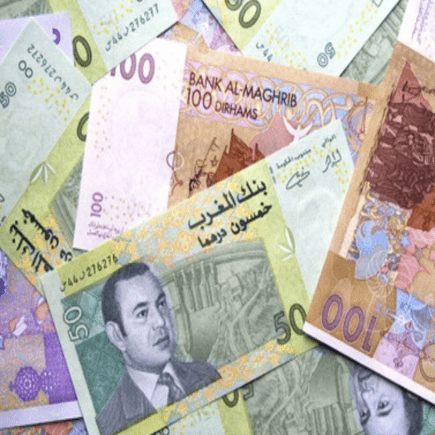
Morocco Travel Tips on Banks and Money Exchange:
The main banks in Morocco are Banque Marocaine du Commercial (BMCE), Banque Marocaine due Commerce et de L’Industrie (BMCI), Banque Commercial du Maroc (BCM), Banque Populaire, and Credit du Maroc (CDM).
Banking hours in Morocco are from 8:15am – 3:45pm, however during Ramadan the hours are reduced to 9:00am – 2:00pm.
Where and How to Exchange Currency in Morocco:
BMCE and Credit du Maroc (CDM) do offer cash advances on Visa and Mastercard, however this process may take several hours to complete and is also quite costly.
We recommend on arrival that you bring with you approximately $500 Per Person for meals, gratuity and incidentals. You can then continue to visit ATM machines for additional cash or use credit cards.
Will I have ATM Access in Morocco?
Use ATM machines at the airport and in metropolitan areas and medinas, but they are rare in rural areas. When traveling outside of the cities be prepared to have enough cash, as ATM machines are not always an option.
Can I Use Credit Cards in Morocco:?
Major credit cards are welcomed at the larger stores, hotels, and restaurants, but use cash at the smaller shops and stalls.
Master Card & Visa are widely accepted. American Express is accepted only at certain locations. We advise you to bring more than one credit card with you.
What are the Foods to Avoid when traveling to Morocco?
Do not drink the tap water while in Morocco and avoid ice cubes made from tap water. Be sure to brush your teeth with bottled water, too.
Morocco Travel Tips on Doctors:
You can find doctors in the major cities in both the public and private sector. Please consider acquiring traveler’s insurance for your trip if your regular health insurance does not cover you overseas. If you are traveling to Morocco on a Private Tour, then consult your travel agency as they will be able to offer a complete list of authorized and approved public and private hospitals.
What is the Climate in Morocco?
Morocco has a Mediterranean climate along the coast, with more extreme temperatures and weather in the mountains and desert. Temperatures are high in the summer, mild in the spring and fall, and cool in the winter.
Can I Take Photographs in Morocco?
Most Moroccan do not enjoy being photographed by strangers. Some have recognized that travelers like to capture the different, exotic and attractive aspects of Moroccan life on film and will sell the right to photograph them. It is your choice whether you go along with this. In any case, try to be discrete in your photography (a phone camera is much less obvious than a large SLR) and ask if you would like to take a direct portrait. Don’t be surprised if your request is refused, and if so, please respect this decision. At times people will request for a small fee such as 10 Moroccan Dirhams ($1.00) if you want an up close photograph. It is best to request permission before taking a photograph. Given Morocco is a moderate, Muslim country, women in particular within rural communities and many in cities do not like to be photographed. For the best results when traveling to Morocco whether you are a novice or a professional photographer it is best to ask your subject first or have your private guide assist.
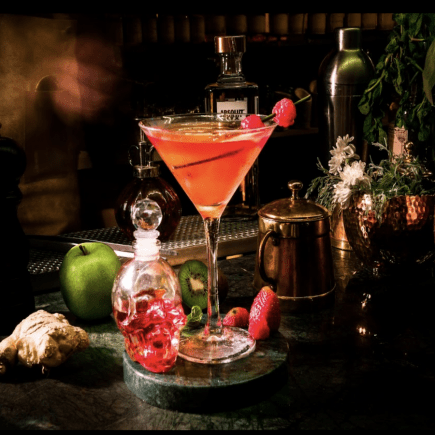
Can I Consume Alcohol in Morocco:
Alcohol in Morocco is available in the majority of touristic restaurants, at most boutique riads and hotels along with local bars. Wine and beer can be easily purchased at supermarkets and at several of the local wine markets in Morocco’s Imperial cities.
Although most Moroccans claim they do not drink alcohol due to religious prohibitions both locals and foreigners consume much of the country’s production of wine and beer. Morocco provides a home to groups of ex-patriots and foreigners from France, England, America, Spain, Germany and Italy who enjoy healthy alcohol consumption. The most popular beers made and consumed in Morocco are Casablanca and Special.
Morocco has been a leading wine producer for several years and its bold red and white grapes have become popular among the French, Americans and within Modern Moroccan households. When the French colonized Morocco, like the Romans centuries before them, they realized Morocco’s possibility of being a wine country. The French developed the Moroccan Imperial City of Meknès into a wine region. Today 30,000 acres of land in Morocco contribute to wine production and Morocco sells over 40 million bottles within Morocco and abroad. Moroccan wine is in a state of revival and wine producers are taking advantage of the country’s sunny, mild temperate climate, and high altitudes. Wine Tours are also available at designated wineries in the region of Meknes, Volubilis and Essaouira.
Morocco Travel Tips on Public Holidays:
Moroccans celebrate Muslim holidays and national holidays throughout the country, and more local festivals are held throughout the year in the Imperial Cities and small villages. The dates of religious holidays are based upon the lunar calendar and change every year. Plan your trip to Morocco during festivals and holidays for a real inside look into Moroccan daily life. Celebrations ranging from rural harvest feasts to music and film festivals in Morocco’s cultural centers demonstrate Morocco’s commitment to sustainable agricultural and artistic achievement. (Please note that the dates for Muslim holidays change annually as they are based on the lunar calendar. The following dates are accurate for 2019.)
- New Year’s Day is on Tuesday, January 01
- Independence Manifesto Day is on Friday, January 11
- Milad un Nabi is on Thursday, January 24
- Labor Day is on Wednesday, May 01
- Throne Day is on Tuesday, July 30
- Eid al-Fitr is on Thursday, August 08
- Oued Ed-Dahab Day is on Wednesday, August 14
- Revolution Day Morocco is on Tuesday, August 20
- King Mohammed IV’s Birthday is on Wednesday, August 21
- Eid al-Adha is on Tuesday, October 15
- Fatih Muharram (Islamic New Year) is on Monday, November 04
- Green March Day is on Wednesday, November 06
- Independence Day Morocco is on Monday, November 18
Morocco Travel Tips when Visiting During Ramadan:
Ramadan, considered as the most important holiday in Islam, happens on the ninth month of the twelve-month lunar calendar followed in Islam. During Ramadan all Muslims fast from sunrise to sunset for one month, only eating after sundown. Non-Muslims are not expected to observe Ramadan, but should be sensitive about not breaking the fast in public. As a Morocco Traveler it is important to respect those fasting and make best efforts to not eat in public places such as city and medina streets. Dining in touristic restaurants and those open to Westerners is advised. Drinking water and other beverages in public is also not advised for reasons of respect. If you are visiting Morocco during the summer, which is the warmest season, it is advised to make best efforts to drink water and beverages discretely.
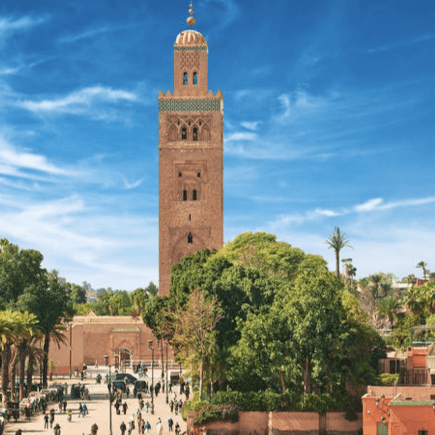
Can I Visit a Mosque in Morocco?
Mosques are closed to non-believers but you can visit the impressive Hassan II mosque in Casablanca, the Berber mosque at Tin Mel outside Marrakech on the way to Ouarzazate, the former Islamic college the Medersa Ben Youssef in the Marrakech Medina and the old Medersas in Fés Bali, the Bou Inania and the El Attarine. These sites will give you some idea of the glories of Moroccan Islamic architecture.

Morocco Travel Tips on Charity for Elderly & Children:
As a foreigner traveling in a Muslim country, following the five tenants of Islam- and offering a small amount of charity is an option but not required. If you wish to offer charity to an elderly person, to children or a poor person on the street that moves your heart, please consider the following:
Giving anywhere between15 -20 Dirhams ($2.00 – $2.50) is a considered gracious and will not place a dent in your wallet but perhaps leave you with an experience in your heart. Sometimes the reciprocity you may receive as a result of giving a small amount of charity in a Muslim country like Morocco comes in the form of a big smile, a hand shake, an invitation for tea or even a hug from the recipient.
Follow Travel Exploration Morocco for Travel Tips and Information about Visiting Morocco
45 Morocco Packing List Essentials: What to Bring
Agafay desert luxury glamping and lodge experience.
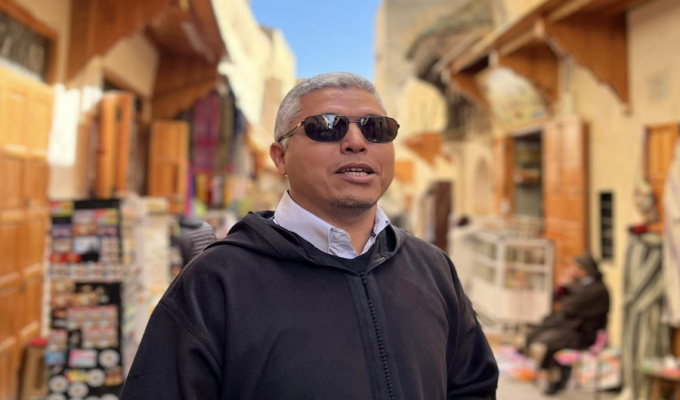
Top 5 Reasons to Discover Morocco on a Luxury Tour with Private Guides
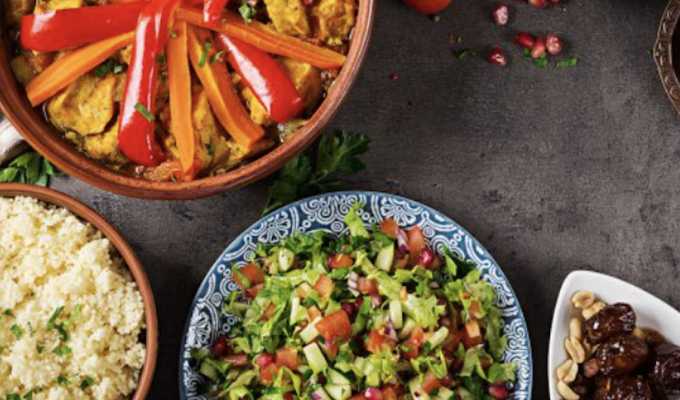
Top 10 Morocco Kosher Restaurants – Where to Dine
Merzouga gateway to morocco’s sahara desert, your morocco tour guide.
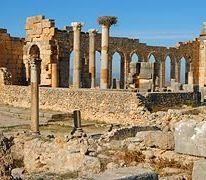
Absolute Morocco, Visit the Imperial Cities of Marrakech, Fes, Meknes & Ancient Kasbahs in Ouarzazate; Your Morocco Travel Guide
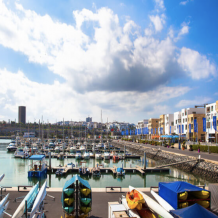
Salé, Rabat’s Sister City Is On The Rise
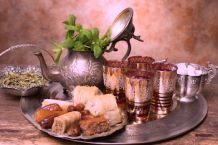
Tea In The Sahara – Morocco’s Berber Mint Recipe

Travel Fes: A UNESCO World Heritage Site

Getty Images

Check out this year's Best in Travel winners
A country of dazzling diversity, Morocco has epic mountains, sweeping deserts and ancient cities, and it greets travelers with warm hospitality and the perfect glass of mint tea.
Best Time to Visit
Best places to visit, leave the planning to a local expert.
Experience the real Morocco. Let a local expert handle the planning for you.
Attractions
Must-see attractions.
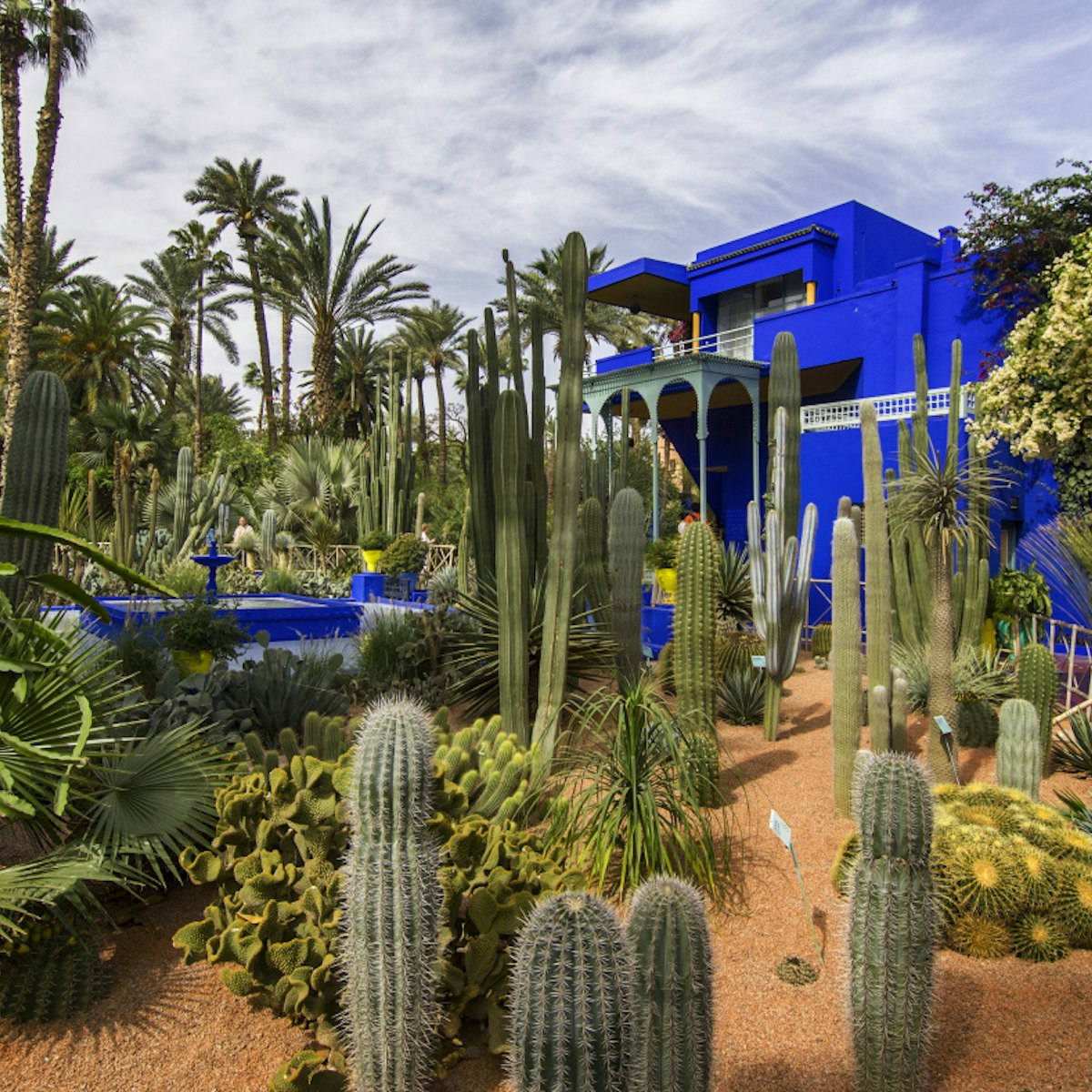
Jardin Majorelle
Gueliz & Ville Nouvelle
French fashion designer Yves Saint Laurent and his partner Pierre Bergé bought Jardin Majorelle in 1980 to preserve the vision of its original owner,…
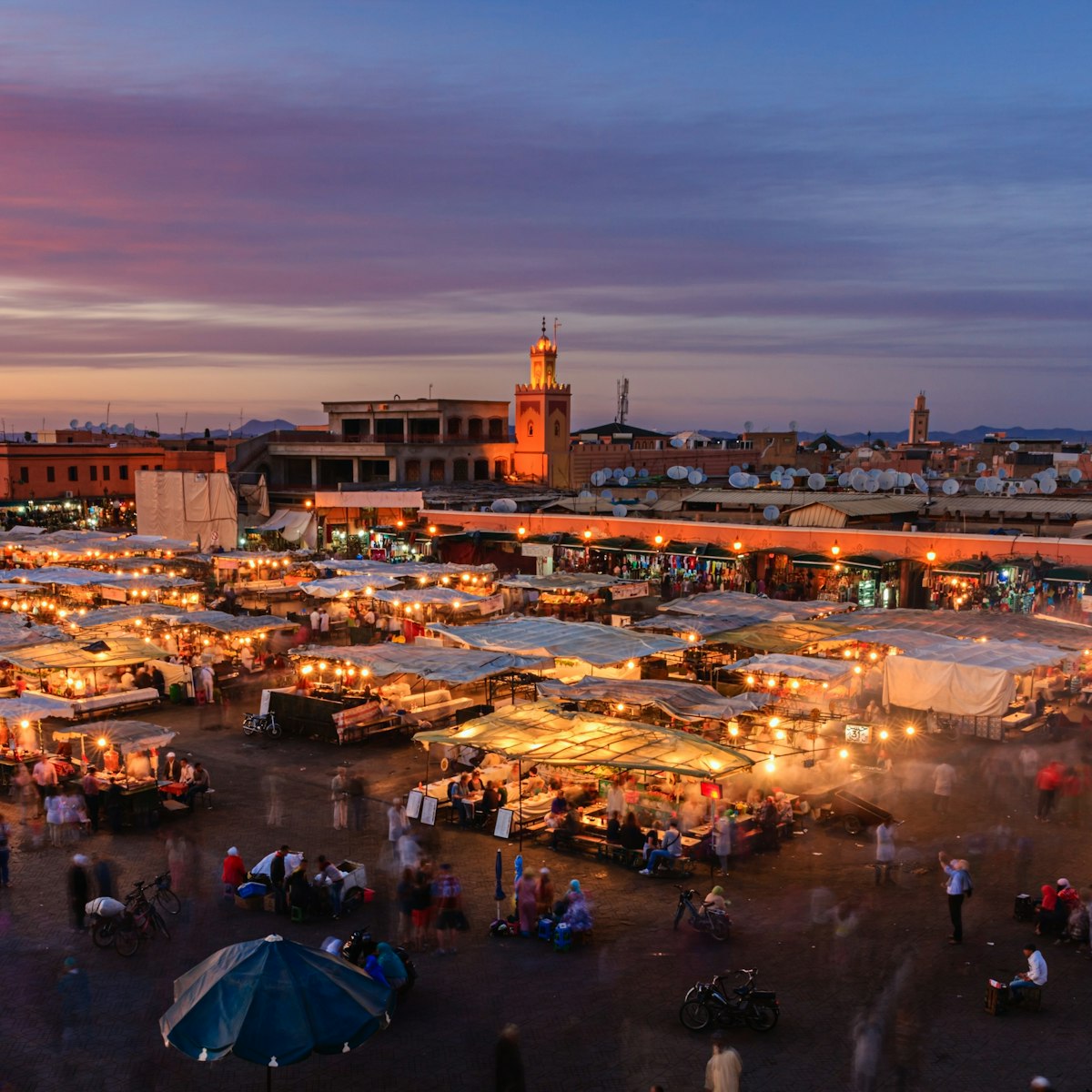
Djemaa El Fna
Roll up, roll up for the greatest show on earth. Everywhere you look in Djemaa El Fna, Marrakesh’s main square (pronounced "jema" – the "d" is silent),…
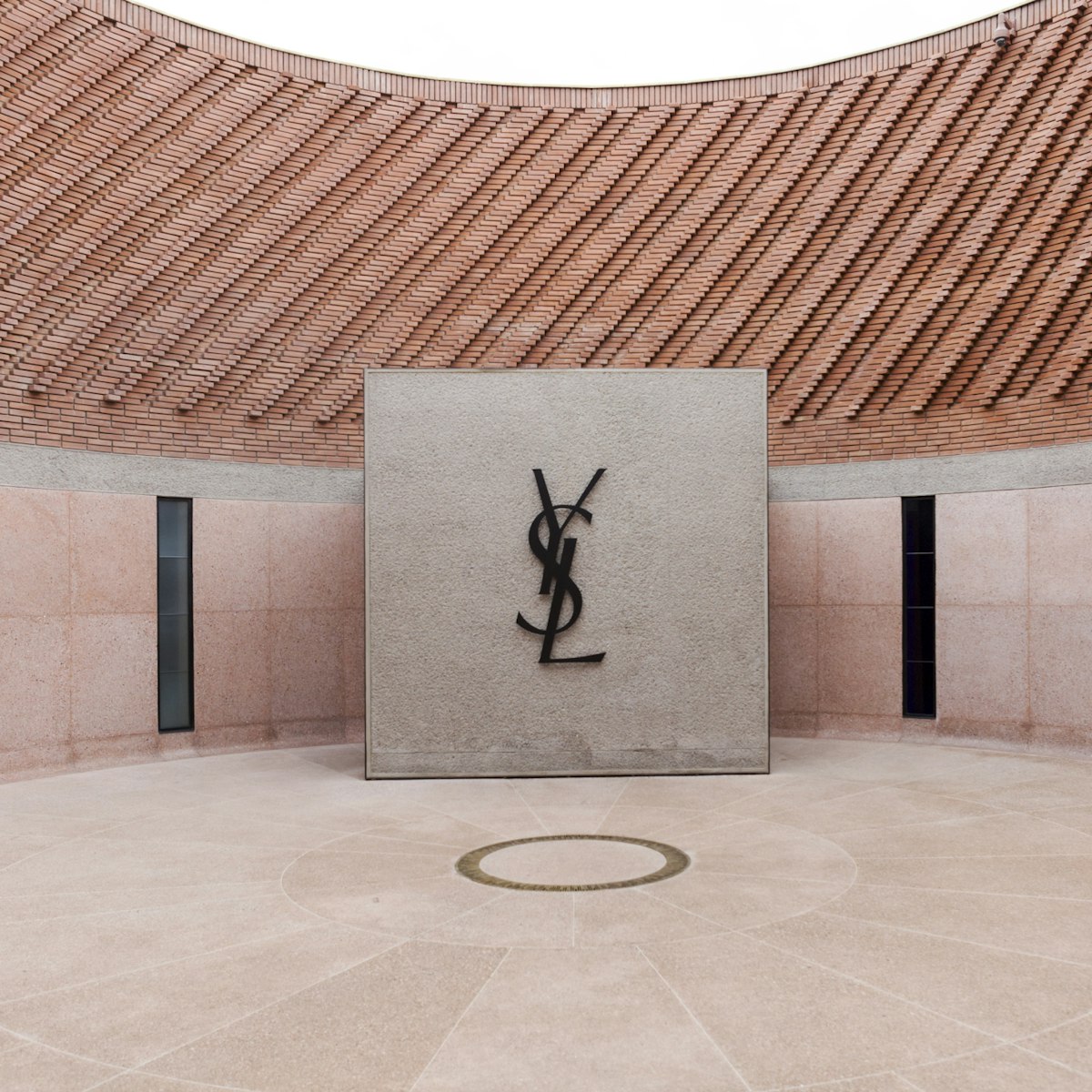
Musée Yves Saint Laurent
This captivating museum, opened in 2017, showcases finely selected collections of haute couture clothing and accessories that span 40 years of creative…
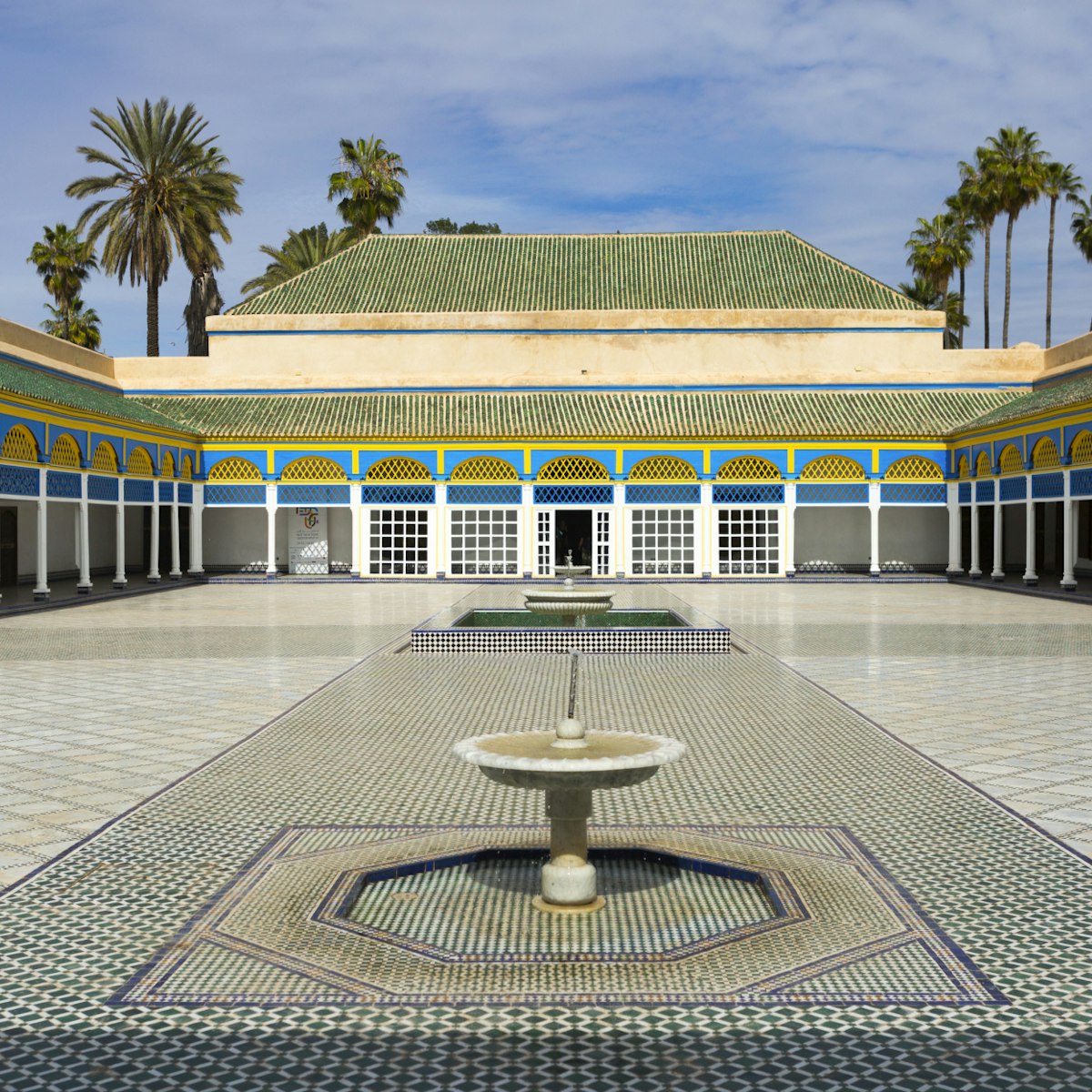
Bahia Palace
La Bahia (The Beautiful) is an 8000-sq-metre, floor-to-ceiling extravagance of intricate marquetry, plasterwork and zouak (painted wood), and certainly…
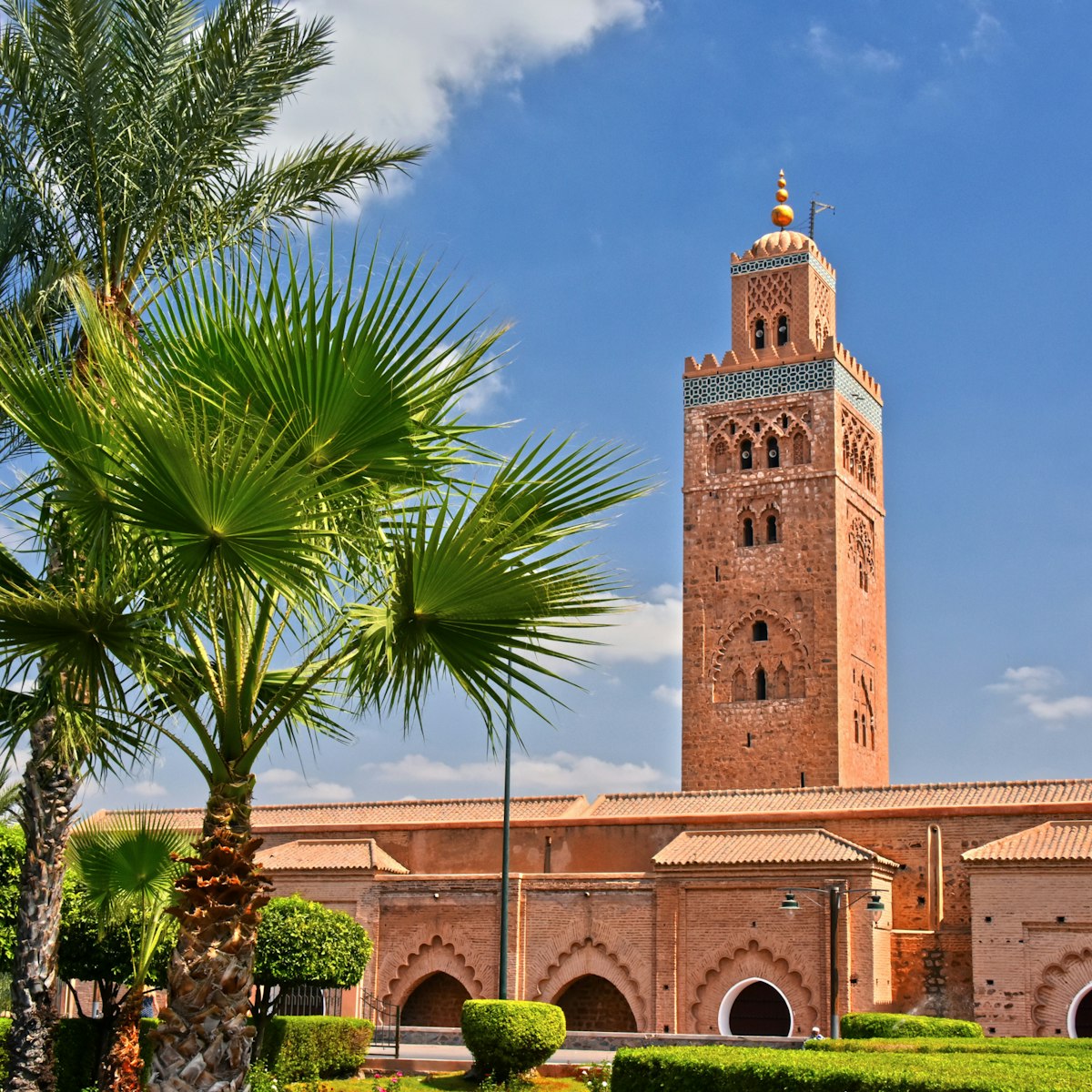
Koutoubia Mosque
Five times a day, one voice rises above the din of Djemaa El Fna as the muezzin calls the faithful to prayer from the Koutoubia Mosque. The mosque's…
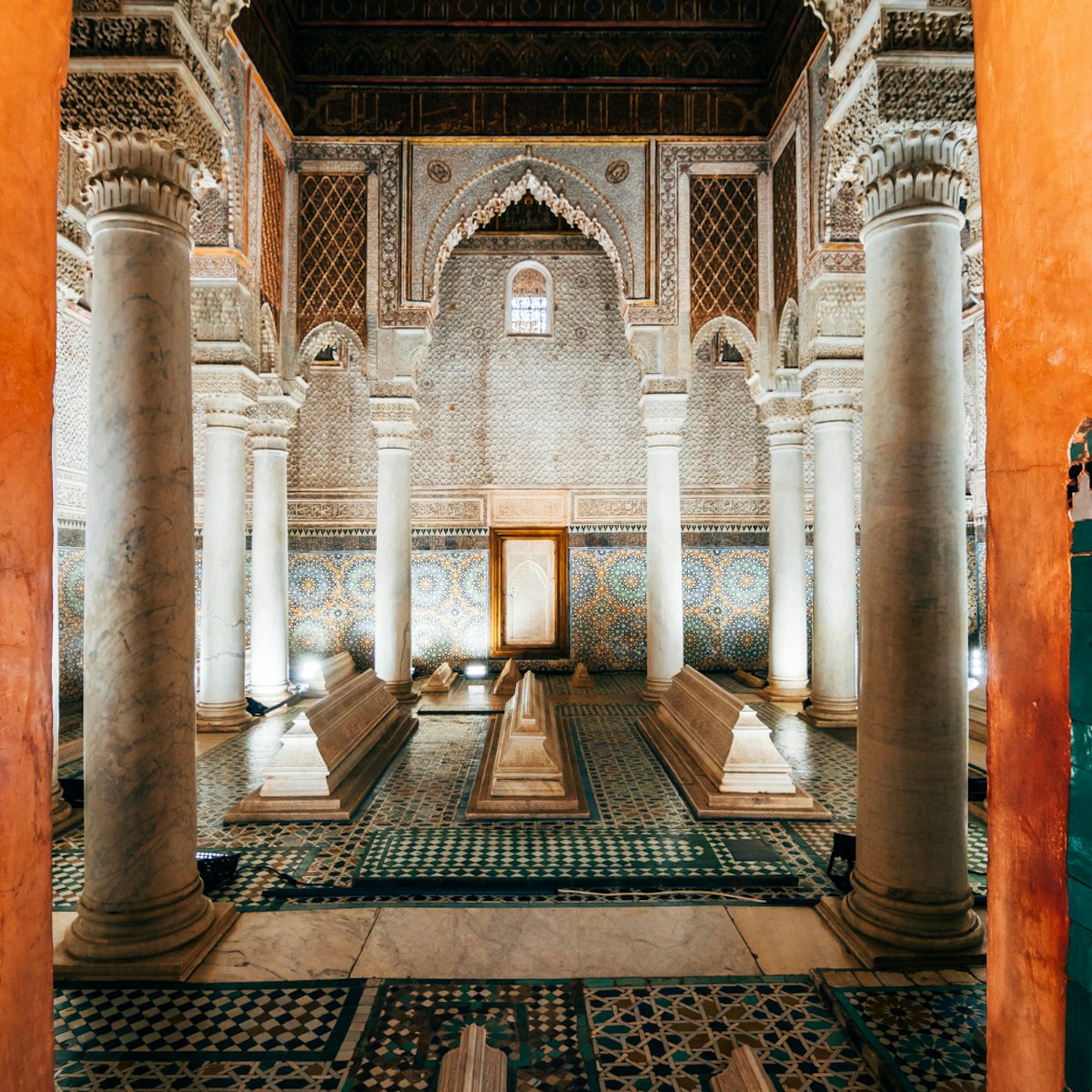
Saadian Tombs
Saadian Sultan Ahmed Al Mansour Ed Dahbi was just as extravagant in death as he was in life. After the "golden king" built Badia Palace in the 16th…
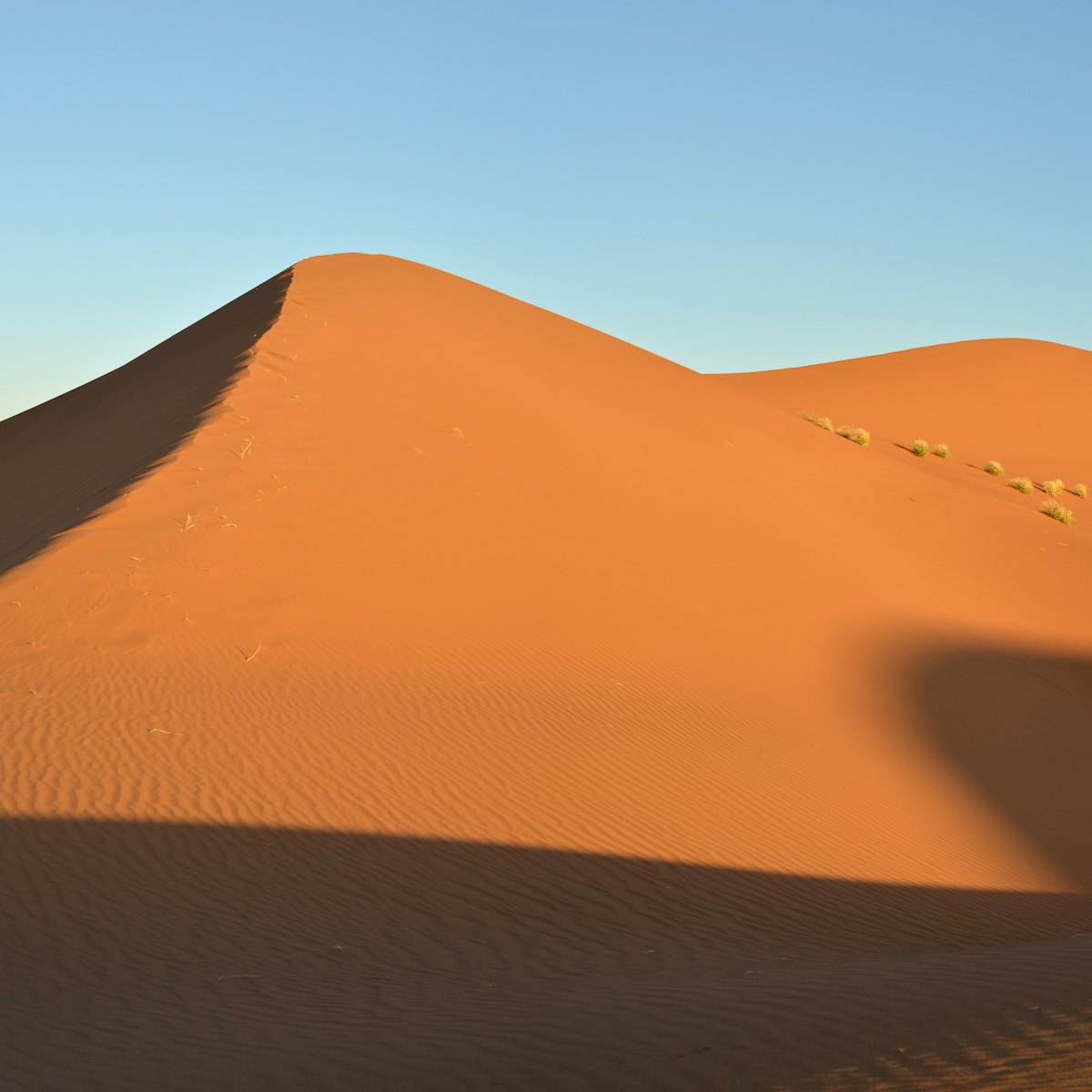
Erg Chigaga
Draa Valley
The area's star attraction is the misnamed Erg Chigaga, not a single dune (erg) but an incredible stretch of golden sand sea some 56km southwest of M…

Maison Traditionnelle
Anti Atlas Mountains
The 3-storey granite, palm and argan house, some 400 years old, was inhabited by 20 family members – three generations – until 1982. The owner, Mohammed,…
Top picks from our travel experts
12 of the best things to do in morocco.
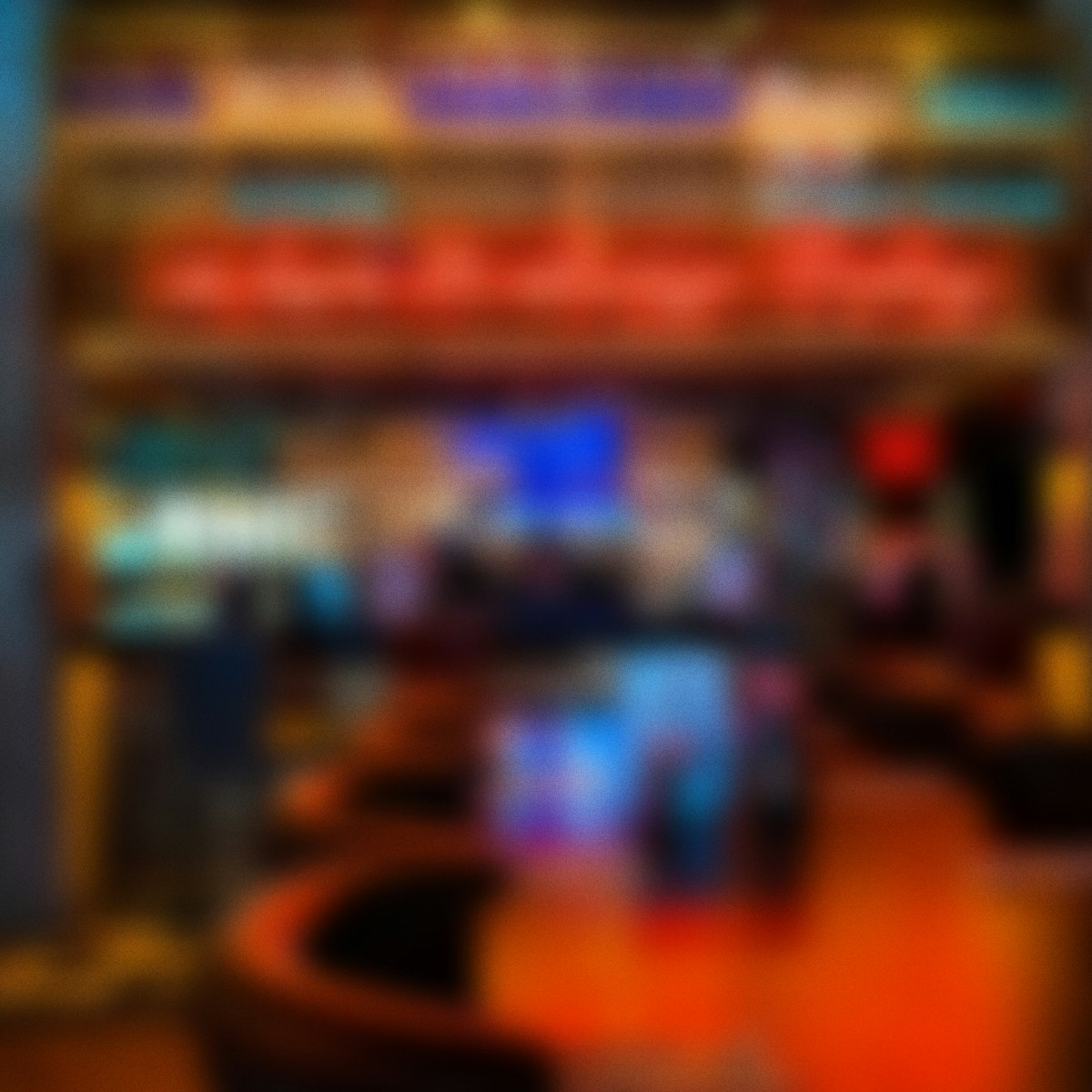
A 10-minute walk west from the medina is this beloved sea-facing cafe with what many locals consider Tangier's best view. Opened in 1921, Cafe Hafa mainly…

Main Post Office
One of the iconic neo-Moorish buildings around this square, La Poste is the work of Adrien Laforgue who took his inspiration from the Grand'Poste of…

Place Mohammed V
This perpetually busy square is surrounded by striking public buildings, such as the Wilaya and its clock tower and the Courts of Justice, resplendent…
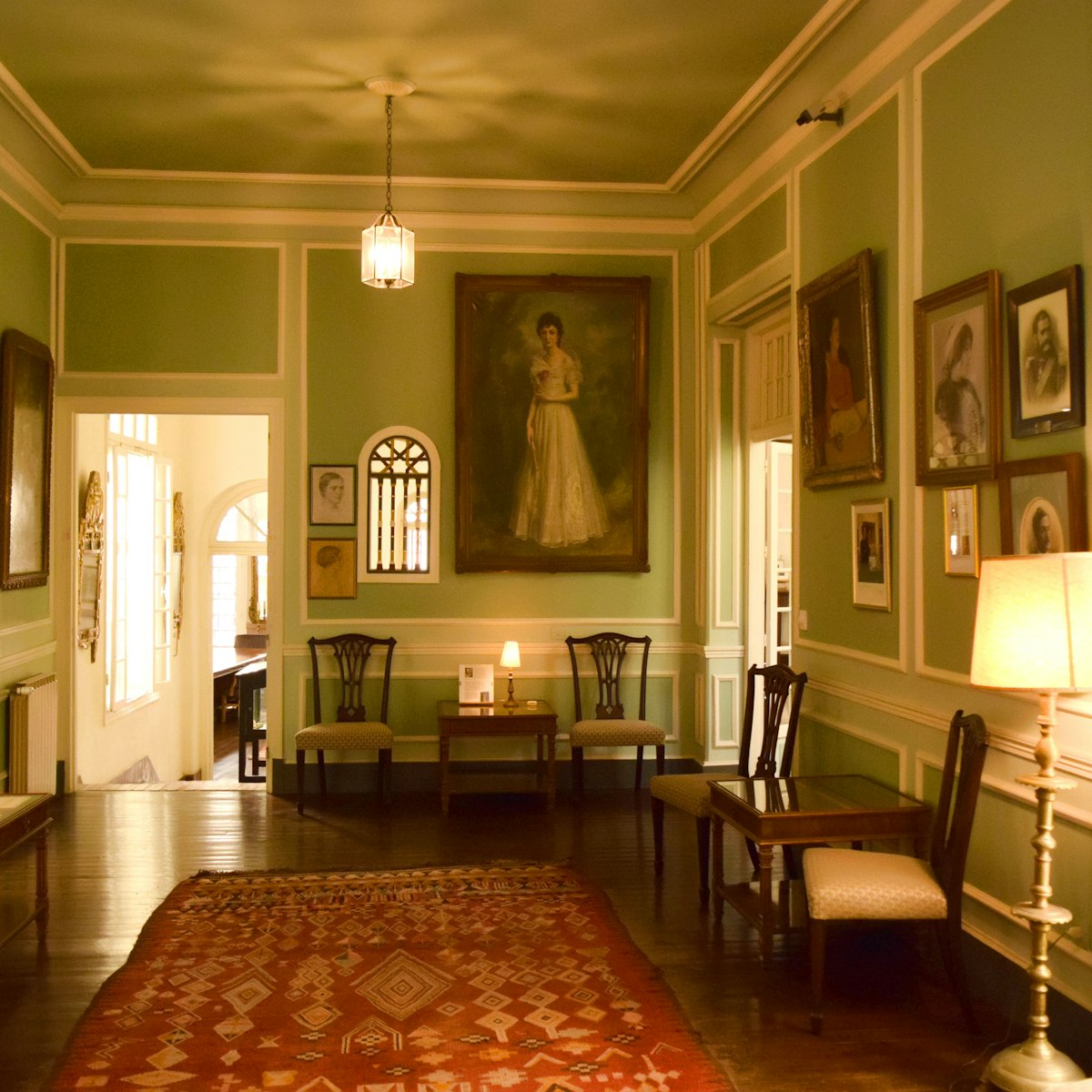
Tangier American Legation Museum
This museum, in an elegant five-storey mansion, is a must-see: Morocco was the first country to recognise the United States by opening its ports to the…
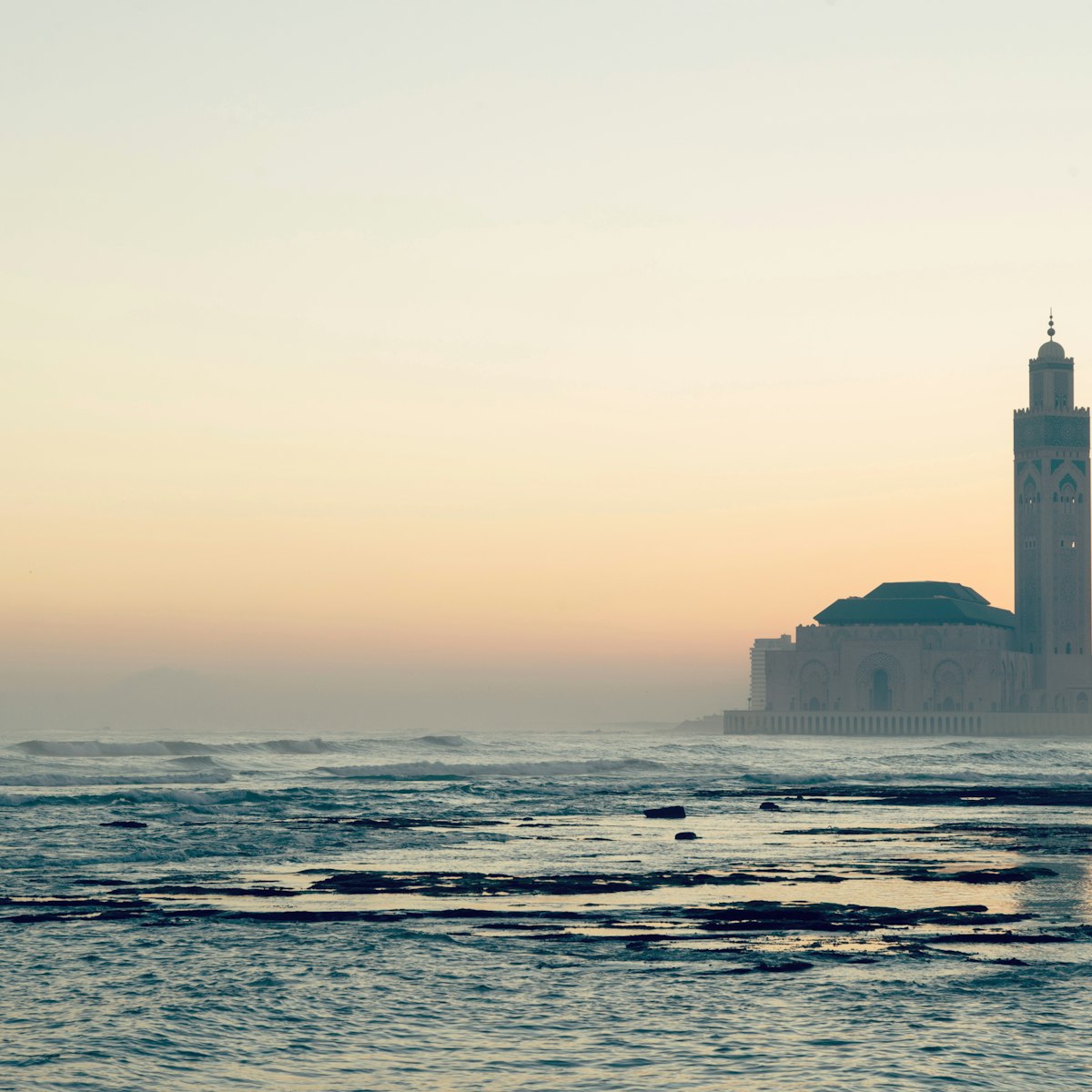
Hassan II Mosque
This opulent mosque, built at enormous expense, is set on an outcrop jutting over the ocean with a 210m-tall minaret that's a city landmark. It's a…

Kasbah Amridil
One of Morocco’s grandest kasbahs, this 17th-century marvel once appeared on the Dh50 note. Signposted just a few hundred metres from the main road, this…
Planning Tools
Expert guidance to help you plan your trip.
Best Things to Do
Discover the best things to do in Morocco, from mountain to desert, city to coast.
Things to Know
Ready to weave your way through the markets and medinas? Here are 18 tips for what you should know before you go to Morocco.
Transportation
From bustling cities and busy ports to remote mountains and deserts, here's how to get around magnificent Morocco.
Visa Requirements
Find out the visa requirements for visiting Morocco, including whether you can visit the country visa-free and how long tourists are allowed to stay.
Money and Costs
Morocco offers excellent value for travelers of all budgets. Here are our top tips to make your money go further.
Best Road Trips
Morocco's undulating roads and breathtaking scenery provide some incredible road trip opportunities. Here are five of our favorites.
Traveling with Kids
From theme parks to safaris, there are plenty of fun things to do in Morocco with kids.
Plan with a local
Experience the real Morocco
Let a local expert craft your dream trip.
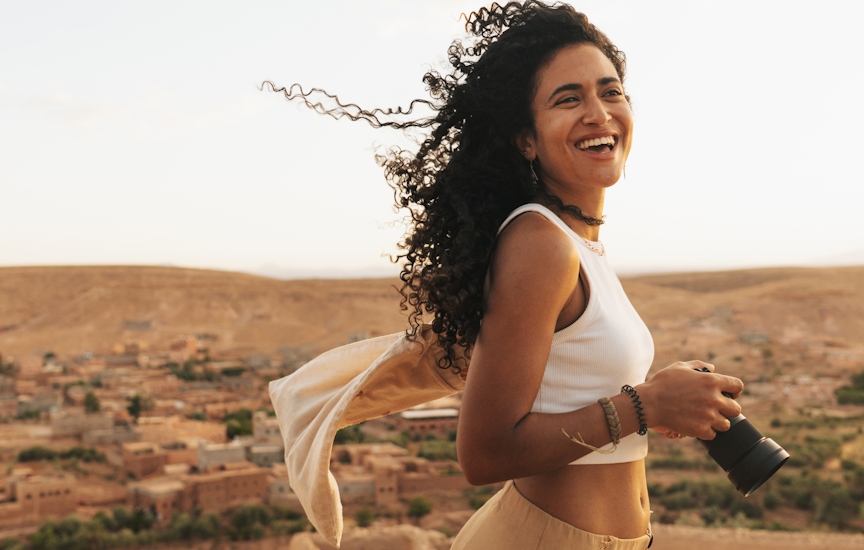
Latest stories from Morocco
Filter by interest:
- All Interests
- Adventure Travel
- Art & Culture
- Beaches, Coasts & Islands
- Food & Drink
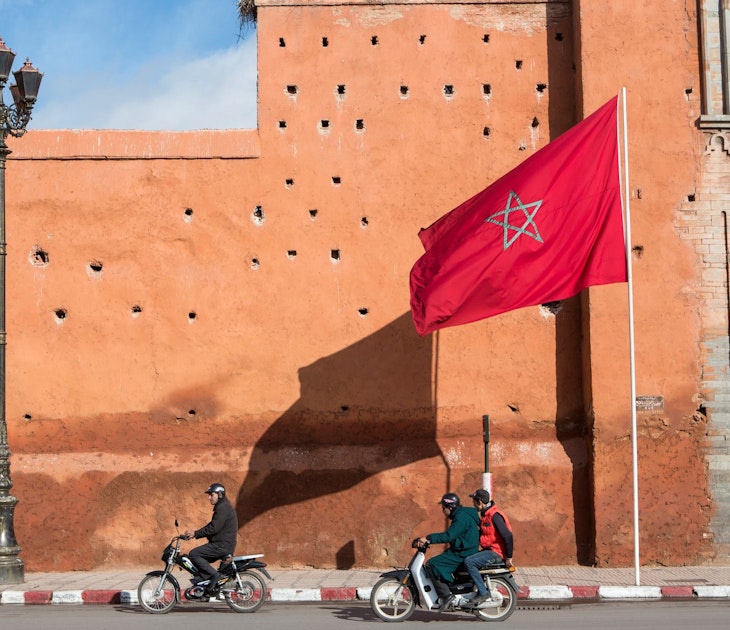
Mar 29, 2024 • 9 min read
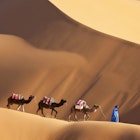
Mar 11, 2024 • 5 min read
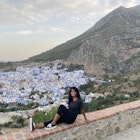
Jan 17, 2024 • 6 min read
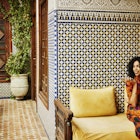
Oct 15, 2023 • 7 min read
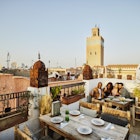
Oct 11, 2023 • 7 min read
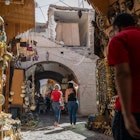
Oct 3, 2023 • 4 min read
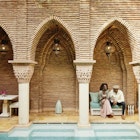
Sep 14, 2023 • 3 min read
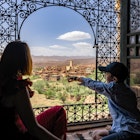
Sep 12, 2023 • 8 min read
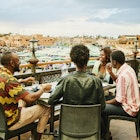
Aug 22, 2023 • 9 min read
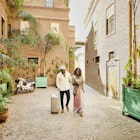
Aug 21, 2023 • 5 min read
in partnership with getyourguide
Book popular activities in Morocco
Purchase our award-winning guidebooks.
Get to the heart of Morocco with one of our in-depth, award-winning guidebooks, covering maps, itineraries, and expert guidance.
Morocco and beyond
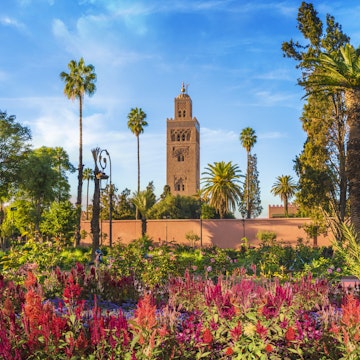
- Skip to primary navigation
- Skip to main content
- Skip to primary sidebar
- Skip to footer

The Opinionated Travelogue of a Photo Maniac
- Middle East
- North America
- South America
- Pacific Islands
- FOOD & WINE
- TRAVEL GUIDES
- TRAVEL RESOURCES
- Rants & Raves
- Travel Blogger Interviews
- Contact Form
- Privacy Policy
- Featured Elsewhere
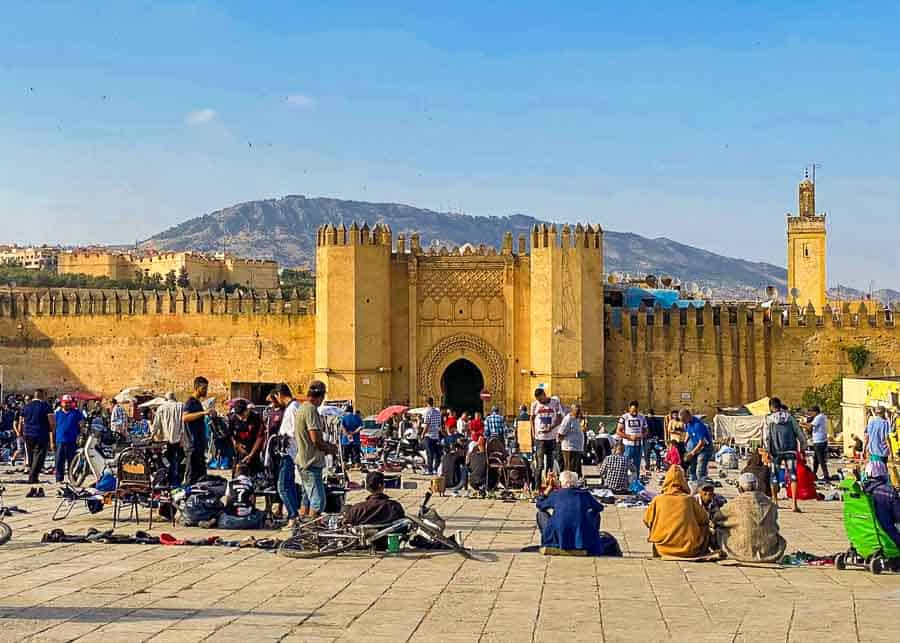
All You Should Know Before Visiting Morocco – Travel Tips & Advice
Last Modified: July 3, 2023 // by Anda // 12 Comments
Morocco is one of the most magical, yet challenging places I have ever visited. It’s a rough and tumble country that has to be accepted on its own terms. If you don’t understand its culture, you won’t be able to enjoy it. Visiting Morocco can be both amazing and chaotic, which is why I believe it’s important to get as much information as you can before you travel there.
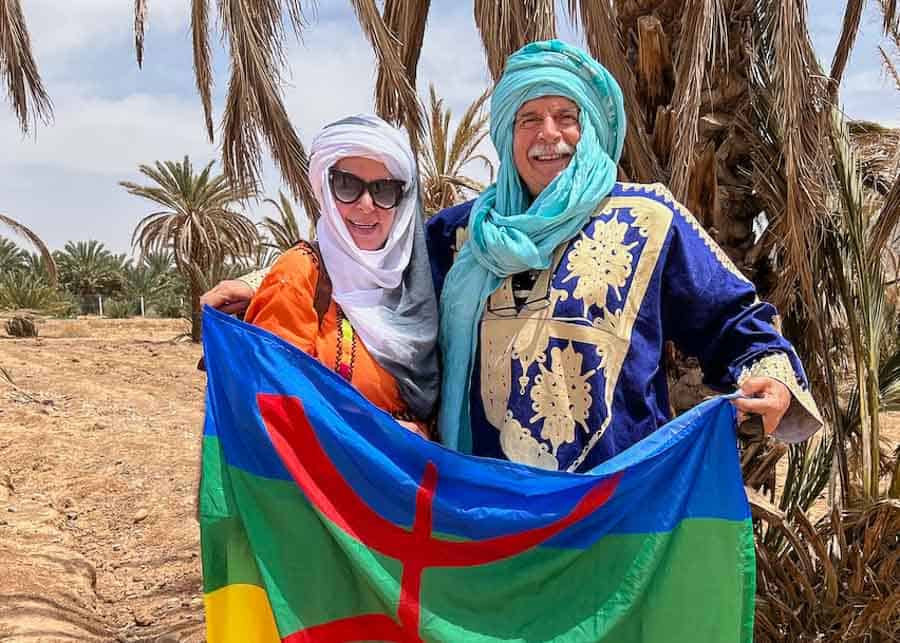
Located in North Africa, at the crossroads of three worlds – Mediterranean, Arab and African – Morocco is a country of great diversity. Here you’ll find the gorgeous coastlines, steep mountains, green valleys, and sweeping deserts. You’ll also find ancient cities, old Medinas, impressive Kasbahs, as well as European-inspired cites with modern architecture. The country’s culture is a blend of Arab, Berber, European and African influences.
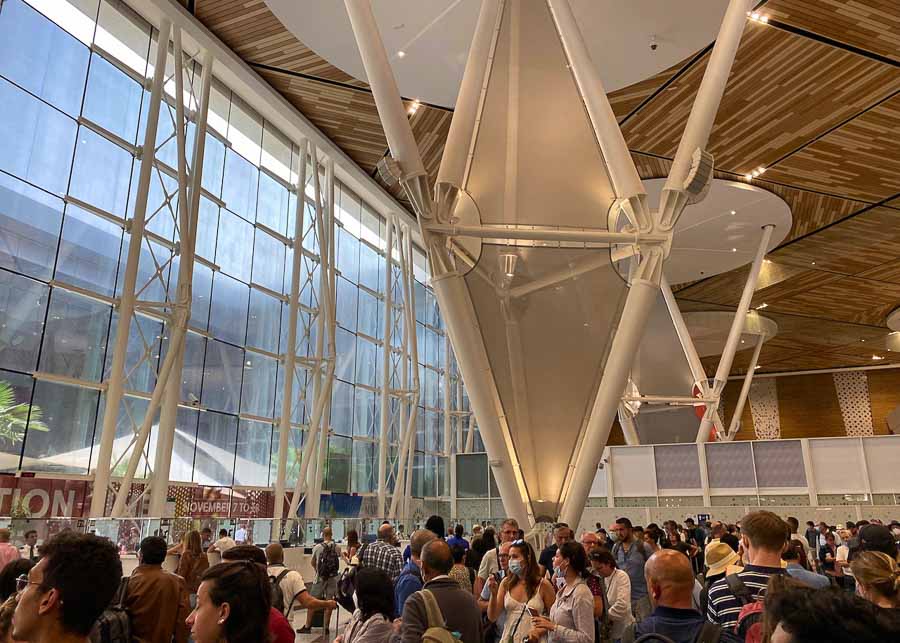
Visiting Morocco will undoubtedly broaden your horizon and enrich your travel experience, but it will also be challenging. You’ll get in contact with a society and an environment which may be very unfamiliar to you, so you’ll often have to step outside of your comfort zone.
Table of Contents
Is Morocco Safe to Visit?
When should you visit morocco, how to get around when visiting morocco, is there a dress code in morocco, tipping is expected in morocco, scams and hassling are an issue, taking photos is very difficult, drones are illegal in morocco, should you stay in riads or hotels when visiting morocco, non-muslim can’t enter in mosques in morocco, shopping and haggling, alcohol is not easy to find in morocco, marijuana and hashish, safety tips, things you shouldn’t do when visiting morocco, a final word, essential things to know before visiting morocco.
If you plan to travel to Morocco you probably have a lot of questions, so I’ll try to address as many as I can in this post. I will also try to dispel any fears and concerns you might have, and instead give you some tips and insights into this culture to help you better understand this complex country. I hope that after reading this guide you’ll be able to travel with a lighter heart and have a good experience in Morocco.
The first question most travelers ask themselves before considering a trip to Morocco is whether the country is safe. Although in the past few years there were some terrorist attacks on the southern border, Morocco is a safe country for the most part. The crime rate is relatively low and violent crimes against tourists are not a common issue.
That being said, it is advised to stay vigilant at all times. Keep your valuables in a safe place and beware of scams and petty crime, which are very common here.
One important thing to keep in mind is that Morocco is a Muslim country which follows Islamic laws. You should ensure that your behavior won’t offend the locals and try to be respectful to their customs and culture.
The Best time to visit Morocco is during the cooler months of the year: September through November and March through May.
During the summer months temperatures can be very oppressive, ranging from 40 to 55ºC (104 to 130ºF), except for the coastal regions where they are usually around 25-28ºC (77 to 82ºF).
During the winter months, the weather is generally poor and snow can make many mountain roads impassable for driving.
Before our trip to Morocco, we did a lot of research regarding the best way to visit the country. There are several ways to get around in Morocco: using public transportation, renting a car and self driving, or hiring a car with a private driver.
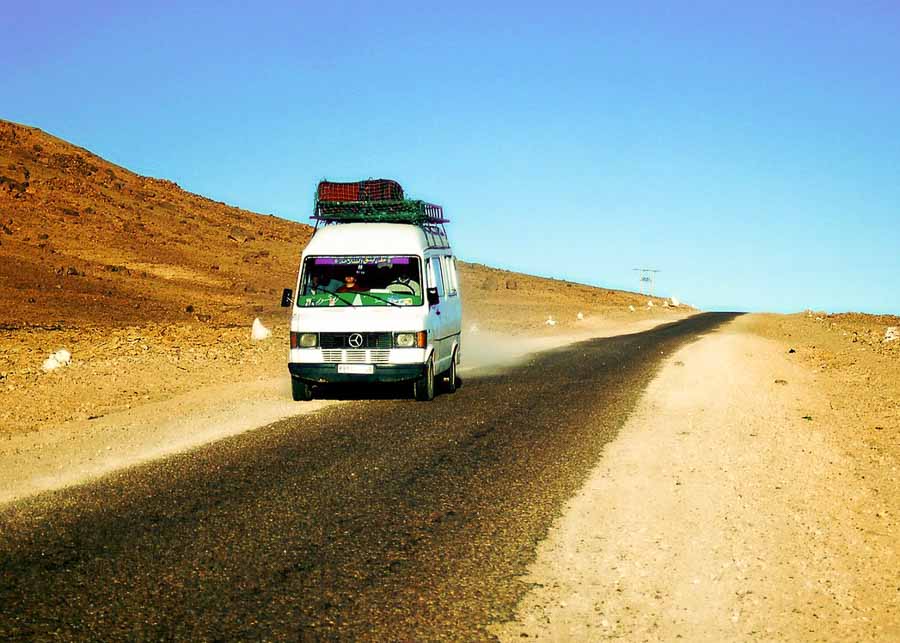
Public Transportation
Getting around in Morocco on public transport is generally easy. There are plenty of buses, collective taxis and trains that link the main cities in the north with the coast and Marrakesh. But although the coverage may be good, you’ll need to have some “Moroccan time” at hand, as service disruptions and delays occur quite frequently.
Trains are a good option if you are traveling between the major cities, but buses are a cheaper and more comprehensive alternative if you plan to visit smaller towns.
There are also Grand taxis that cover longer routes between towns, but they don’t leave until they are full. Grand taxis are shared cabs that carry up to six passengers — two in the front beside the driver and four in the back. The Grand taxis have no meters, so you should negotiate the cost per person before you head out.
Renting a car also has its own challenges. Road conditions and traffic accidents are a significant hazard in Morocco. The mountain roads through the Rif and Atlas mountains are steep, narrow, and dangerous. Also, street lighting is minimal after dark and people or animals can suddenly appear in the middle of the road.
Parking is a problem as well. And not only in big cities, but also in smaller towns where the historic centers are car-free. In addition to these issues, you need to be aware of the fact that English is not largely spoken in Morocco. That makes asking for direction or trying to read the signs –which in many places are only in Arabic– really difficult. In our experience, Google Maps is not entirely reliable in Morocco.
Hiring a Car with a Private Driver
After months and months of research, we decided that the safest and most convenient way to travel through Morocco is to hire a car with a driver. Although it will certainly be cheaper to use public transportation or rent a car, hiring a private driver doesn’t cost as much as you might think. Not to mention the fact that it will give you a better experience and save you a lot of hassle.
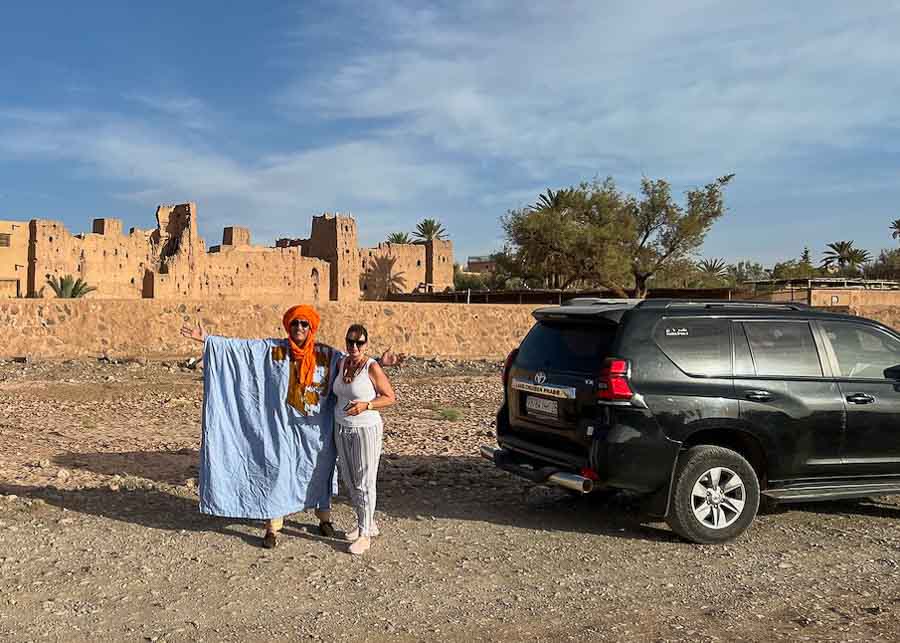
After visiting Morocco for two weeks, I am still convinced that hiring a driver and travel guides in every big city was the best decision we made. Even my husband who doesn’t fear the challenges of driving all over the world (including the steep, narrow roads of Sicily ), agrees that having a private driver is THE way to travel in Morocco.
There are quite a few companies who offer these services, but knowing which one to choose may be tricky. Always read the company’s reviews before deciding. We worked with Morocco Hire Car and were more than pleased with them. They have English fluent drivers, very competitive prices and great service.
Our driver did so more for us than just take us from point A to B. He also took us to many interesting places that we didn’t know about, gave us practical information, helped us with our luggage and treated us like his own family.
Despite being a Muslim country, Morocco is more liberal than other Muslim states. Most Moroccan women don’t wear a veil –although they may well wear a headscarf. In big cities women are more emancipated, so you may see young girls wearing short-sleeved tops and knee-length skirts.
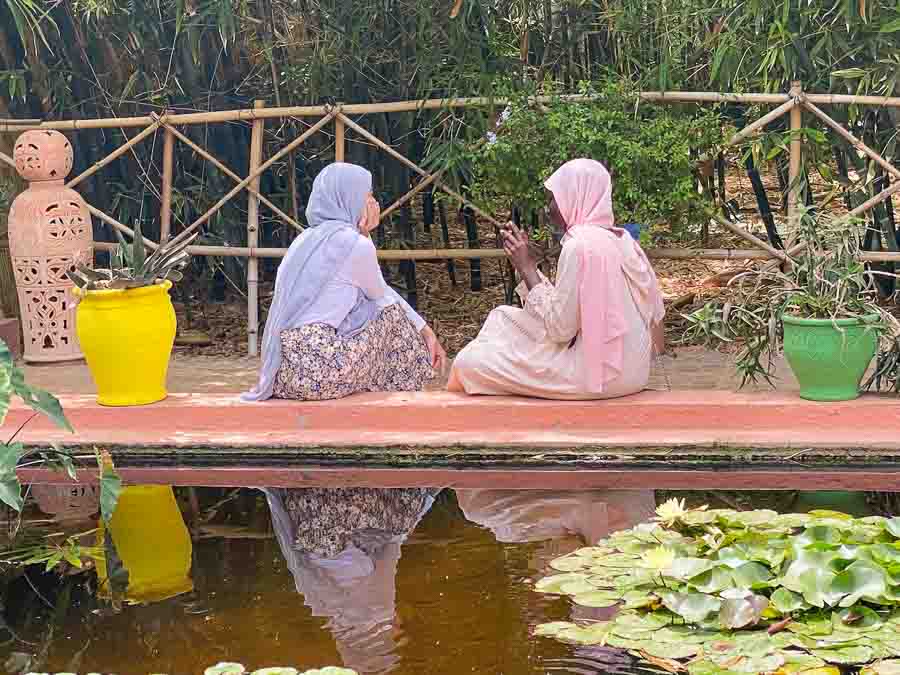
The general rule is to dress conservatively. For Muslims that means covering your legs and shoulders if you are a woman and wearing long pants if you are a man. Tourist women are not expected to cover their head, but they should dress decently when visiting Morocco. That means not wearing above the knee skirts and shorts, see-through clothing, or low cleavage tops if you are a woman.
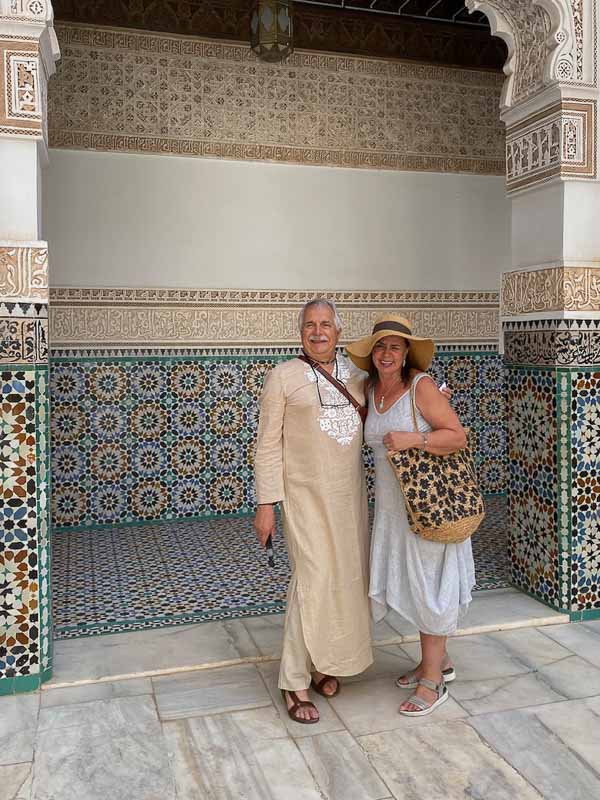
If you are a man, you should wear long pants and a shirt. Nonetheless, when it’s hot outside you may see many tourists wearing shorts and sleeveless shirts, like in the U.S. That is particularly common in Marrakesh, which is a more liberal city, but not in smaller towns or in other parts of the country. But if you want to avoid unwanted attention –especially as a woman– you should try to conform to the local norms.
Starting with bathroom attendants and continuing with drivers, waiters, tour guides, and riad staff, expect to tip almost everywhere in Morocco and for just about any “service.” A kid lets you pet his pet? Tip! You stop to take a photo of some goats on trees ? Tip the herder! The tour guide at the museum? Tip! Bathroom attendant? Definitely tip! The golden rule is to always carry small change with you, or you’ll have to face some awkward situations.
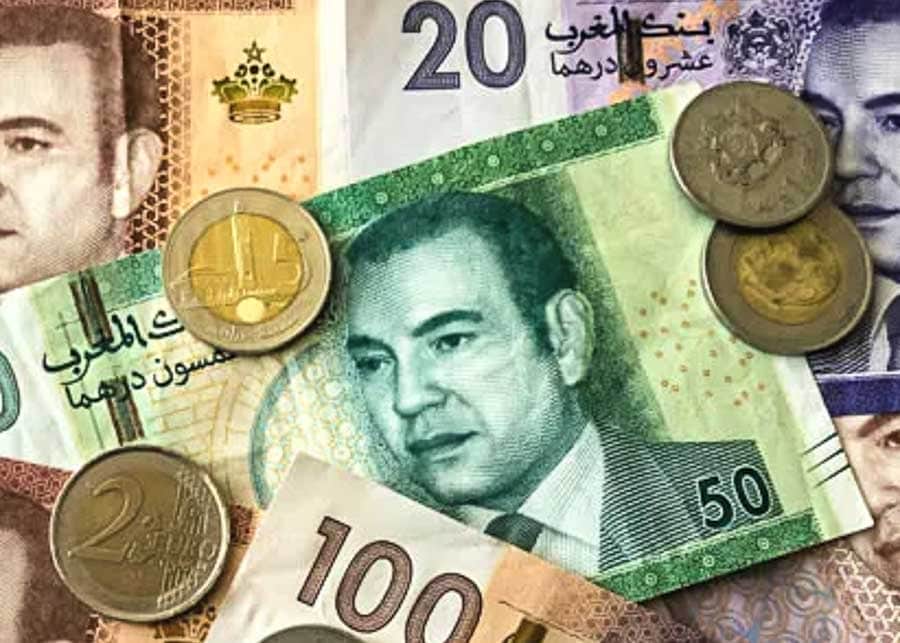
Salaries are low in Morocco and although tipping should be optional and based on experience, it’s pretty much expected everywhere. This may not come as a surprise if you are coming from America, where ‘tipping jars’ are almost everywhere . But if you don’t come from a tipping culture, it will annoy you.
Scams, hassling and petty crime are a big problem when visiting Morocco. Especially if you travel alone. Luckily, most of the time we were either with a tour guide or with our driver. But when we were by ourselves we were a sure target. “Are you lost? Where do you want to go? To your hotel? I’ll take you. No money. Don’t worry!” And if you accept, you won’t be able to get them off your back until you pay them what they ask.
If you look disoriented, one guy will point you in the wrong direction and when you are completely lost, another one will come to the “rescue” you and offer “take you to where you need to go.”
Simply wandering through the souks would cause the nearby vendors to jump on us and follow us around, inviting us to their stores. We were trying to turn them down politely, but some of them just couldn’t get “no” for an answer. We could feel the stares on every turn we took and that made us feel very uneasy.
It’s a game of cat and mouse that wears you out very fast. Wandering around by ourselves in the medinas was so stressful, that we had to give it up after a while. That doesn’t mean that everyone is out to get you, but having to stay constantly on guard kind of ruins the experience.
Despite being a friendly and welcoming people, Moroccans don’t like you to take their picture. Actually, let me rephrase that: Moroccans don’t like you taking any pictures at all! Period. Whether you are pointing your camera to a stall, an animal, or a building they oppose it just as vehemently: “No photo! No photo!”
Some them will agree to have their picture taken –of course, tipping is implied– but many just don’t want tourists taking pictures of anything. I was trying to photograph a piece of furniture in a museum when one of the guards started yelling from across the hall: “No photos here! No photos!”
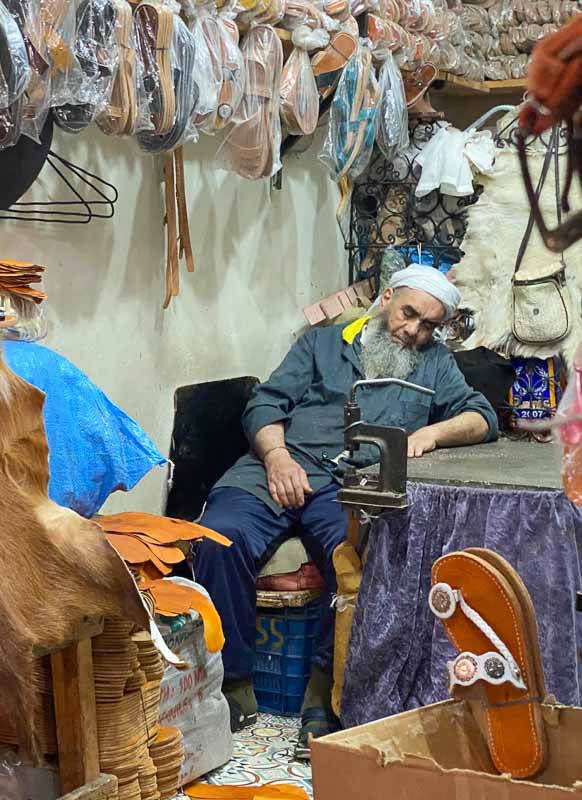
You may argue that this attitude has a lot do with their perception of privacy, but I believe it’s more than that. Moroccans see money making opportunities in almost anything, so they try to take advantage of every situation. You may not think it’s too big of a deal to tip a few Dirhams here and there, but when you end up paying 3-5 Dirhams (30-50 cents) every time you take a picture, you get fed up after a while.
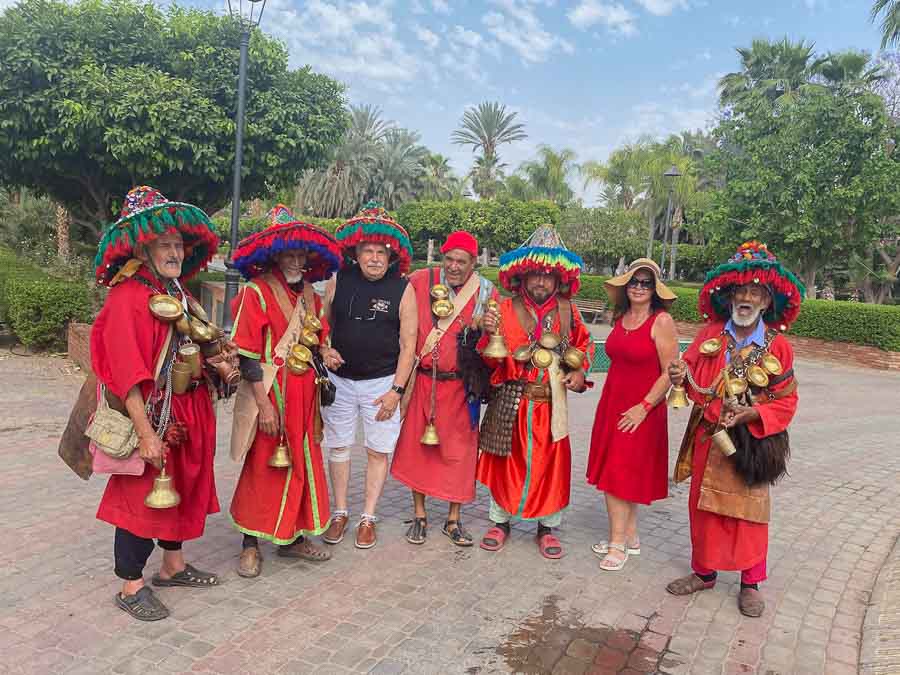
Having to find tricks and reinvent yourself every time you want to take a picture is very annoying. Especially when considering that Morocco relies so heavily on tourism and wants to be promoted as a desirable destination!
As a travel photographer, a trip in which I can’t capture the local color, the lives of the people and their customs is a wasted trip. Luckily, in most places we visited we were accompanied by a travel guide and that made things a little easier. Not that we didn’t have to pay in many places, but at least not every time the locals demanded.
While we’re on the topic of photography you should know that drones are illegal in Morocco. There are signs everywhere in the airport stating that you cannot bring drone into the country. Your bags will pass through a scanner at the airport, so don’t even try. They may fine you, confiscate your drone, or even put you in jail!
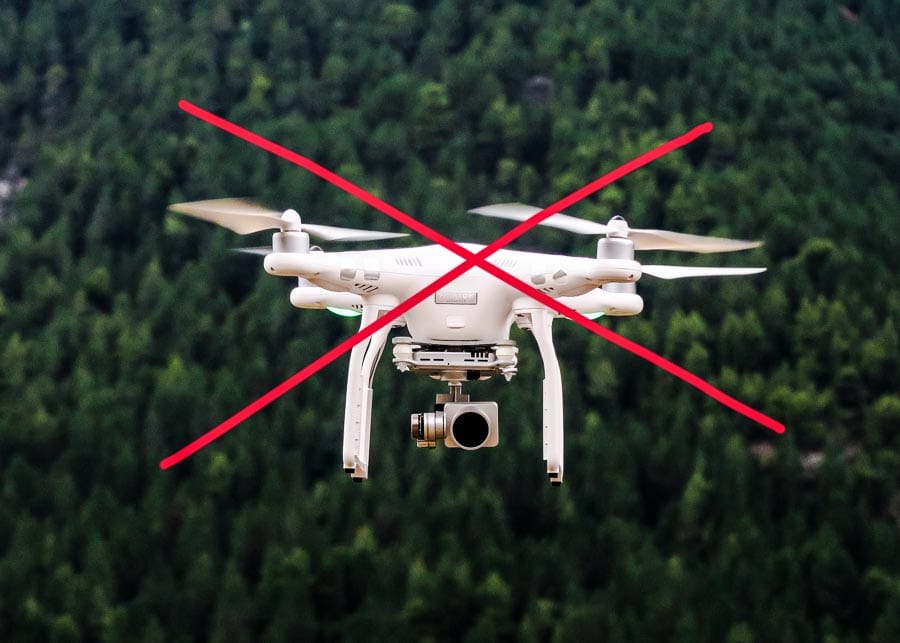
We tried to obtain an UAV permit to use the drone as Media professionals, but found out that even if we have a permit the authorities may confiscate our drone. So forget about taking aerial photos in Morocco!
You’ll encounter a great deal of new experiences when visiting Morocco: customs, food, culture, and even accommodations will be different from what you know. One thing you’ll have to decide when planning your trip is whether to stay in riads or hotels. There is a significant difference between the two, although there are lots of similarities when it comes to amenities and facilities.
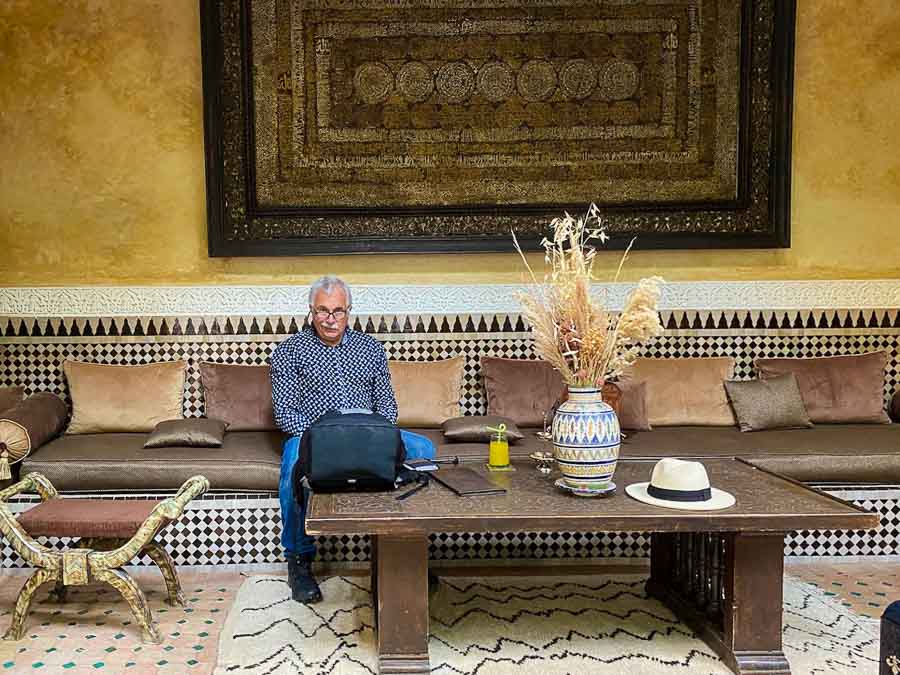
What is a Riad?
Riads are basically the Moroccan version of a guesthouse centered around an open-air courtyard that contains a fountain. Historically, riads are mansions that were once occupied by wealthy families. Today, many of these riads have been remodeled and converted into luxury accommodations.
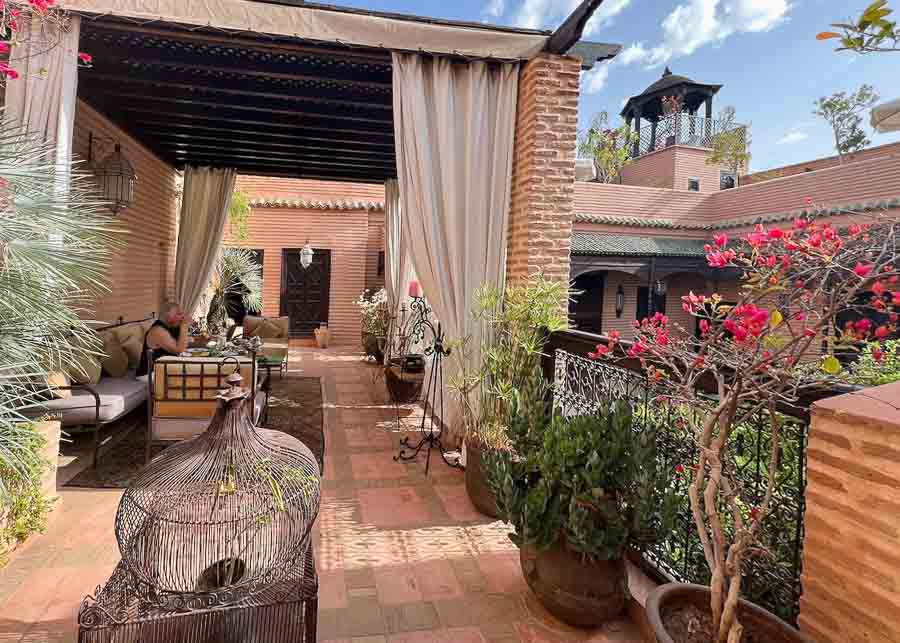
Riads have all the amenities of a modern hotel, but they maintain the typical atmosphere of a Moroccan house. These beautiful buildings often contain some extraordinary examples of Moorish architecture and Moroccan craftsmanship.
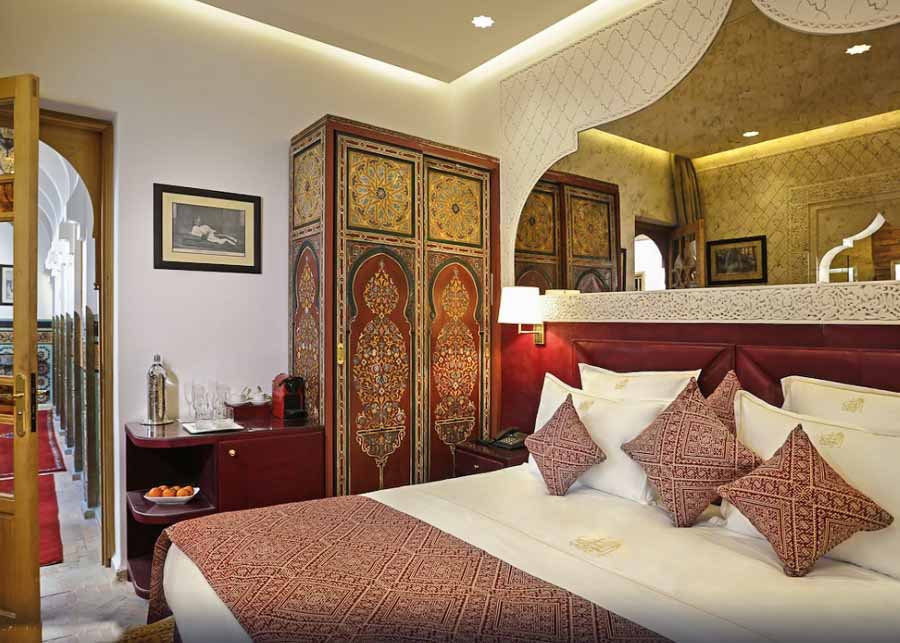
Generally, riads have fewer rooms than hotels and are located within the Medina walls, in narrow alleys. That means they are right where the action is and thus closer to the attractions. But that also means they are harder to access, since the medinas are car-free zones. Also, walking through these narrow, winding alleys after dark may be a little scary.
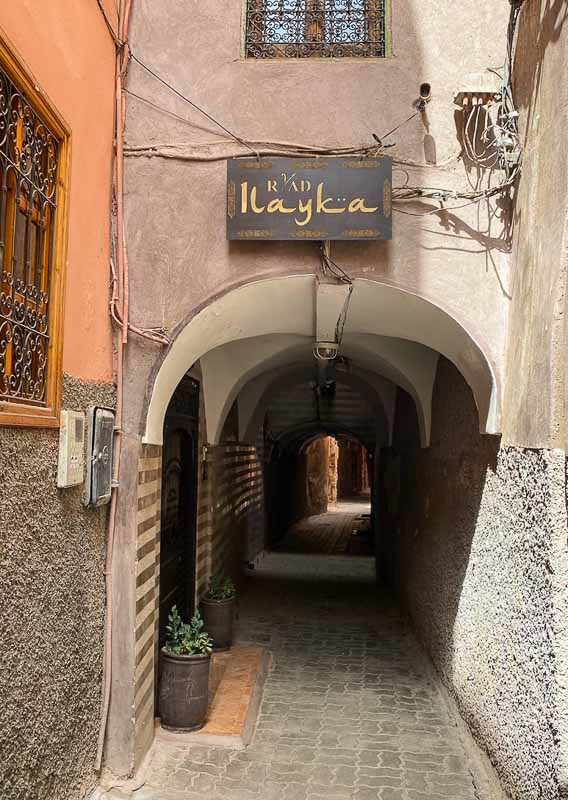
Hotels, on the other hand, are more accessible because they are generally located outside the old town. They also have more room options and are often held to international standards. So if you don’t feel very adventurous and prefer utmost accessibility and big rooms, you should go to a hotel. But if you want to immerse yourself entirely into the Moroccan culture and lifestyle, you should stay in a riad.
Ultimately, your choice will be determined by what’s more important for you when traveling: consistency and ease, or cultural experience.
One of the big disappointments for non-Muslims when visiting Morocco is not being able to enter into the mosques. There are many outstanding mosques in Morocco, but unfortunately only those who go in there to pray can access them. The only exception is Hassan II Mosque, in Casablanca, which can be visited by non-Muslims on guided tours, but only at specific times.
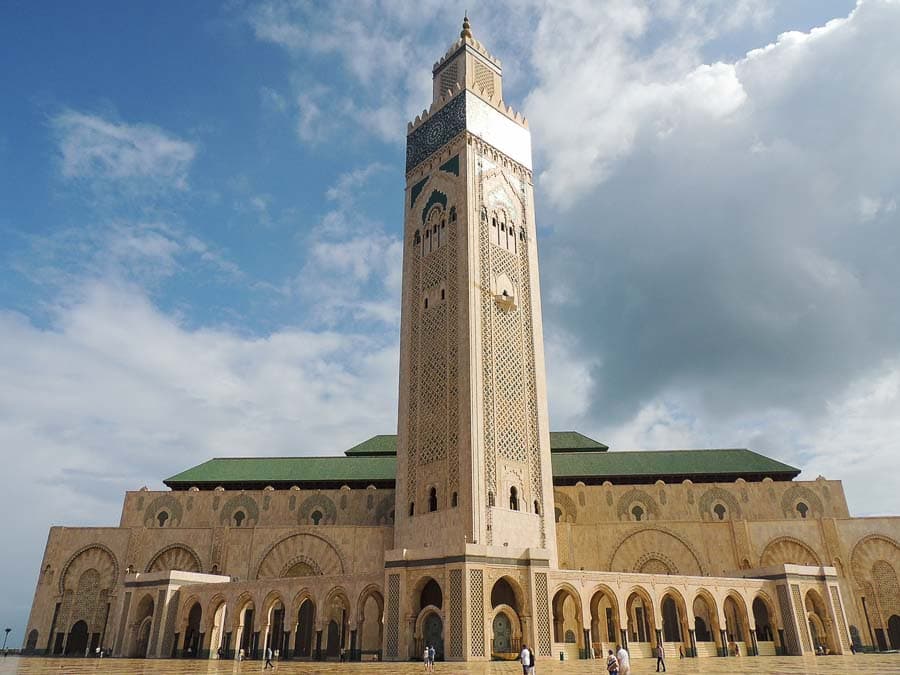
As for the rest of them, you’ll have to be content with an occasional glimpse through open doors, or just walking around the courtyard.
When visiting Morocco you’ll be amazed at the wide assortment of handicrafts available in the marketplace. But shopping in Morocco is not going to be your shopping mall experience. If you want to buy something here, you’ll have to be prepared to bargain.
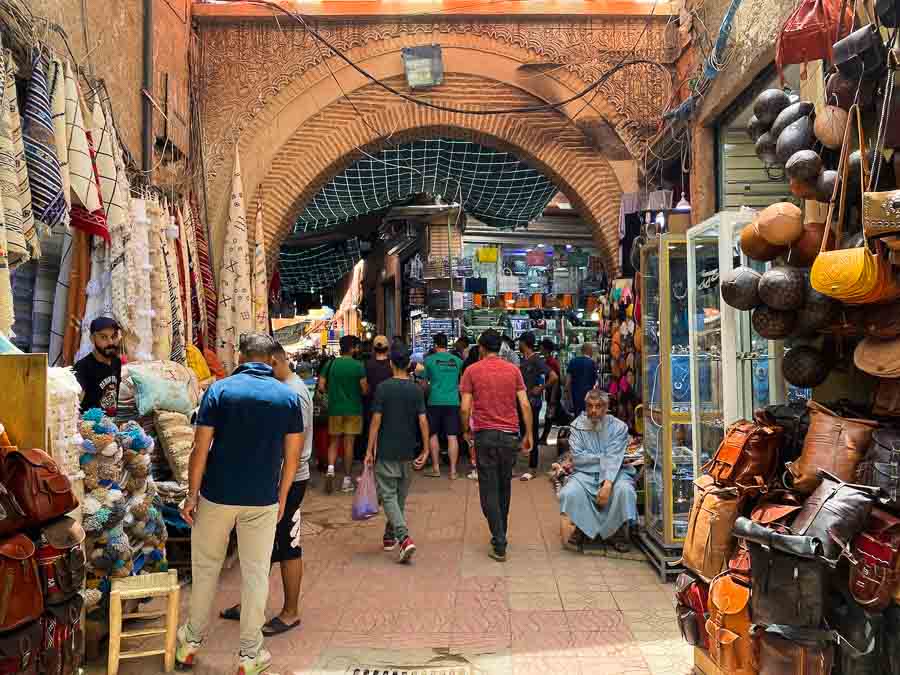
The Western world (except for maybe southern Spain and Italy) doesn’t have much of a bargaining culture, but in Morocco bartering is an old tradition. You need to be aware that merchants inflate the prices many fold in order to leave room for haggling.
Unfortunately, for most westerners having to negotiate a price can be very stressful. The process is very similar to that of buying a car or a house here, in the States. There are a few common sense rules that apply: 1. Know the market value of the objects. 2. Don’t show enthusiasm for the item you want. 3. Decide how much you want to pay for it and wait for an offer. 4. If the merchant doesn’t accept your counter-offer, wait for another offer or walk away.
Unless you agree on the price, you don’t have to buy anything. But if the merchant accepts your offer, then you have an obligation to buy. If you are not planning to buy anything, don’t engage in a conversation with the merchant.
They will pay you lots of compliments and may even offer you some of their famous mint tea to lure you into their shop. If you accept, they will believe you are looking to buy and it will be very hard to back out. Try to avoid the chat with a polite “no, thank you.” Never underestimate the merchant: they are smarter and think faster than you when it comes to negotiating a price.
Morocco is mostly a cash-based society, so you should always expect to pay in cash. The country’s currency is the Dirham, but euros and US dollars are accepted as well in most places.
Being a Muslim country, it’s more difficult to find alcohol in Morocco than it is for instance in Europe, or in other parts of the world. While you can buy alcohol in larger supermarkets and some bars, drinking doesn’t have a very good image in Morocco and most locals see alcohol as a Western drug. Even so, according to a recent study, Moroccans are drinking more now than they did some years ago.
As a general rule, drinking alcohol in public is against the law and it could get you into trouble with the police. Therefore, it’s a good idea to be discrete when you drink and avoid walking around if you had too much alcohol.
Growing, selling, purchasing or using drugs is illegal in the Kingdom of Morocco. But but despite this fact, the country is the world’s biggest cannabis exporter. Most of the crops grow around the Rif Mountains, under the complicit watch of the local police, who turns a blind eye to it.
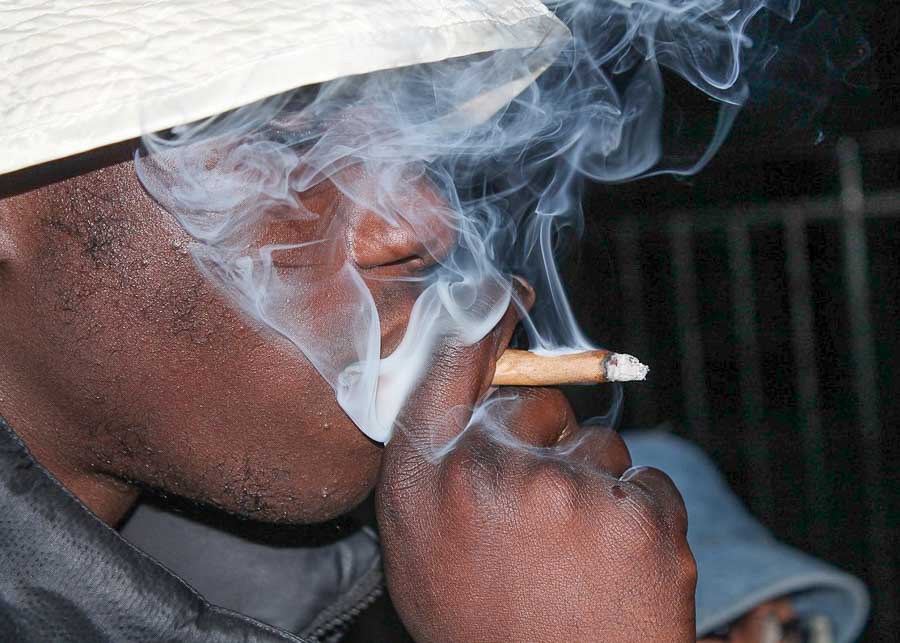
As a result, it’s not unusual to see people smoking hashish in pipes everywhere. As a tourist, you may be asked more than a few if you’d like to purchase some hashish. Smoking kif (marijuana) or hashish is commonplace in Morocco. Men usually roll it up in a joint mixed with tobacco. But buying it has its risks, as often police informers act as dealers, so you may get in trouble.
Morocco is overall a very safe country to visit. There are almost no violent crimes against travelers reported here. Moroccans are kind, warm and tolerant of other cultures, providing their beliefs are respected as well. They are known for their hospitality and warmth towards visitors, as they all aware of the fact that the tourism industry is a major economic source of income to most families directly or indirectly.
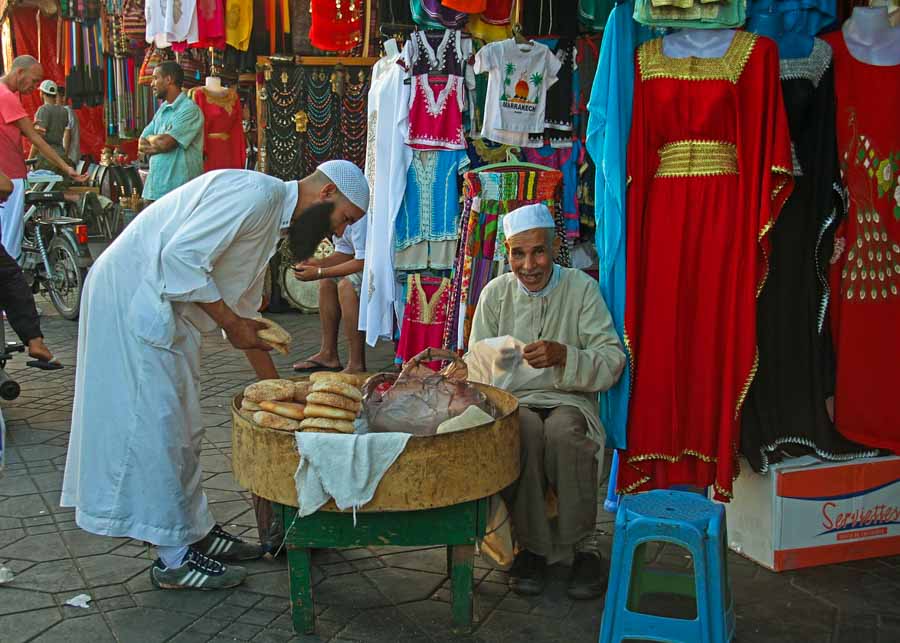
That being said, you should always exercise common sense when walking around the Medina streets. Especially after dark. Don’t display expensive jewelry or large amounts of money and be aware of your whereabouts.
Also hide money, credit cards, and your passport into deep inner pocket, or in a pouch under your clothes. I believe that pick pocketing is the most common crime here, and both men and women can be victims.
There are a few things that you should definitely avoid when visiting Morocco.
• Talk about the King, religion, or politics . It is recommended to avoid these 3 topics in your conversations with locals or other tourists in Morocco.
• Public displays of affection. Very obvious gestures of affection are considered offensive in Morocco, so you should avoid kissing in public or other displays of love while there.
• Wander through back alleys. There is a maze of narrow lanes and winding alleys in every old town in Morocco. They may be charming at first sight, but they are also dangerous. Venturing too deep into this maze can make you an easy victim for con artists and robbers. Stay in places where you can see other tourists
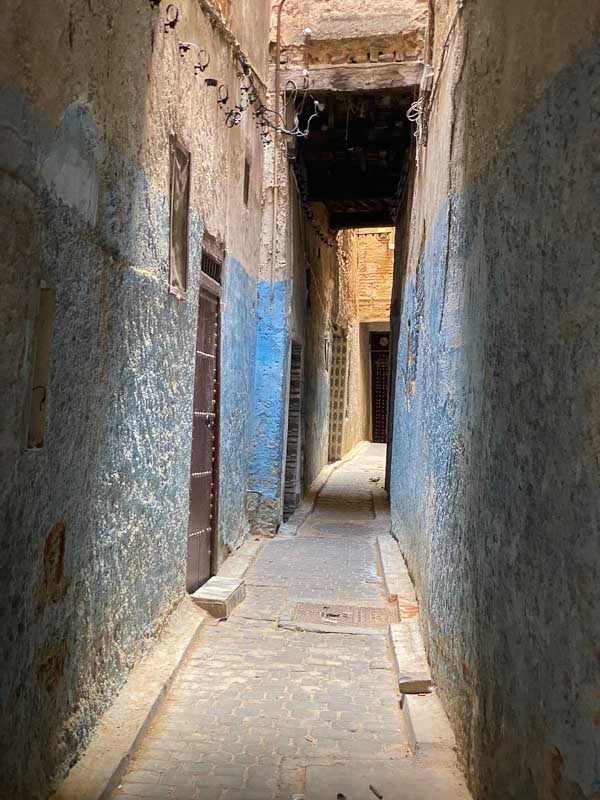
• Feel compelled to buy. If you plan to hire a tour guide to show you around when you travel in Morocco, you’ll often be dragged into shops under the pretext of showing you unusually beautiful crafts, or to observe a certain manufacturing process.

The guide will reassure you that he brought you there “just to see, not to buy.” But in fact, they will get a commission if you buy anything. Although it’s easy to see through this trick, you may feel pressured to buy at least something to please the guide or the store owner, but you shouldn’t.
READ NEXT : Visiting Chefchaouen, Morocco’s Blue City
Morocco is full of welcoming, generous and hospitable people who will be glad to share their historic sites, vibrant souks, and delicious cuisine with you. Therefore, one of the biggest mistakes you can make is avoid visiting this country for fear you may not be safe or welcome there. If you travel with an open mind and a willing heart, you’ll have a wonderful time in Morocco. I promise you!
If you found this information helpful, please pin this to help other travelers discover Morocco
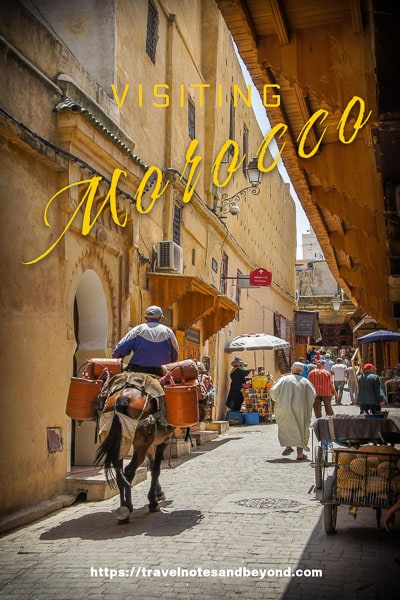
INTERESTED IN A TRIP TO MOROCCO? YOU MAY ALSO LIKE THESE:
- Morocco Itinerary – How to Spend 10 Days in Morocco
- The Best Souvenirs to Buy When Shopping in Morocco
- The Mystery of the Tree-Climbing Goats in Morocco
- Best Things to Do in Chefchaouen, Morocco’s Blue City
- How to Plan a Perfect Day Trip From Marrakech to Essaouira
Anda is an award winning travel writer, avid globetrotter and passionate photographer. She is the voice behind "Travel Notes & Beyond," a collection of stories and travel impressions from her wanderings around the world. When she is not busy writing, traveling, or editing photographs, you can find her hiking in the foothills behind her house together with her husband and their dog.

Reader Interactions
March 27, 2023 at 1:56 pm
So many tips to learn from… Thanks for sharing!!!
April 28, 2023 at 12:58 pm
So many things to learn indeed, the most important of which is that Morocco and Moroccans are not Arabs and are vast majority ethnic Amazigh berbers. You can ruin your reputation by calling Moroccans ARabs, big no no.
January 29, 2023 at 1:33 pm
Thank you for the tips Anda. We are not yet sure whether we should hire a car with a private driver or book a private tour. We have read that the driver cannot act as a guide and therefore for certain cities we would still need to hire a guide. What is your opinion please?
January 29, 2023 at 2:42 pm
Technically your driver can’t act as a guide, so it’s better if you you hire local guides for cities like Marrakech, Fes and so on. They are are also more knowledgeable than a driver. However, our driver gave us all kinds of tips that were invaluable. Like how much to tip (and it was much less than we intended to give), what places are safe to wander around, what restaurants are rip-offs, and so on. Besides, having a local with you at all times is priceless in a country like Morocco. I’m not saying you won’t be able to make it without one, but your life will be so much easier.
January 30, 2023 at 12:15 am
Thank you for your prompt reply Anda 🙂 So just to confirm, if we book a private tour, how will this differ from a private driver? Per our understanding, a private tour will provide you with a driver, a guide and book hotels on our behalf. Is this correct?
January 30, 2023 at 12:49 am
There are different kinds of “private tours.” Some are small group tours, which will take you to different cities (or to the desert) and drop you there. From that point you may choose to hire a local guide, or visit the city on your own.
Another possibility is to rent a car with a driver, which is what we did. In each city we hired a local guide to take us around. That is of course more expensive, but you are the boss. The driver will take you wherever you want and stay at your service all the time. You may choose your own itinerary, or ask the company to make one for you. They can recommend hotels, restaurants, etc. etc. We designed our own itinerary and booked our own hotels, so we just paid for the car and the driver. That was slightly more expensive than just renting the car itself. I strongly recommend this option. In my post I have a link to the company from where we rented the car with a driver.
September 21, 2022 at 5:44 pm
Many good tips without having to ask the questions. Now looking for more insights as to “off the beaten path”.
September 21, 2022 at 6:45 pm
I’m still working on the Morocco posts and yes, “off the beaten path” destinations are coming soon. Thank you for dropping by.
July 27, 2022 at 6:25 pm
Great post, Anda. You are spot on — although it sounds like photography has gotten much more difficult since I was there. . . . and it was challenging enough then! We also hired a driver to take us around and used guides in larger cities (our brilliant driver was a fabulous unofficial guide in more rural places). You are right — a good driver and/or guide will take you to places you would never discover otherwise. And it makes getting around just so much easier. It’s not even that expensive, we found the price to be comparable to booking a mid-price tour. Of course, the trick is finding someone who will be really good and who you’ll want to be around over the course of long days of driving and touring.
July 29, 2022 at 10:05 am
I agree, Cindy. Having a drives puts you ahead of the crowds and it saves you a lot of time.
Roy Stevenson
June 30, 2022 at 11:01 am
Thanks for this excellent summary, Anda. Much appreciated. Morocco is on my bucket list & this gives me a good idea of what to expect. Best regards to you! Roy Stevenson
June 30, 2022 at 1:05 pm
Thanks for dropping by, Roy. Hope all is well with you and your wife.
Leave a Reply Cancel reply
Your email address will not be published. Required fields are marked *
Save my name, email, and website in this browser for the next time I comment.
COPYRIGHT NOTICE
All rights reserved © Travel Notes & Beyond. The material on this website is protected by copyright law. Republishing the content on this blog (including text, photography, etc.) is strictly prohibited.
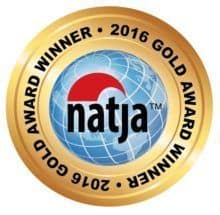
AFFILIATE PROGRAM DISCLOSURE
Some of the pages and posts of this blog contain links to products and services that may be useful for my readers. When clicking on these links you will have the option to purchase or register for a service at no extra cost to you, but doing so can help me offset the costs associated with running this blog. Thank you for your support!
Travel to Morocco: A Complete Guide (Tips + Morocco Itinerary).
- By Sarah Steiner
- Updated On April 21, 2024
Welcome to our Morocco Travel Guide! It’s safe to say we love Morocco. It’s April 2024 and we are just wrapping up SIX months of travel to Morocco.
We arrived by ferry from Spain and have hugged and surfed the beautiful Atlantic coastline. We loved the contrast of the famous imperial cities (Fes, Marrakech, Chefchaouen) and desert towns (Ouarzazate, Merzouga and Zagora) heading all the way inland to the Sahara Desert. And we ventured way down south to camel markets (Guelmim), historic settlements (Sidi Ifni) and surfing hotspots (Taghazout, Tamraght and Dakhla).
So now; after six incredible months of travel to Morocco here is our complete Morocco Travel Guide and itinerary with everything you need to know for an epic trip to Morocco of your own!
In this Morocco travel guide you will find:
- Travel to Morocco
- Best time to visit
- Visas
- Traveling to Morocco
- Data, WIFI and connectivity
- Safety in Morocco
- Money and ATM’s
- Food and alcohol
- Transportation within Morocco
- Morocco itinerary
- Places to visit in Morocco – Tangier – Chefchaouen – Fes – Rabat – Casablanca – Essaouira – Marrakech – Agadir – Merzouga – Ouarzazate – Ait Ben Haddou
- Accommodation in Morocco
- More about travel to Morocco
About Morocco, just quickly
- Full Name: The Kingdom of Morocco
- Capital: Rabat
- Official languages: Arabic and Moroccan Berber
- Religion: 99% Islam
- Currency: Moroccan Dirham (MAD)
- Population: 37,080,000 (2021)
- Time Zone: National Standard Time (UTC+1)
- Calling Code: +212
- Drives On: Right
- Credit Cards: Visa/MC accepted
- Outlets: Plug Type C and E (220 V / 50 Hz)
Travel to Morocco – the country, the people and its culture
Morocco has a unique history that has largely been influenced by its geographical placement in between Europe and Africa and bordering the entrance to the Mediterranean Sea.
Size-wise it is a large country and has an incredibly varied landscape and culture in the different directions of each border. But one thing that is constant all over the country is the Moroccan culture and warm hospitality.
On the northern Atlantic coast the first cities that welcome any traveller are the coastal towns of Tangier and Asilah.
Inland, the famous imperial cities of Marrakesh and Fez do not disappoint. Marrakesh is more modern and popular as a starting point, but Fez is iconic and traditional and definitely worth adding to your Morocco itinerary.
Agadir, Rabat and Casablanca are Morocco’s other large cities and offer the coastline as well as street food and the famous Hassan II Mosque (the only mosque you can visit as a tourist in Morocco).
The Atlas Mountains provide truly stunning scenery and are popular as a destination for trekking and exploring or just as a daytrip from Marrakech.
And hidden away in the Rif Mountains, Chefchaouen is arguably Morocco’s most iconic and prettiest town.
Read more about options to choose the best Morocco itinerary below.
Do I need a visa to travel to Morocco?
Citizens of the following countries and territories can enter Morocco visa-free for up to 90 days (unless otherwise noted):
- All European Union member states, Algeria, Andorra, Argentina, Australia, Bahrain, Brazil, Burkina Faso, Canada, Chile, China, Colombia, Cote d’Ivoire, Dominican Republic, Gabon, Indonesia, Japan, Kuwait, Liechtenstein, Macao, Malaysia, Mexico, Monaco, New Zealand, Niger, Norway, Oman, Peru, Philippines, Qatar, Russia, San Marino, Saudi Arabia, Senegal, Singapore, South Korea, Switzerland, Togo, Tunisia, Turkey, United Arab Emirates, United Kingdom, United States.
Visa-free entry for Morocco is valid for both airport and land borders for the countries listed above.
Other foreign nationals wishing to enter Morocco must obtain a visa prior to arrival.
On July 10, 2022, the Moroccan government launched an e-Visa system to facilitate the granting of visas to foreign nationals subject to this formality.
Best time to visit Morocco
Traditionally, the best time to visit Morocco in terms of the weather is during the spring (April and May) and autumn (September and October) months. This is when the climate is pleasant and summery throughout the country without being too hot for day-time exploration.
However, in our experience we would also recommend the wintertime (December, January and February) as a perfect escape from the Northern-hemisphere. And to make the most of the sunshine and pleasant day-time temperature. Winter is also a good time to explore the south and the Sahara fringes and further inland without overwhelming heat. Albeit do remember that even in the desert it can get bitterly cold during the night.

Getting to Morocco
Morocco is geographically located in North Africa. It is possible to travel to Morocco by air, land and sea.
Travel to Morocco by air
Morocco has 8 main international airports. Casablanca is the country’s major airport and hub for the national carrier, Royal Air Maroc.
International airports in Morocco:
Travel to Morocco by land
If you want to travel to Morocco by land, know that it shares a border with two countries: Algeria and Mauritania.
The border between Morocco and Algeria is closed and has been closed for years. But it is possible to cross the border from Morocco to Mauritania.
- Read all about crossing the Morocco – Mauritania border from Dakhla to Nouadhibou here.
Travel to Morocco by sea
It is also possible – and easy – to enter Morocco at the port borders in the north of the country at:
- Tangier Med
It is possible to bring a vehicle or motorhome with you to Morocco on the ferry from Europe. (This is what we did).
- Read all about how to travel to Morocco with a motorhome on the ferry from Algeciras, Spain to Tangier Med .
Is it safe to travel to Morocco?
Morocco is regarded as a safe country to travel to. Crime rates are relatively low. And in all our travel to Morocco we have never felt unsafe or questioned our safety.
The country has seen a huge rise is visitor numbers in recent years as tourists – especially from Europe, UK and USA – are looking for an off the beaten track and unique travel experience. And along with travel anywhere that is more adventurous, aspects such as public safety, hygiene standards, and societal norms may be different to what you are used to.
It is expected that you respect and understand its laws and cultural customs and adhere to the status quo.
Unfortunately Morocco does sometimes have a reputation for scams and pickpockets, especially in the public spaces of tourist hotspots like Marrakech, Fes and Essaouira. Much of Morocco’s economy depends on tourism and petty crime and ‘tourist traps’ can catch a visitor by surprise. Keep your valuables safe and carry small amounts of cash. And as with any travel around the world it is important to be aware of your surroundings.

Internet connectivity and WIFI in Morocco
In general, internet and WIFI connection is good (surprisingly so by travel standards) across the country. Hotels and accommodation in the cities will have WIFI available (at varying speeds). In the desert regions and further south in Morocco the connection is often weaker.
If you rely on WIFI for work I suggest tethering to your SIM card with data. See below, but the mobile networks are often faster and more reliable.
SIM cards and data
There are three mobile network operators: Maroc Telecom, Orange and INWI.
It is easy to buy a prepaid SIM card on arrival at the airports and at Tangier Med (ferry port). And in the cities you will see roving vendors wearing branded t-shirts of the different network providers selling SIM cards and recharge vouchers.
Data is inexpensive and it is straightforward to recharge prepaid connections using scratch cards that can be purchased at kiosks and convenience stores all over the country.
- Read all about buying a SIM card in Morocco and how to get unlimited data.
Get a VPN for traveling in Morocco
You should always use a VPN when you travel. And especially when you connect to public Wi-Fi networks.
Your connection with a VPN will be much safer. And you will be able to access any content that is typically censored or blocked in Morocco.
Money, currency and cash when you travel to Morocco
The Moroccan dirham is the official currency of Morocco.
- 10 MAD = 1 USD
- 100 MAD = 10 USD
- 1000 MAD = 100 USD
Dirham are available in banknotes of 20, 50, 100 and 200. Coins are available in denominations of 1/2, 1, 2, 5 and 10 dirham.

ATMs in Morocco
You can find ATMs in the main cities and towns in Morocco.
Credit cards (VISA and Mastercard) are accepted at mainstream city accommodations, high-end restaurants, large supermarkets and shopping malls.
However, Morocco is a cash-based society. You will need to always carry cash with you in Moroccan Dirham.
ATMs in Morocco will give you a maximum of 2,000 – 4000 MAD per transaction (approximately 200 – 400 EUR/USD.)
These are the ATM’s in Morocco we have used (mostly successfully) to withdraw local currency:
- Societe Generale
- Attijariwafa Bank
- Banque Populaire
Morocco has fairly high withdrawal charges with a standard withdrawal fee (regardless of amount withdrawn) of 35 MAD.
How much does it cost to travel to Morocco?
It really depends on how long you have, where you go and ultimately your Morocco itinerary.
Typically, meals costs somewhere between 5 and 10 USD. Accommodation in Morocco usually includes breakfast.
- Bottle of water (1.5L): 6 MAD
- Bread: 1.5 MAD
- Tagine (2 person): 50 MAD
- Cappuccino: 15 MAD
- Orange juice (fresh): 10 MAD
- Sprite or Coke (330ml): 6 MAD
- Sandwich/Panini: 35 MAD
- Meal at McDonalds: 65 MAD
- Bananas (1kg): 15 MAD
- Milk (1L): 8 MAD
- Beer (330ml): 25 – 40 MAD
- Wine (750ml): 60 – 110 MAD
- Petrol (1L): 14 MAD
- Diesel (1L): 13 MAD
Food and alcohol in Morocco
There’s a lot more to Moroccan cuisine than couscous and tajines. The traditional foods of Morocco are mouth-watering.
Moroccan dishes are influenced by Berber, Jewish, Arab, Spanish and French cultures. And food plays a very important role in traditional Moroccan culture and is seen as a symbol of hospitality.
Alcohol isn’t readily available around the country. But it is legal to drink alcohol in Morocco. Many larger hotels will serve alcohol and in the cities (Marrakech, Fes, Essaouira, Agadir) there are restaurants and bars in and around the medina that serve alcohol.
Food in Morocco you need to try
The most common food items you will come across on your travel in Morocco include slow-cooked meats, couscous, bread, dates and sweets and of course, Moroccan mint tea. LOTS of mint tea.
- Tagine: Slow-cooked meat and vegetables cooked and presented in a conical-shaped clay pot.
- Couscous: Originally from Morocco and typically served with meat or vegetable stew. Traditionally prepared on Friday and served for special occasions.
- Harira: Lentil soup usually served as a starter or used during Ramadan to break the fast at dusk.
- Bastilla: Flaky pie traditionally made with pigeon or chicken.
- Khobz: Crusty bread typically baked in communal wood-fired ovens and served with meals.
- Bissara: Hearty soup made from dried fava beans and commonly served during breakfast
- Tanjia: Like tagine, meat slow-cooked in a covered clay pot.
- Chebakiya: Flower-shaped, fried sesame cookie dipped in honey.
- Kaab el Ghazal (Gazelle Horns): Crescent-shaped pastires made with almond paste, orange flower water and cinnamon.

Language for your travel to Morocco
Arriving in Morocco you’ll quickly discover that the language spoken amongst Moroccans is an amazing blend of Arabic, French, Berber (Amazigh) and sometimes a little English (or even Spanish). And without doubt the people you encounter and interact with will appreciate your effort at speaking a bit of their language.
- Hello: As-salaam Alaykum (literally means peace be with you)
- And unto you peace – Walaykum As-salaam (said in response to the above)
- Thank you: Shukran
- You’re welcome: Al ‘afw
- How are you? Labas?
- Good: Mezya
- How much? Be kam?
- Please: Afak
- Delicious: Hadshi bneen
- Yes: Wah
- No: La
A greeting of ‘Salam’ is always received with a smile.

Transportation for your travel to Morocco
Public transportation is an adventure in itself when traveling in Morocco. It can be hit or miss with taxis and buses between cities or taking a shared taxi. The bigger cities like Marrakech and Casablanca have public bus routes within the city but the buses are often old and overcrowded and don’t necessarily follow a route or timetable…
But, travel to Morocco is an adventure and that is what we are here for; right?
Travel in Morocco by train
The best way to travel between Moroccan cities is by train. Morocco now has Africa’s fastest trains traveling at 300km/h (186mph) linking Tangier, Rabat and Casablanca every hour over a new high-speed line. Classic trains link northern Tangier and Casablanca with Meknes, Fes and Marrakech.
Travel in Morocco by rental car
Renting a car in Morocco gives you the ultimate freedom to explore in any direction and at your own pace of travel. Car rental in Morocco costs between 15 and 50 USD a day. The price will depend on the company that you rent with and the model you rent . Don’t be put off by concerns of self-navigating Morocco.
- Read our complete guide to driving in Morocco .
Travel in Morocco by plane
RAM (Royal Air Maroc) operates domestic flights from Casablanca to six major cities in Morocco. You will usually have to change planes at Casablanca, unless both points are stops on a single Casa-bound flight. In general domestic flights are expensive, but it will save you a lot of time.
Travel in Morocco by bus
Intercity buses are the most common mode of transport between cities in Morocco and are a cheap and efficient way to get around.
The most popular bus companies are:
- Ghazala
It is possible to book tickets online for Supratours and CTM or you can book in person at the bus station (easier; and definitely more reliable).
Buses between cities are reasonably priced with a ticket between Marrakech and Casablanca between 80 – 110 MAD ($8 – $11 USD) per person for the 4-hour bus ride.
Travel in Morocco by taxi
There are different types of taxis to get around Morocco. The most common are shared taxis (which in essence operate a bit more like a mini-bus system):
- Petit taxis: These are small cars to get around town and can hold up to three people (yes; only three passengers are allowed at a time). They’re very cheap to use and you can just wave one down and check with the driver where he is going and negotiate your price upfront.
- Grand taxis: These are shared taxis that can carry up to six passengers. They often won’t leave the taxi station until the taxi is full but because they are so popular the wait is not usually long. You can locate a grand taxi near any taxi stand.
- Private taxi: Operates the same as any taxi anywhere. Not all taxis are metered so make sure to negotiate and agree on a fare before driving.
Morocco itinerary options
This is the juicy part of our Morocco travel guide. From here we are going to talk about our itinerary in Morocco as well as the unmissable and best things to do in Morocco and places you need to see.
It really depends what you want to see in your travel to Morocco. Because Morocco really seems to have it all!
So whether you are looking for a relaxing riad, and Instagram-worthy vacation, history, a desert adventure or sunshine and surf. Morocco truly has it all.
Ready?

Three 10-Day Morocco itinerary options
Here are three Morocco itinerary options for a 10-day adventure (or vacation) in Morocco. All of the places to visit in Morocco are listed below with highlights and things to do in each place so you can adjust and adapt your Morocco itinerary accordingly.
North to Sahara 10-Day Morocco Itinerary – Option 1
- Day 1 : Arrival in Tangier (1 Night)
- Day 2 : Chefchaouen (1 Nights)
- Day 3 : Volubilis & Meknes (Day Trip)
- Days 3 – 4 : Fes (2 Nights)
- Days 5 – 6 : Sahara Desert – Merzouga (2 Nights)
- Day 7 : Ouarzazate and Ait Ben Haddou (1 Night)
- Day 8 : Marrakech (2 nights)
- Day 10 : Departure from Marrakech
Coast to Desert 10-Day Morocco Itinerary – Option 2
- Day 1: Arrival in Agadir – Tamraght (1 Night)
- Day 2: Tamraght and Taghazout (1 Niight)
- Day 3: Tamraght to Marrakech (1 Night)
- Day 4 – 5: Sahara Desert Trip (2 Nights)
- Day 6: Ouarzazate and Ait Ben Haddou (1 Night)
- Day 7: Return to Marrakech (1 Night)
- Day 8: Marrakech (1 Night)
- Day 9: Day trip Marrakech to Ourika Valley (1 Night)
- Day 10: Departure from Marrakech
Imperial 10-day Morocco Itinerary – Option 3
- Day 1: Casablanca (1 Night)
- Day 2: Chefchaouen (1 Night)
- Day 3: Fez (stopping off at Volubilis en route) (1 Night)
- Day 4: Marrakech
- Day 5 – 6: Sahara Desert Trip (2 Nights)
- Day 7: Ouarzazate and Ait Ben Haddou (1 Night)
- Day 8 – 9: Marrakech

Travel to Morocco – Places to visit on your Morocco itinerary
Travel to Morocco is unlike anywhere else in the African continent. Geographically the country is long and thus the culture is diverse and different from top to bottom. We have spent more than six months travel in Morocco. And we’ve seen a LOT.
But to summarise travel to Morocco in one Travel Guide we have chosen the likely main stops on your Morocco itinerary and the three best things to do in Morocco for each place.
Tangier is a port city in the north of Morocco steeped in history and entangled in the literal maze of streets in the old medina. It’s hard to fathom that this magical escape to Africa is barely an hour’s boat ride away from Europe.
Things to do in Tangier
- The Kasbah: Pass under Bab Haha gate and enter the Kasbah in Tangier with the maze of cobbled alleyways and sweeping hilltop views of the Atlantic Ocean and Mediterranean sea.
- Tangier Grand Mosque: Originating in the 5 th century the mosque was once the site of a Roman temple. During the 8 th century it became a place for Muslim prayer until the Portuguese conquest in the late 15 th century when it was converted to a cathedral and subsequently back again to a mosque.
- Petit Socco: A hub of activity – historic and otherwise – in the centre of Tangier. The best choice to plonk yourself and drink mint tea and watch the world go by.
Chefchaouen
Chefchaouen is a city in the Rif Mountains to the northwest of Morocco and known for the striking, blue-washed buildings of the old town. There are many different theories to why Chefchaouen is so blue.
Things to do in Chefchaouen
- Take in all the BLUE: Chefchaouen is the ultimate Moroccan medina for wandering and photography. There are endless enchanting squares, doorways and dead-end alleys that are all very photogenic.
- Visit the Souk: If you happen to be in Chefchaouen on a Monday or a Thursday you should definitely visit the souk.
- See the view from the Spanish Mosque: The best place for a beautiful panoramic view of Chefchaouen is at the Spanish mosque. This mosque sits on the hillside and it is a pleasant 45-minute walk to get there.
Fes is a UNESCO world heritage site and home to the oldest and largest medina in North Africa. The city was once the capital of Morocco and is now regarded as the cultural epicentre of the country.
Things to do in Fes, Morocco
- Jnan Sbil Gardens (Bou Jeloud): This peaceful slice of nature is the only public garden in Fes medina. Relax, cool down and join Fes locals enjoying the park too. The park is open Tuesday – Sunday between 8AM – 7:30PM.
- Bou Inania Madrasa: Opposite the Grande Mosquée, this religious school, completed in 1358 is a historic madrasa (Islamic learning centre) in the city of Fes.
- Fes Tanneries: Be sure to check out the iconic tanneries of Fes! Take in the world-famous smells and discover hundreds of earthen pits full of coloured dye used to colour animal skins. The tanneries are a unique part of Fes culture and a must-see in travel to Morocco.
The capital city of Rabat is often overlooked as a destination for travel to Morocco. It is a modern city today but like it’s neighbours it boasts a rich history with another lively Moroccan medina.
Things to do in Rabat
- Visit the medina: The medina and kasbah of Rabat are two different but connected areas. While much of Rabat is extremely modern, the medina still has reminders of a historic and different kind of life.
- Try a street food sandwich: Eenter the medina and hunt down the viande hache (mincemeat) sandwich in fresh Moroccan bread.
- City of Sale: Just across the Bou Regreg River from Rabat lies the smaller sister city of Salé; another interesting and often forgotten place. Salé has a fascinating history that is deeply linked to a past with dreaded pirating famed since the 1600’s.
- Visit Chellah: Overlooking the lush Bou Regreg River on the Rabat city side is Chellah, a picturesque fort that dates back to the Phoenician times in the third century B.C.

Casablanca is a port city and commercial hub in western Morocco and the largest city in the country.
Things to do in Casablanca, Morocco
- Hassan II Mosque: No trip to Casablanca is complete without visiting the spectacular Hassan II Mosque; the only mosque in Morocco open to non-Muslims.
- Morocco Mall: Located at the end of La Corniche area is Morocco Mall – the biggest shopping mall on the African continent.
- Old Medina: Starkly contrasting the modern mall; the old medina of Casablanca is a vibrant and fascinating place to wander (and drink tea and eat fresh, hot M’smen).
Marrakech
Morocco’s most well-known city is a sensory experience of vibrant colours, flavours, smells, sounds and unique sights. It’s world-famous for the maze of markets and shopping in old city medina but there are plenty more things to do in Marrakech.
Things to do in Marrakech
- Jamaa el Fnaa: The main square of the Marrakech medina is the literally-bustling heart and hub of the city and an experience of culture, chaos and shopping like nowhere else!
- Try a Moroccan hammam: This is a must-do during your travels in Morocco. A hammam is a public bathhouse and the experience really is one of the highlights (and out-of-comfort-zone adventures) of the culture.
- Jardin Marjorelle: Visit the famous gardens and vibrant blue house once owned and restored by Yves St Laurent. A truly tropical desert oasis in the midst of the busy city.

Essaouira
Essaouira is a port city on the Atlantic coast. Just a walk in the port vicinity feels like more than a world away from Europe.
Trade winds make Essaouira popular for surfing, kitesurfing and windsurfing. And it isn’t as overcrowded as Marrakech or Fes. It is one of the most underrated destinations for travel to Morocco.
Things to do in Essaouira
- Essaouira medina: The labyrinth of alleyways in the old city are an assault on the senses (in a good way) with colourful souvenirs, handicrafts, Moroccan rugs and shoes.
- Surfing: Trade winds make Essaouira a fantastic alternative for a Morocco vacation away from the big touristy cities. There are plenty of surf shops, windsurfing and surfing schools that are great for beginners.
- Fish market and port: Essaouira was the main fishing port for Morocco in the 1900’s and today fishing boats line the harbour where each day they sell their catch. It’s interesting for a walk or choose your own seafood to be cooked fresh at the many restaurants.
The Hollywood of Africa! Ouarzazate really is like a mini-Hollywood in Morocco. There are many cool sites to visit and the city is just a hop, skip and a jump from the even more iconic Ait Ben Haddou.
Things to do in Ouarzazate
- Visit Ben Haddou: A 30 minute drive from Ouarzazate, Ait Ben Haddou is an ancient village of earthen clay buildings that dates back to the 1600s.
- Atlas Film Studios: With cheap production costs and desolate scenery, Ouarzazate has been a Hollywood base for over 200 movies and television programmes filmed at Atlas Studios including, Gladiator, Ben Hur, Game of Thrones, The Mummy, Passion of Christ, and Black Hawk Down.
- Kasbah Taourirt: A citadel in the centre of Ouarzazate set up as a museum showcasing the historic vantage point of the city on the trade routes from Sub-Saharan Africa.

Agadir
Agadir is a city on Morocco’s southern Atlantic coastline connecting to the foothills of the Anti-Atlas Mountains.
Things to do in Agadir
- Souk el Had: Agadir’s main souk with over 6000 vendors selling everything from spices, fruits and vegetables through to clothes, perfumes, carpets, pottery, and electronics.
- Taghazout and Tamraght: Just a short drive north to the beach towns of Taghazout and Tamraght for surfing and sunshine. Anchor Point often considered to be Africa’s best surf spot.
- Agadir Beach (Plage d’Agadir): A seaside resort with deep, fine sand, cafes and restaurants galore.
Accommodation in Morocco
Riads – A Riad is a traditional Moroccan house of palace with an indoor garden and courtyard. Riad accommodation is generally located withing the old city medinas.
Hostels – Popular especially on the coast in surfing spots like Imsouane, Taghazout and Tamraght.
Hotels – In the bigger cities you can find high-end and mid-range to budget hotel options.
Desert Camps – In the Saharan region you will find nomad style camping and glamping offered in the desert.
Campsites – Morocco has an abundance of camping and motorhome campsites. Read our complete guide to campsites in Morocco.
- Booking.com – We book all our accommodation in Morocco and all over the world on Booking.com. There is a great selection of budget accommodation, beautiful riads, desert camps, hostels, and hotels. Be sure to check the filters and make the most of cancellation flexibility that we love!
Souks and markets in Morocco
Once you have refined your Morocco itinerary and chosen the direction for your travel in Morocco it is time to add in some unique things to see and do for a truly memorable trip. The weekly markets and souks in Morocco are a fascinating way to get a glimpse of traditional, rural and day-to-day life.
Here are some of our favourites:
- Zagora Weekly Market
- Tabounte Weekly Market
- Guelmim Camel Market
- Sidi Ifni Weekly Market
- Tafraoute Weekly Market
- Tamraght Weekly Market
- Agadir Weekly Anza Souk
- Ouarzazate Weekly Souk

Planning travel to Morocco – more information
These are the companies we use while traveling fulltime as a family (for five years now) and ones that we would recommend to anyone booking travel to Morocco.
- Booking.com – The best all-around accommodation booking site that constantly provides the cheapest and lowest rates. There is a great selection of budget accommodation and be sure to check the filters and cancellation flexibility that we love!
- Skyscanner – We use this for all our flights. They are able to search small websites and budget airlines that larger search sites often miss.
- GetYourGuide – Get Your Guide is a huge online marketplace for tours and excursions offered all around the world.
- SafetyWing – A global travel insurance that covers people from all over the world while outside their home country. You can buy it short or longterm; and even if you are out of the country.
- World Nomads – Travel insurance tailored for longterm travel and nomads (including those who have already left home). Make sure you have travel insurance before traveling to Morocco!
Read our other guides and articles for traveling in Morocco
- Taking the ferry from Spain to Morocco.
- Everything you wanted to ask about driving in Morocco.
- Crossing the Morocco Mauritania border from Dakhla to Nouadhibou.
- Motorhome services in Morocco.
- A guide to campsites in Morocco.
- Buying a SIM card in Morocco (and how to get unlimited data).
Wondering about itineraries? Questions about schooling? See our Family Travel Guides and FAQ here .
Top Destinations
- Cook Islands
- New Zealand
Latest Posts
Driving, motorhome parking and finding free camping in spain. , epic 10 day rajasthan itinerary: marigolds, forts, desert and palaces., 10 day punjab india pakistan itinerary: the best of both., 15 other best places to visit in morocco – as well as marrakech., visiting the massira market in temara, morocco., choosing the best moroccan hammam in rabat: what to expect..

We are the Steiners: Sarah, Gavin, Harry and Oscar – a family from New Zealand with a love of travel and adventure together… Especially where it takes us off the beaten track!

Away with the Steiners uses affiliate links. That means that if you buy something through these links, we may earn a commission at no extra cost to you.
Leave a Comment Cancel Reply
Your email address will not be published. Required fields are marked *
Save my name, email, and website in this browser for the next time I comment.
Notify me of new posts by email.

IMAGES
VIDEO